HansibReviewHansibReview
Welcome to Our World
INSIDE THIS ISSUE
• FOCUS: Antigua and Barbuda

• Imprinting gender into Caribbean thought
PLUS Joe Solomon, West Indies cricket, Errol Barrow, Andrea Levy, Ira Aldridge, Derek Walcott, Jamaica
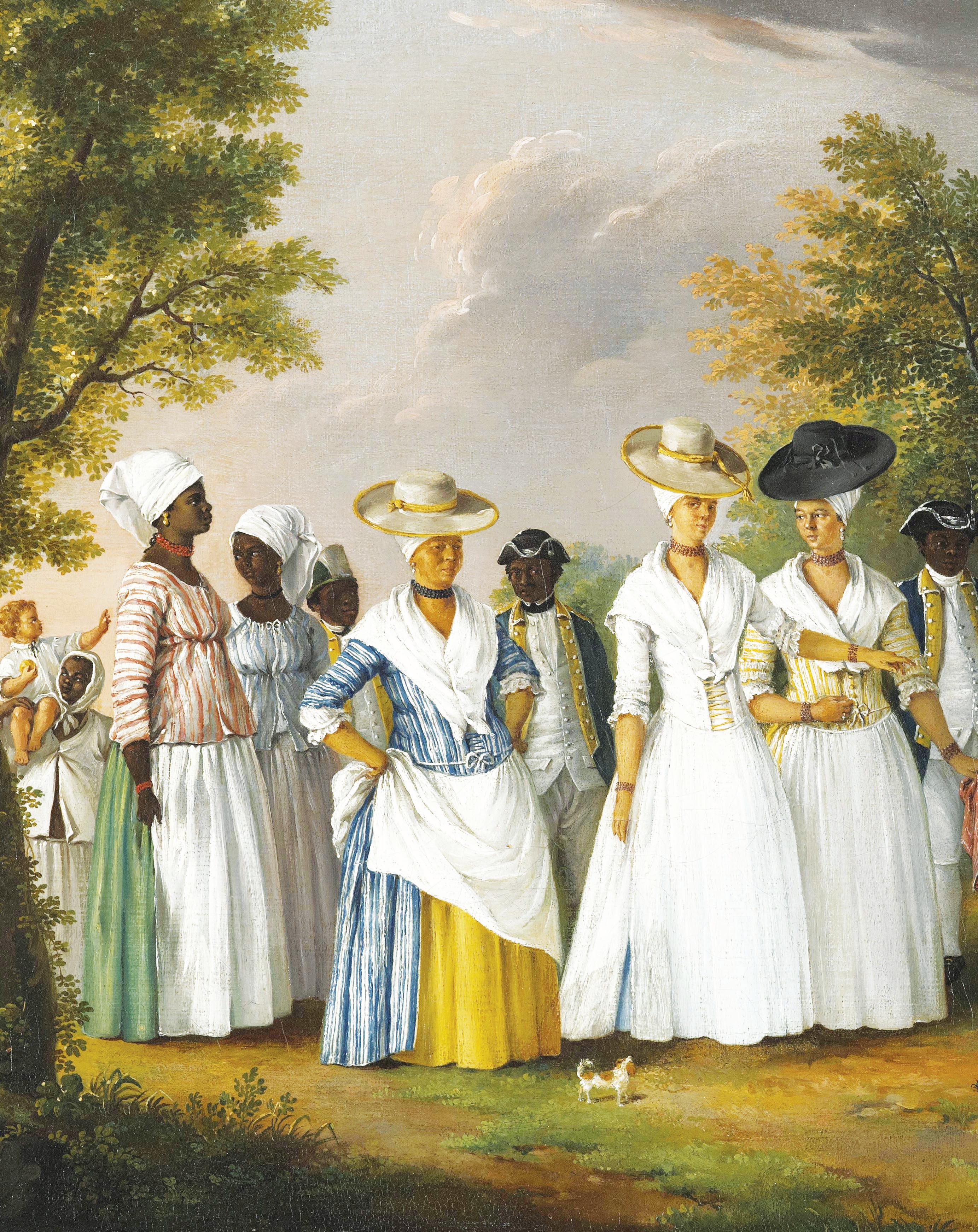
Issue No. 1

DIARY
Autumn / Fall 2023
8-25 September
Cricket Carnival, Guyana
16-23 September
Dive Fest, St Lucia
19 September
St Kitts and Nevis
Independence Day
21 September
Belize Independence Day
29 September-8
October
Trinidad and Tobago
Restaurant Week
1 October
Black History Month UK
12-15 October
Barbados Jazz Excursion & Golf Weekend
16 October
Jamaica National Heroes’ Day
19-22 October
Barbados Food & Rum Festival
25-29 October
Jamaica Food & Drink Festival
27 October
St Vincent and the Grenadines
Independence Day
27-29 October
World Creole Music Festival, Dominica
27-29 October
Tobago Carnival
1 November
Antigua and Barbuda
Independence Day
3 November
Dominica Independence Day
30 November
Barbados Independence Day
COVER IMAGE: ‘Free
Women of Color with Their Children and Servants in a Landscape’, circa 1770-1796. Oil on canvas by Agostino Brunias (circa 1730-1796) depicting plantation life on Britain’s newly-acquired island of Dominica. Painting on display in the Brooklyn Museum, New York, and reproduced on the cover of Writing Gender into the Caribbean: Selected Essays 1988 to 2020 by Patricia Mohammed (Hansib, 2020).
For all enquiries, including advertising, article submissions and book proposals, please contact:
expressed
contributors do not necessarily reflect those of the publisher or its representatives and agents. The freedom of expression applies not only to information or ideas that are favourably received, but also to those that may offend, shock or disturb. It applies to all who wish to seek, receive or impart information and ideas of all kinds. “Everyone has the right to freedom of expression.”
3 Hansib Review | Issue No. 1
EMAIL: info@hansibpublications.com • TEL/TEXT/WHATSAPP: +44 (0)7930 603 956 www.hansibpublications.com Hansib Review is
Hansib Publications Ltd, UK.
and
Article 10 of the Human Rights Act Hansib Review Welcome to Our World Issue No. 1 WELCOME TO OUR WORLD A publisher’s tale... fifty years in the making .......................................................................... 5 COVER FEATURE Powerful analysis of Anglo-Caribbean feminist thinking ....................................................... 7 Colonial perceptions of Indo-Caribbean women ................................................................... 9 FOCUS: ANTIGUA AND BARBUDA A day out in Antigua ............................................................................................................. 11 Island Girls row their way into the history books .................................................................. 17 Broadcaster captures the evolution of a nation ................................................................... 21 Earning her place among global female leaders ................................................................. 23 Oh, for the love of books! .................................................................................................... 25 CARIBBEAN NATIONS A diversity of cultures... but absolutely Jamaican ................................................................ 27 • BOOKSHELF / Caribbean Nations ................................................................................... 33 BIOGRAPHY The making of a dedicated and dependable cricketer ...................................................... 35 West Indies cricket scholar and historian honoured ......................................................... 39 The phenomenal life and legacy of Errol Barrow .............................................................. 41 A Jamaican pioneer in the fight against disease ............................................................... 45 • BOOKSHELF / Biography & Memoir ................................................................................ 49 HISTORY Shameful lack of recognition of the fallen Black soldiers .................................................... 56 Legendary actor and valiant campaigner against slavery ................................................... 59 SOCIETY Disturbing insight into Black deaths in police custody ......................................................... 60 • BOOKSHELF / Non-Fiction ............................................................................................... 61 THE WRITTEN WORD Levy’s brilliantly evocative portrait of post-war England ...................................................... 72 Colonial oppression and the rot that remains with us .......................................................... 73 African Language and the expression of nationalism ......................................................... 74 FICTION Ring the bell .......................................................................................................................... 76 SHORT STORY The Legend of Jhon Saroppa ............................................................................................... 79 • BOOKSHELF / Fiction & Poetry ....................................................................................... 81
published by
© All rights reserved. The opinions, views
beliefs
by

4 Hansib Review | Issue No. 1
A publisher’s tale... fifty years in the making
The cultural and social revolution which Britain underwent during the second half of the 20th Century provided the bedrock upon which Hansib Publications was founded: the previously unheralded settlement of people of direct African and Asian heritage, primarily emerging from the unique cultural melting pot which percolates in the English-speaking Caribbean.
Many observers detect a thread which emphasises the centrality of the role that the Caribbean has played in the social and political dynamics of our age. Hansib’s role as curator or custodian of the legends and anecdotes which populate the 500-year Caribbean odyssey has led to the publication of biographies, memoirs, poetry and prose compilations, historical tracts, novels and even an acclaimed series of coffee table books.
At its inception in 1970, Hansib Publications was the dream of Arif Ali, a Guyanese man who had no formal experience in publishing. He had settled in London and recognised among his fellow travellers and contemporaries a grandiloquence and epic sensibility which the mainstream media either deliberately ignored or simply failed to recognise at the time.
Hansib’s legacy as a campaigning publisher has few equals, as victims of bigoted bureaucracy, police brutality, nazi savagery and even internecine violence found a platform and a template for resistance in the weekly newspapers later founded under the Hansib umbrella.
The trade union activism and academic accomplishment which Hansib lionised, further emboldened those whose positions as transport and health service personnel obscured their secret identities as heroes who had weathered colonial rule, fought wars on behalf of former colonisers and achieved independence, but still voyaged to Britain and North America in search of opportunity.
The flame which was fanned by these assorted ventures abides in the content of the books that
UNCOMPROMISING: In a speech to Caribbean leaders in 1973, Hansib Publications founder, Arif Ali warned of the conditions faced by Britain’s Black communities and the threat of forced repatriation. His ‘Blood will flow’ speech echoed that of Enoch Powell’s ‘Rivers of blood’ speech in 1968.

Hansib continues to publish. Professional wordsmiths with international reputations jostle with first-time authors within a catalogue that stands as a monument to Caribbean ingenuity and West Indian obstinacy and speaks truth to power that Caribbean nations provided the first examples of modern multi-cultural societies.
Several of the first-time authors are only ‘onetime’ authors; men and women whose vigorously articulated ‘ordinariness’ is performed in an extraordinary landscape where their normality becomes the subject of awe. Others are bitten hard by the writing bug and attempt to forge full-time careers out of their passion.
For many, the remarkable sagas that they provide us with would have been lost forever, as most other publishing houses would have adjudged that the narratives they were being offered had no commercial appeal to the wider public. Hansib Publications is happy to transform these ‘dust packets’ that others refuse, into loaves of gold which find eager recipients throughout the Caribbean diaspora.
Hansib Publications continues to encourage the personal narratives that are testimonies of struggle, survival and success that cannot get beyond the portals of mainstream publishers. It is proud of its reputation in providing a platform for the many voices that remain unheard.
5 Hansib Review | Issue No. 1
WELCOME TO OUR WORLD


6 Hansib Review | Issue No. 1
Powerful analysis of AngloCaribbean feminist thinking
Patricia Mohammed
Nana rolled herself another cigarette. I liked the smell of sulphur when she outed her match and was fascinated by the way she cupped the cigarette in both hands and sucked erratically before she got a good enough light”. This vignette from Shani Mootoo’s Cereus Blooms at Night rescues a memory of old Indian women I had known in the village in which I was raised in south Trinidad. These women were most unlike the svelte and sophisticated white young lasses in the Virginia Slims advertisements “you’ve come a long way baby” that we knew from American magazines. For one thing they smoked the harsh tobacco of Trinidad’s Broadway cigarettes. Not unlike their rural menfolk, they generally bought these two or five at a time from a jar on the shop counter. Then they would wrap the cigarettes in worn cotton handkerchiefs, and tuck them into the bosoms of their shapeless cotton frocks, to be retrieved for a smoke when they sat among their women friends. Interestingly, cigarette smoking was never a public activity for women in the Caribbean, and to this day is not, despite the passage of years and ideas.
Nonetheless, like the Virginia Slims models, one wondered what long ways had these women also come? Their eyes were full of mischief when they talked amongst themselves. Rheumy eyes, the twinkle kept wonderfully alive by shared memories. Their laughter and conversation would grow secretive when we came too close, switching to the Hindi which they knew we could not fully understand. I was too young to listen except in passing, as the young always are, too busy discovering life to recognize it unfolding in the everyday and commonplace events. Subconsciously, I expect, one constantly noticed things. I sided with the livelier souls especially when they were set against other women who were so bent over double by life that you could barely see their eyes. If you did catch sight of the latter’s eyes, they were piercing, unflinching, almost accusing in their
Any notions of gender equality which we, the generation who came of age in the wake of the sixties’ women’s liberation movement entertained in our heads, were planted there by the examples of our foremothers and fathers.
gaze, as if willing you to choose between two alternatives. Shani Mootoo recognizes these differences among the women. She called the irreverent one “Cigarette Smoking Nana”, the other is dubbed “Bible Quoting Nana”, of whom says her protagonist, “I couldn’t bring myself to get too close to, nor she to me since I was not turning out to be boyly enough for her church going satisfaction.”
The Bible Quoting Nanas too had their stories to tell. Perhaps there were only two alternatives for women in the fifties. After all the choices were either marriage or spinsterhood, motherhood or barrenness, acceptance or ostracism. Were you going to be a good serious woman, well respected in the community, or one of the fallen, who laughed too loudly, drank and smoked like men, dressed gaudily, wore too much eye make-up and Moscow red lipstick? Good women stayed by their men, loyal and faithful, in martyred polygamous unions as brides of Christ or with allegiances to the Prophet Mohammed or aspiring to emulate the holy dyad of Sita and Lord Rama. Others who did not, had strayed from the paths of righteousness. Many of these women, bible quoting and cigarette smoking both, would not have heard of feminism or gender as we talk about it freely today. Yet they would have made the most of their lives, flaunting or following rules when they had to. Let us not dismiss them as cardboard characters on a stage in which they played preordained roles. Any notions of gender equality which we, the generation who came of age in the wake of the
7 Hansib Review | Issue No. 1
COVER FEATURE


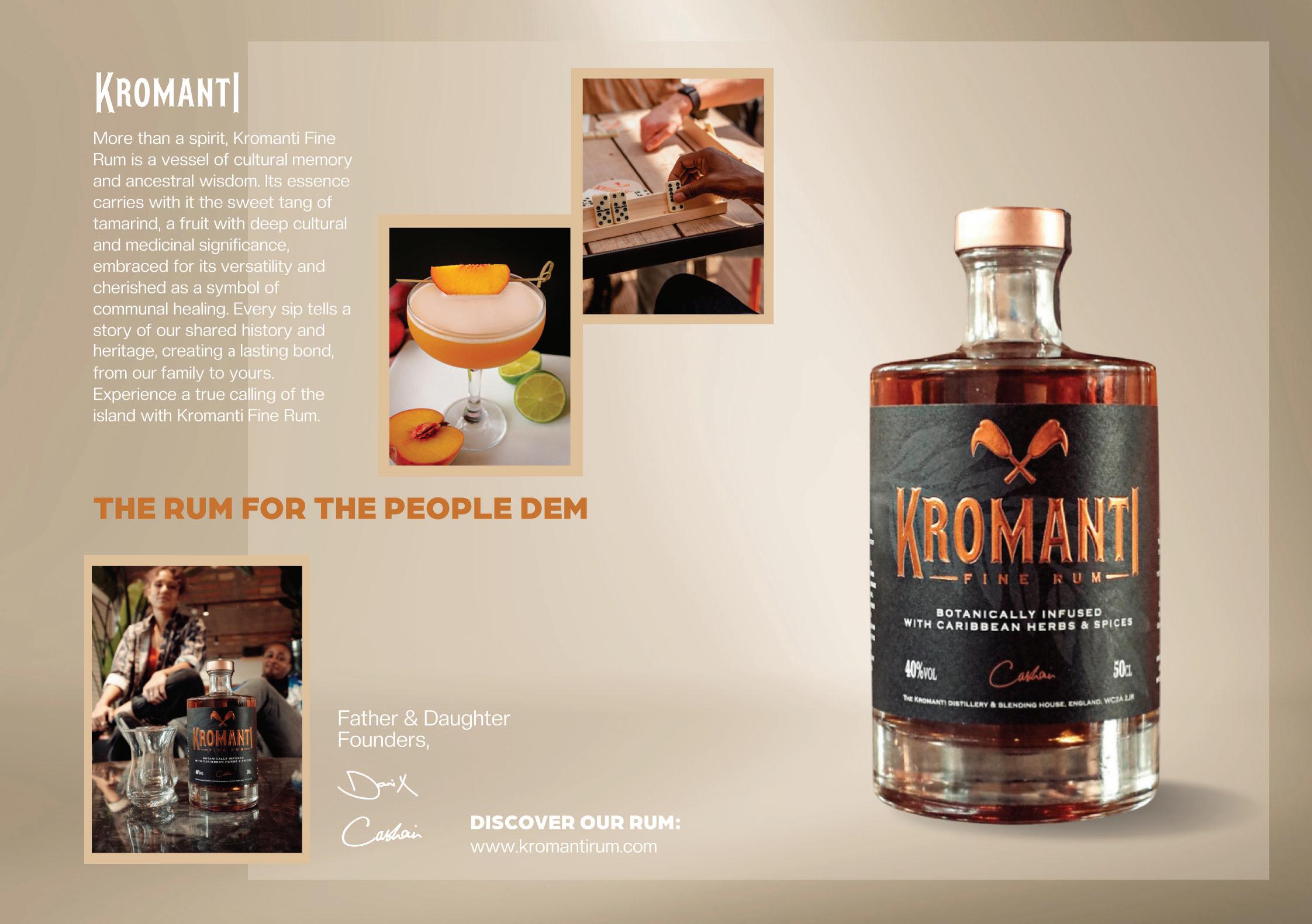
8 Hansib Review | Issue No. 1
sixties’ women’s liberation movement entertained in our heads, were planted there by the examples of our foremothers and fathers. To speculate on what has influenced third wave feminism I think one should return to the mother lode, that of trying to figure out what is conveyed to each generation by the previous ones as they come of age. We should not also, in considering third wave feminism, think that it is only women who influence the shape of a feminist and gender consciousness. Such ideas are transmitted or influenced equally by the actions, or reactions, of men and masculinity.
Caribbean fiction, including women’s writing which grew in stature in the last few decades of the twentieth century, is valuable in representing
these coded messages between generations of women. There are fewer examples of the ways in which manhood and ideas of masculinity are being transmitted between men and men, although this is by no means an absent theme in the fiction of the region. Femininity had first to discover and map itself. The relationships between womenyoung and old, book educated and life taught, rural and urban, mother and child, grandmothers and granddaughters, between women of different ethnic groups and classes - are never untroubled. Much of the fiction of the region which has dealt with coming of age, has pointed to the uneasy processes by which gender, race and class identities are ascribed, acquired and maintained.
Colonial perceptions of Indo-Caribbean women
Indian femininity occupies an invidious position in Caribbean society. For one thing, while the Indo-Caribbean population is in the majority in both Trinidad and Guyana, and is well represented in Suriname, this ethnic group is still viewed as having a ‘minority’ status in the region being less visible in Jamaica, St Lucia, Martinique, Guadeloupe, St Vincent and Barbados. Suffused in overtones of religion and family-bound cultural practices and expectations, Indo-Caribbean femininity is, as with other femininities, burdened with a repertoire of signifiers and associations.
The Indo-Caribbean script begins during the entire period of indenture when it was difficult to get a suitable percentage of female migrants to match the number of male migrants. Those who were recruited and those who left their villages, those who abandoned violent or much older husbands, or those who fled from poverty and were adventurous enough to seek their fortunes in another land, were immediately earmarked as licentious. Because of the new-found liberties they had in the Caribbean due to their scarcity as a sex – as far more males than females were recruited – Indo-Caribbean women were soon being labelled as having a loose morality and many were presumed to have been drawn from the class of prostitutes in India. At the same time, drawing from their history of British rule for centuries, the colonial authorities dismissed Indian femininity as childlike or needing the protection of their men, who, interestingly, were also viewed as effeminate and needing to be pummelled into shape by the a rigid colonial patriarchy.
Despite the established record of stridency and agency among Indian women in negotiating their
Those [Indian women] who were recruited and those who left their villages, those who abandoned violent or much older husbands, or those who fled from poverty ... were immediately earmarked as licentious
gender, sexual and wage-earning status during indenture, and in the post-indenture period, the dominant characteristics that were attributed to Indo-Caribbean femininity by the end of indenture was that of submission, passivity, non-confrontational attitudes, collusive natures and under the thumb of Indo-Trinidadian patriarchy.
By the last decades of the twentieth century, when the Caribbean experienced its second wave feminism, this was perhaps still the lingering perception of all Indian women. They were considered largely outside of the mainstream struggle for female equality and equity, assumed to have been submerged in family or ethnic loyalties to a male patriarchy, and indifferent to the exertions for community, welfare and national liberation that had enveloped the region since the 1950s.
READ MORE...
Writing Gender into the Caribbean: Selected Essays, 1988 to 2020 by
 Patricia Mohammed Paperback,
Patricia Mohammed Paperback,
£30.00 / US $42.00
9 Hansib Review | Issue No. 1
COVER FEATURE

A day out in Antigua
Sally Davis
Antigua and Barbuda has a little something for everyone: whether environmentally conscious, adventurous, favouring lazy days on the beach or just ‘liming’, as the locals say. For those cruising through, with only a day or less to spend, it can still be an unforgettable experience.

Essential stops in the capital include the Antigua and Barbuda Museum, which used to be the Court House during the 18th century. The museum displays many historical items as well as a selection of pre-Columbian artefacts.
A short walk up the road takes strollers to the beautiful St John’s Anglican Cathedral that dominates the city’s skyline with its imposing twin towers.
At the bottom of ‘town’ are the shopping centres of Heritage Quay and Redcliffe Quay, both of which are ideal for souvenir hunters. Redcliffe Quay has several small stores that have the characteristics and infrastructure of an older St John’s, whereas Heritage Quay has more modern buildings and a vendors’ market from where trinkets, t-shirts and other Antiguan and Barbudan keepsakes may be purchased. The area is also dotted with a number of small restaurants and bars offering a wide selection of mouthwatering dishes, both local and international.
Beyond St John’s is Devil’s Bridge, a rocky, coastal location on the eastern-most side of the island facing the Atlantic Ocean. Here, the sea crashes against the ‘bridge’ and shoots huge sprays up through the blowhole.
A popular detour along the route is Betty’s Hope, a former sugarcane plantation that was established in the mid-17th century. A programme of restoration was implemented in the early 1990s and it has since served as an open-air museum and visitor centre.
Also of historical note are Shirley Heights Lookout and Nelson’s Dockyard, both located at the southern tip of Antigua. Shirley Heights is a former military complex and signal station (or ‘lookout’) which has a number of historic ruins and renovated buildings serving both as a museum and popular dining and entertainment venue. Its elevated position also offers spectacular views of English Harbour.
Nelson’s Dockyard, in English Harbour itself and named after Britain’s Admiral Horatio Nelson, is a cultural heritage site and marina. It is home to historic naval buildings that date back to the 18th century, and the Dockyard Museum.
Galleon Beach, also in English Harbour, is popular with locals and tourists alike.
For a more natural experience, one might take a lazy drive through the beautiful rainforest of Fig
11 Hansib Review | Issue No. 1 FOCUS ON ANTIGUA AND BARBUDA
Cruise ships docked in St John’s Harbour
The view across English Harbour is one of the most spectacular in Antigua
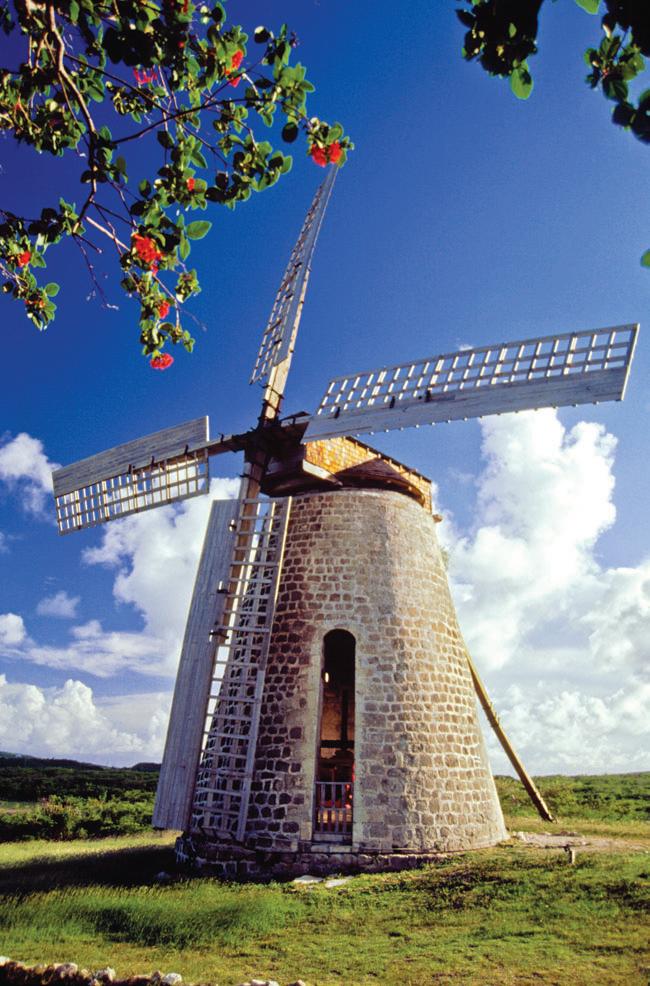

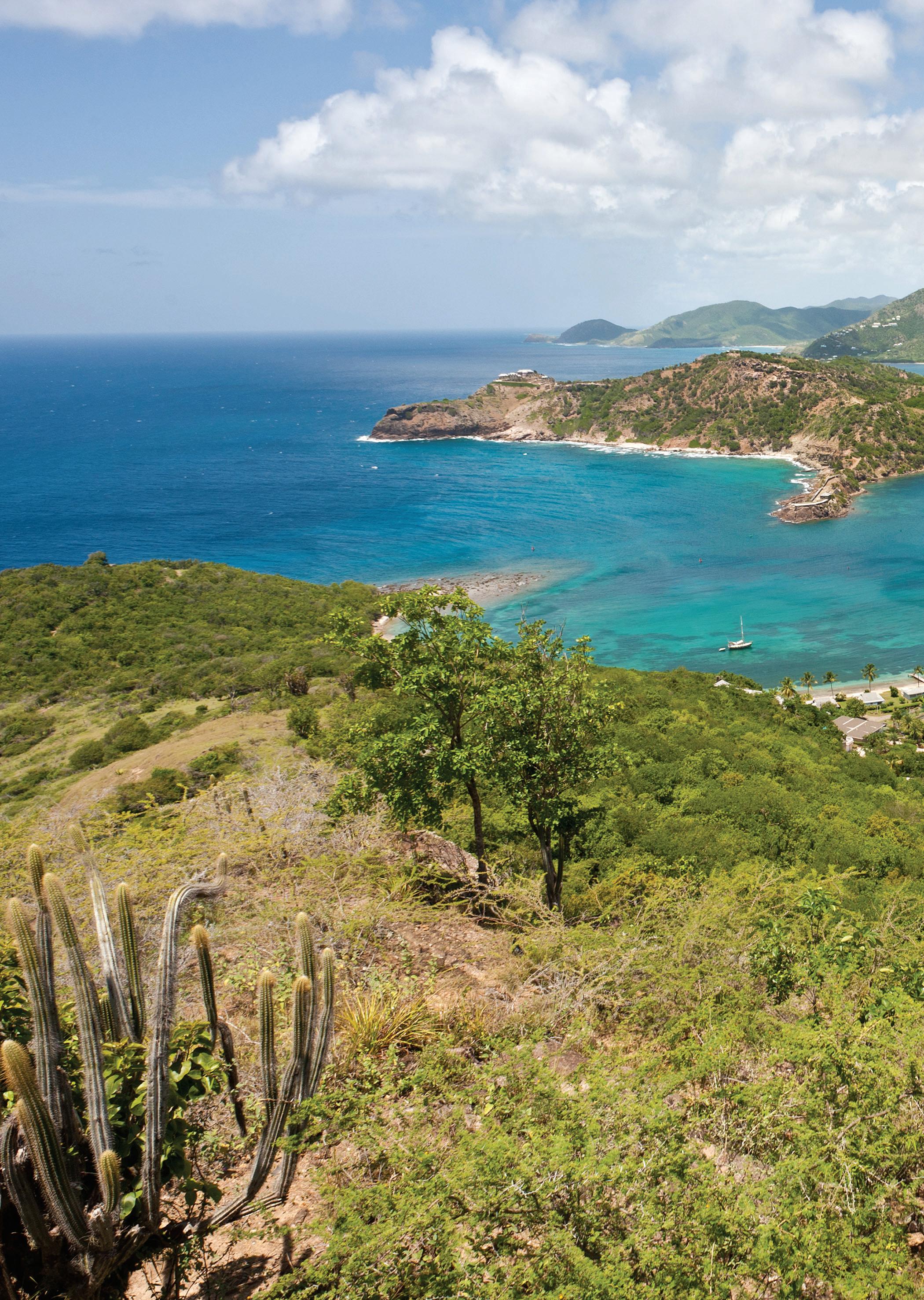 Nelson’s Dockyard Museum
Sugar mill at Betty’s Hope
Nelson’s Dockyard Museum
Sugar mill at Betty’s Hope
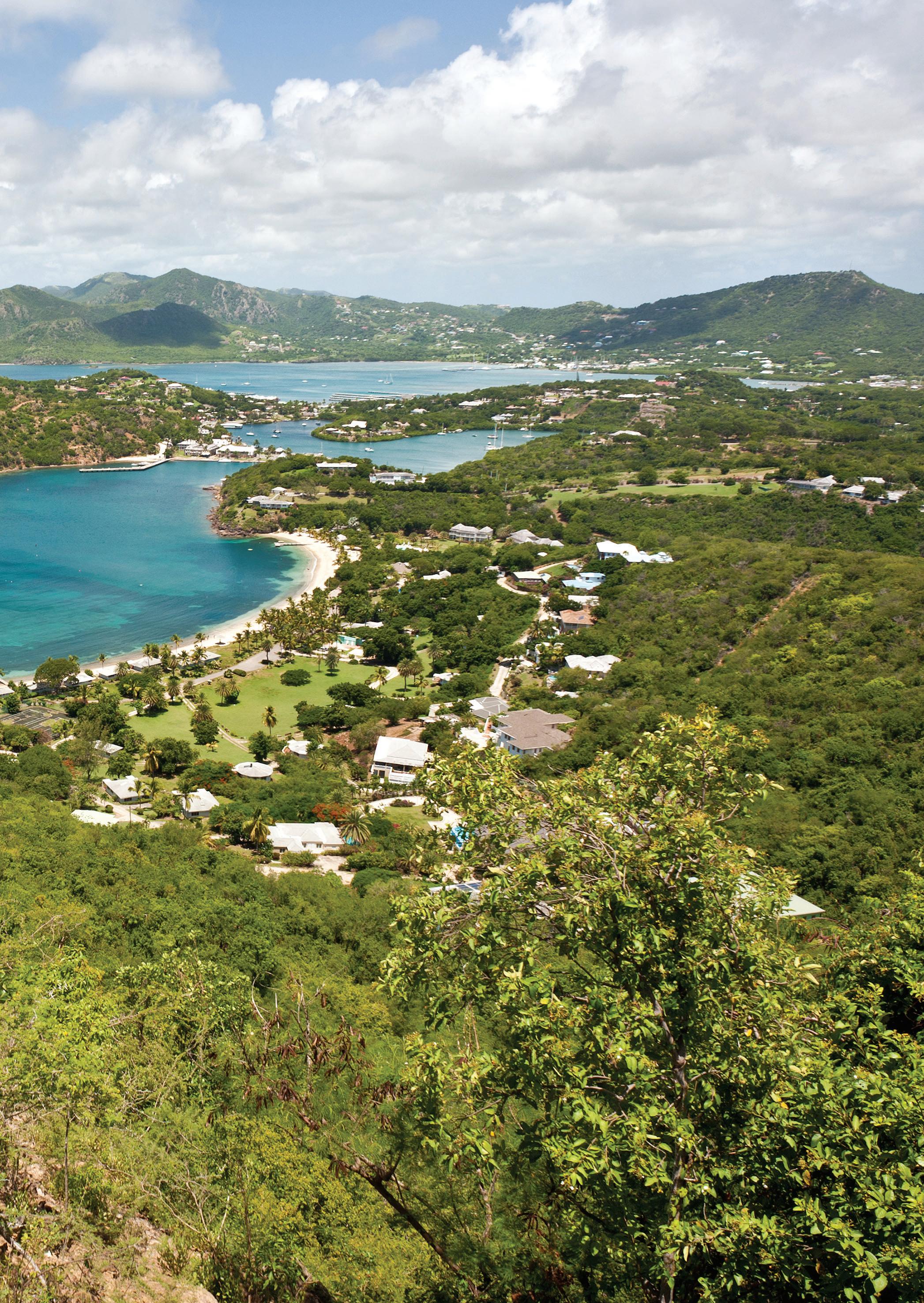
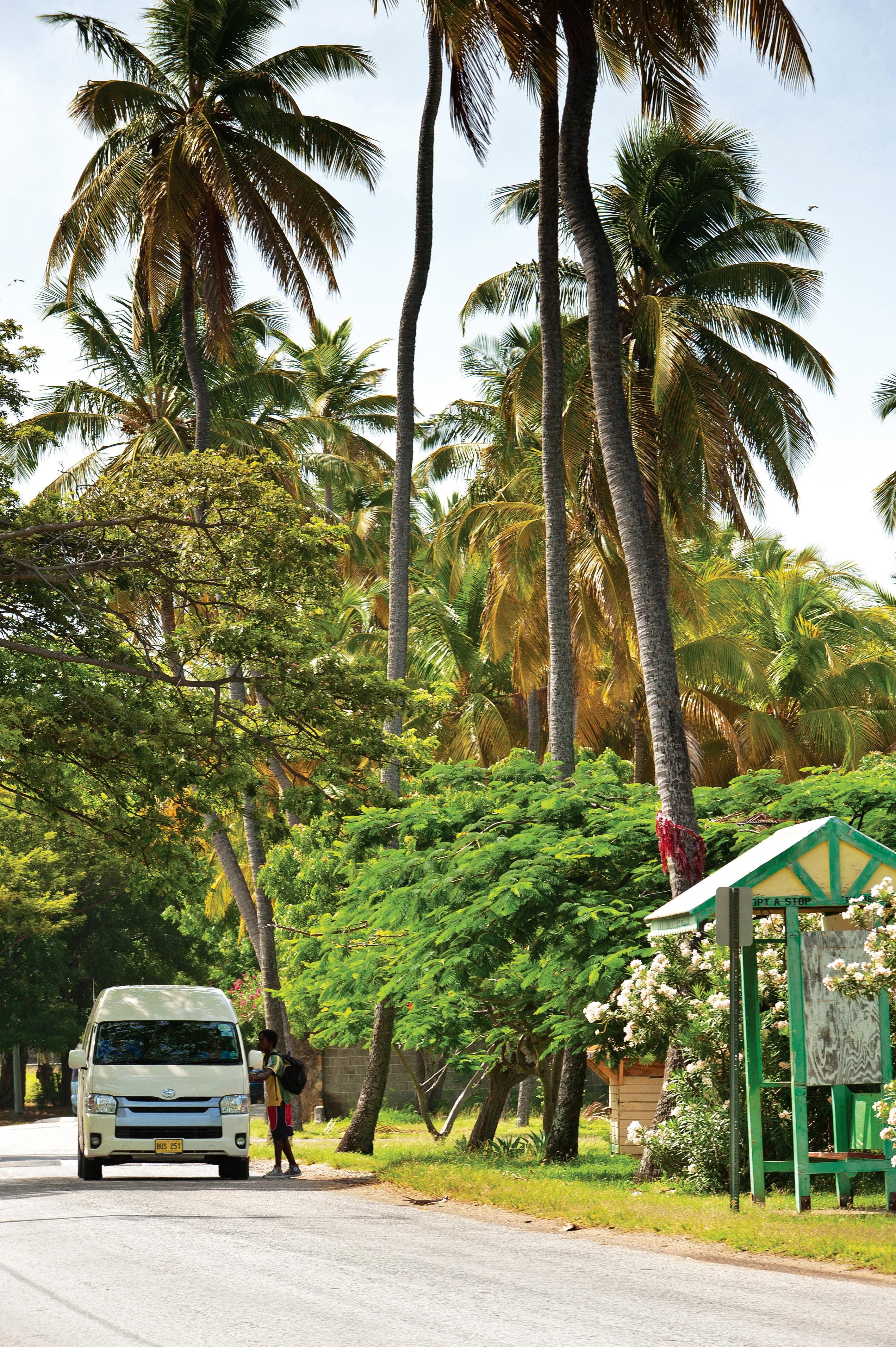
For those cruising through, with only a day or less to spend, it can still be an unforgettable experience.
Tree Drive. And another good beach stop on this south-west-heading route is Callaloo Bay, which is one of the few beaches still lined with coconut trees.
Villages along this route include Old Road and Urlings, and into Johnson’s Point, where Mrs Turner, of Turner’s Beach Bar, turns her hand to local delights such as conch fritters, grilled lobster, barbeque ribs and curry chicken. The bar is on the beach and is a temptation to all who come to swim, sunbathe or just relax and soak-up the quintessentially Caribbean location. It is also the perfect spot from which to see the setting sun, drawing to a close yet another day in paradise.
READ MORE...
Antigua and Barbuda: A Little Bit of Paradise, 7th Edition


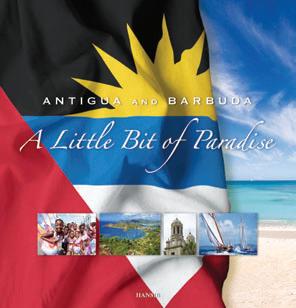

Hardback, £30.00 / US $50.00
Softcover, £20.00 / US $36.00
15 Hansib Review | Issue No. 1 FOCUS ON ANTIGUA AND BARBUDA
Top: Ffryes Beach
Middle: St John’s Cathedral
Bottom: Redcliffe Quay
SIBONEY BEACH CLUB

Welcome to Siboney Beach Club, an intimate 4-Star beachfront boutique hotel, set in lush tropical gardens on Antigua’s Dickenson Bay, voted one of the best beaches in the Caribbean by USA Today .



Siboney Beach Club provides a relaxing modern setting while still allowing you to experience local life and culture to the fullest. Our friendly and knowledgeable staff will make sure that you have everything you need while here, including a full range of amenities.

We invite you to book your stay with us, where the service, experience and freedom of choice are without parallel.

A BOUTIQUE BEACHFRONT EXPERIENCE


Telephone: +1 268 462 0806
Email: reservations@siboneybeachantigua.com
Dickenson Bay, St. John’s, Antigua
www.siboneybeachantigua.com
16 Hansib Review | Issue No. 1
ROOMS & SUITES • RESTAURANTS • SPA & WELLNESS
Island Girls row their way into the history books
After more than 41 days at sea, and across 2800 nautical miles of the Pacific Ocean, Team Antigua Island Girls entered the history books. Not only were they the first all-Black female team to complete this gruelling challenge, but they were also the first Caribbean team to do so.

The team, consisting of Christal Clashing, Samara Emmanuel and Kevinia Francis, reached the finish line in Kauai, Hawaii, on 23 June 2023, as part of the World’s Toughest Row race. The trio departed from Monterey Bay in California in their boat, Dadli Gyal , and made their way across the Pacific in exactly 41 days, seven hours and five minutes.
Their triumphant arrival in Hawaii was a testament to their mental and physical strength,
willpower and determination. But the final 50 miles of their journey proved to be an epic and unexpected battle against the elements, which threatened to scupper their hopes of crossing the finish line. Faced with strong currents, multiple squalls, headwinds and rain, they were being prevented from reaching the finish in Hanalei Bay.
The race organisers suggested towing the boat into the bay, but this inglorious end to the team’s endeavours was never going to be an option. In these closing stages, the girls summoned all their strength and powered through for 14 hours straight and completed the race under their own terms. At 11:47am, the Island Girls crossed the finish line and guaranteed their place in the history books of Antigua and Barbuda.
17 Hansib Review | Issue No. 1
FOCUS ON ANTIGUA AND BARBUDA
Team Antigua Island Girls celebrate their momentous achievement.
Photo courtesy World’s Toughest Row

18 Hansib Review | Issue No. 1

19 Hansib Review | Issue No. 1
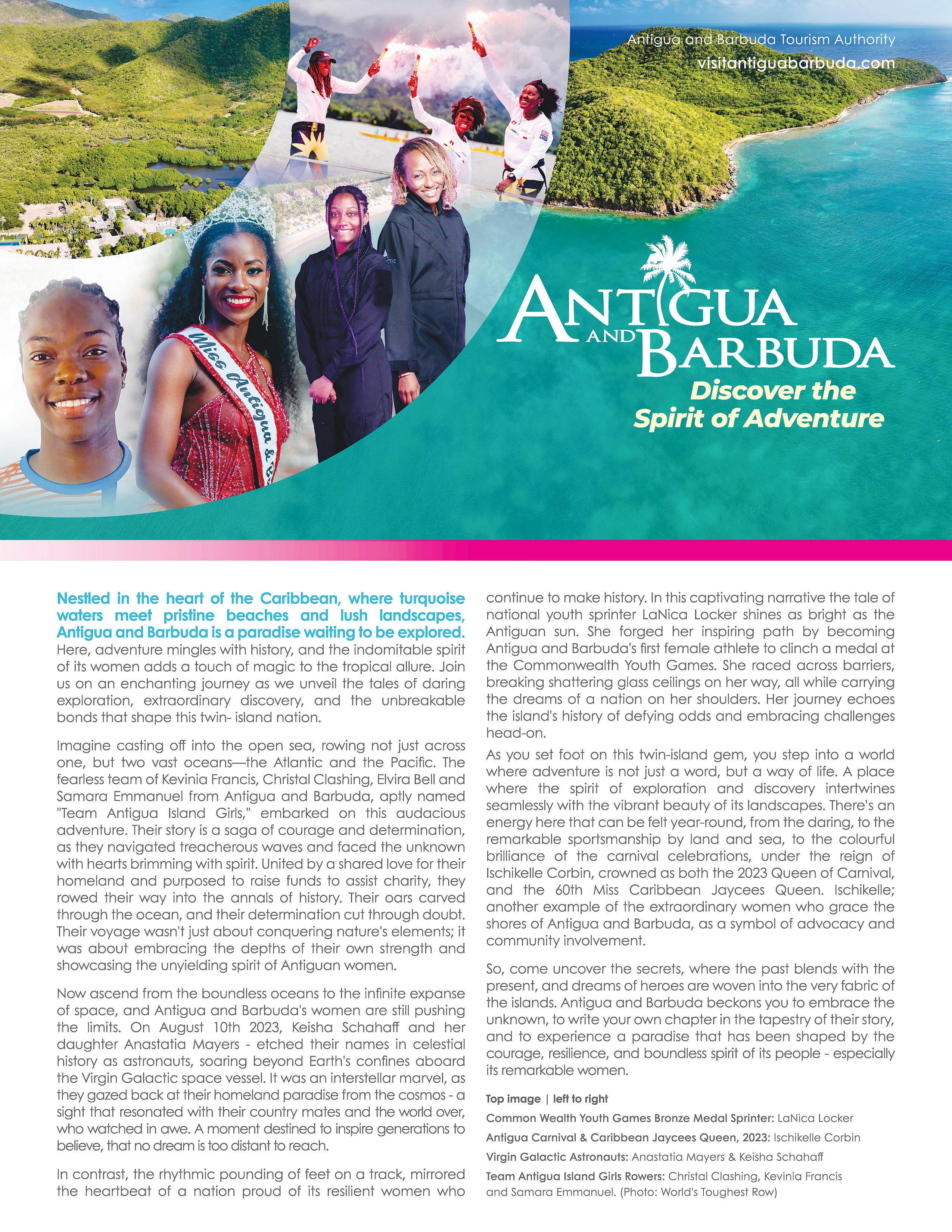
20 Hansib Review | Issue No. 1
Broadcaster captures the evolution of a nation
Antigua and Barbuda captures the world’s imagination with its alluring beauty and rich tapestry of culture. Turquoise waters caress idyllic white and pink-sand beaches in the quintessential island paradise. Two islands with one unique experience continue to enchant visitors, in a place where natural beauty is a constant in a land of extraordinary change and vitality. And one media house has towered above all else in chronicling the evolution of an irrepressible and irresistible nation.
The Antigua and Barbuda Broadcasting Services has had a front-row seat to the intensity of this change. ABS excites, edifies and entertains in a quest to extend the boundaries of excellence in broadcasting. Its cameras have witnessed the defining, epochal moments in the nation throughout decades of technological and societal change.
As the world navigates the fourth industrial revolution and beyond, ABS is poised to continue revolutionary advances in media to stay at the cutting edge of this information and communications technology flux. Its growing audiences are transfixed and stand in testament to the reach of an increasingly global broadcaster.
Along this decades-long journey, it has witnessed and recorded significant milestones and enabled the nation to create everlasting memories. Among these were the euphoria and pride of a
nation following the amazing celebrations in honour of five pioneering women.
ABS cameras captured the out-of-this-world reactions as Antiguan mother-daughter duo of Keisha Schahaff and Anastatia Mayers journeyed to the edge of space aboard Virgin Galactic’s spacecraft ‘Unity’. They experienced weightlessness and the awe-inspiring view at our blue planet. They dared a nation to believe, to dream and to reach for the stars!
Pictures also conveyed a thousand words as Antiguans and Barbudans welcomed home intrepid rowers Kevinia Francis, Christal Clashing and Samara Emmanuel. They created history when they rowed across the Pacific Ocean, becoming not only the first all-Black female team to complete the challenge, but also the first Caribbean team to do so.

Their gruelling challenge reprised an earlier feat in 2018 when they had rowed across the Atlantic, together with Elvira Bell. Both of these achievements were odysseys of immense courage, dedication and sacrifice to raise funds for altruistic causes. They have inspired women and girls the world over to conquer their doubts and create a legacy for the ages.

21 Hansib Review | Issue No. 1
FOCUS ON ANTIGUA AND BARBUDA
Keisha Schahaff and Anastatia Mayers pictured with ABS presenter, Steve Freeland
ABS presenters Garfield Burford and Patrice Martin with Virgin Galactic boss, Sir Richard Branson

22 Hansib Review | Issue No. 1
Earning her place among global female leaders
Navigating life in a single-parent household was the perfect ecosystem for Paula C.M. Edwards-Lee to build momentum and develop remarkable personal and professional leadership skills.
The multi-skilled graduate of the Antigua Girls High School and the University of the West Indies has worked in leadership roles in Education, Energy, General Elections Management, Media, Strategic Planning and Telecoms. Notwithstanding the unique characteristics of each sector, Lee responds admirably with determination, courage and a willingness to excel against all odds.
Without question, experiences in our formative years shape our perspectives on a myriad of different interests. Choosing to engage in continuous studies, forging strong interpersonal relationships and participating in the world of work are all rich results of a community that understands the value of leading by example.
Among her cluster of professional projects was the introduction of the first “live” audience TV talk show in Antigua and Barbuda in 2013. Being the first can be intimidating. On the other hand, being first can be exhilarating. Successfully producing and hosting ‘The Paula Show’ further catapulted Lee into the national and regional spotlight. Not one to shy away from thought-provoking conversations, via print and electronic media, she mostly expresses opinions on human rights, prison rehabilitation, the value of learning and development, politics and religion.
While undertaking her role as Executive Director in the Lifelong Learning Unit of the UWI FIC, Lee is keenly watching the rise of global female leaders and hopes to earn a place among the distinguished cadre of influencers. Advancing technology, globalisation and the media have reshaped the globe into a community that is bursting at its seams with opportunities, diverse talents and unimagined potential. Anticipating trends, building capabilities and creating easier
access to higher education are sensible responses to help people adapt to relentless changes in our economies.
Timing is everything! Lee is willing to step into new leadership roles and create an enormous shift in Antigua and Barbuda. She also considers that her strong faith and religious belief will guide her.

23 Hansib Review | Issue No. 1
Paula C.M. Edwards-Lee says being the first can be intimidating
FOCUS ON ANTIGUA AND BARBUDA

24 Hansib Review | Issue No. 1
Oh, for the love of books!
Barbara Arrindell
Established in 2001 as a small general bookstore, The Best of Books is known to many residents as the home for most things connected to the literary arts in Antigua and Barbuda. Located on St Mary’s Street in St John’s, the bookstore has weathered the evolution of the book industry including the wide scale use of e-readers for both pleasure-reading and for use in schools.
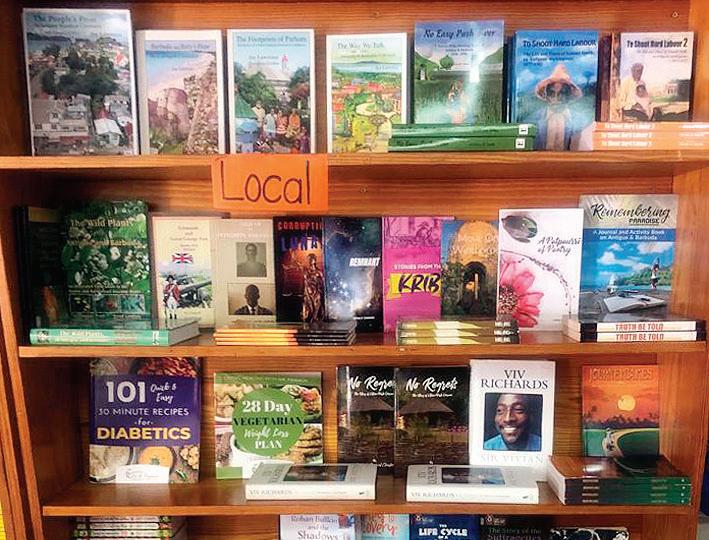
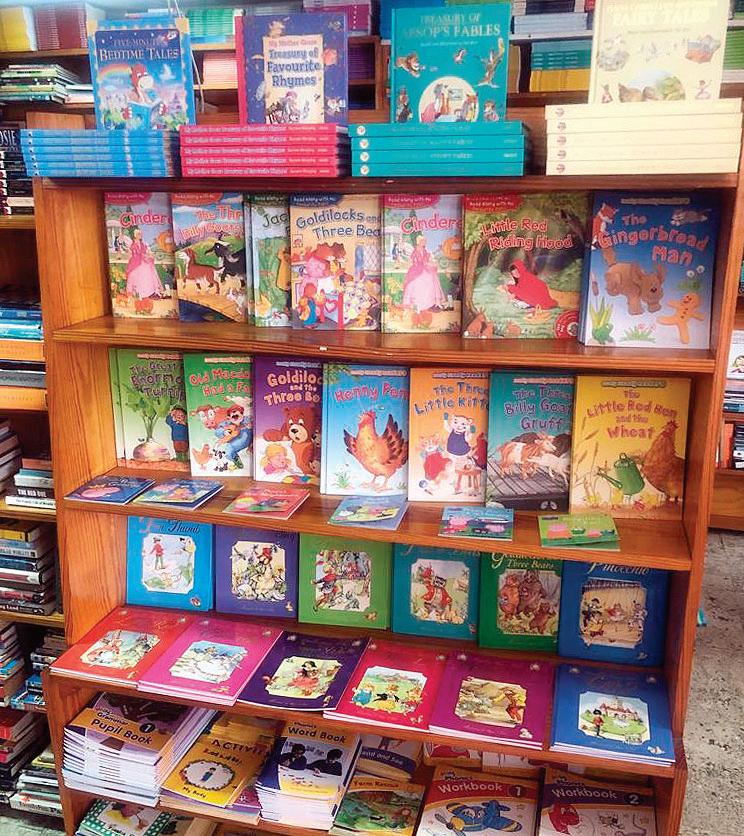

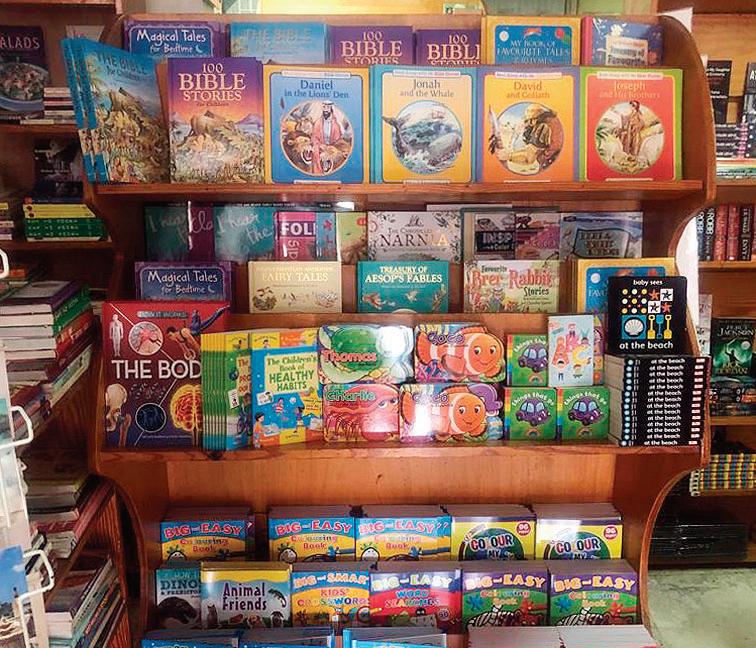
Over the years, the establishment has served as the missing community centre that the nation’s capital still lacks. A generation of children have attended the free reading club on weekends, parents have enjoyed the convenience of finding a corner in which to read to their young ones, while teens gathered in the upstairs area to do homework, play chess, and debate and discuss topics of all sorts. Adults intending to quickly purchase a book have often been lured into conversations with each other or with the youths
gathered there. It is not uncommon to find a random teenager expressing his/her point of view with a stranger, to later recognise the person as a noted academic, a sporting hero, a minister of government or religion or even, from time to time, a regional prime minister; among whom a few have become frequent customers whenever visiting Antigua and Barbuda over the years.
Today, The Best of Books proudly boasts of what the management confidently says is the largest on sale collection of books written by Antiguans and Barbudans assembled anywhere. Although they recognise that there are probably many other Antiguan and Barbudan books beyond its shores, The Best of Books is pleased to have been involved in some small way with the nurturing of not only a general love of reading but also an understanding of the importance of writing and of documenting the nation’s own stories for consumption here and throughout the world.
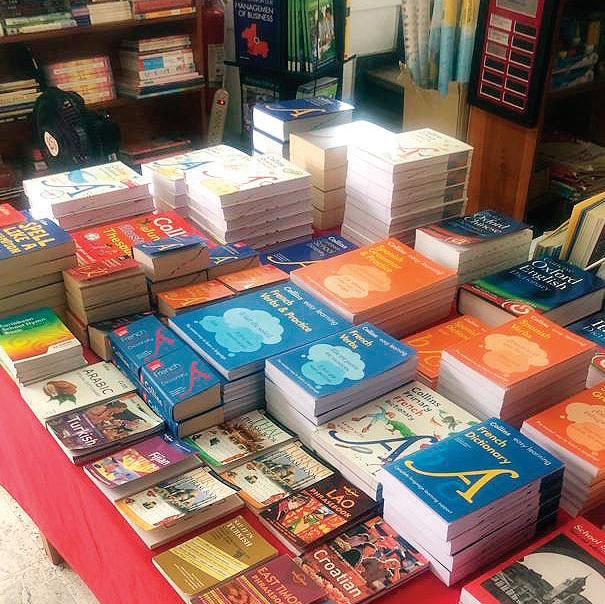
25 Hansib Review | Issue No. 1 FOCUS ON ANTIGUA AND BARBUDA

A diversity of cultures... but absolutely Jamaican

Jamaica has long been described as the microcosm of Planet Earth. Never mind its efforts in the not so distant past to remind the world that it is far more than sun, sand and sea. “It is more than a beach – it is a country”, wailed the advertisements addressing potential visitors. It indeed remains a country with a rich history, admittedly of severance and suffering but, above all, with the will and a demonstrated capacity for survival and beyond.
This, of course, is the result of the stream of ‘rainbow’ arrivals from Caucasian Europe, Black sub-Saharan Africa (largely West Africa), of Brown and Mongoloid mortals from India’s Decan plateau and China’s Cantonese Valley respectively. Still later came arrivals from the eastern Mediterranean. They all came over four centuries to perform a variety of functions which admittedly harboured dilemmas of difference. They ranged from royal administrators, adventurers and plantation owners to exploited labour (over two centuries the property of those who imported them) and indentured contract labourers when slave abolition resulted in an intense labour shortage. They were followed by entrepreneurial, eastern Mediterranean migrants who no doubt heard that Jamaica, already a brand name among many in the wider world, could offer a better and more tolerable life than they had at home.
Remarkably, the diversity of souls endowed with their varied cultures (involving language and art, diet and philosophy) challenged the polyglot hordes of transplanted peoples to shape appropriate designs for social living. It allowed them to mix, share, explore each other, ‘crossfertilise’ and create a native-born, native-bred Jamaican sense and sensibility which is now the common heritage of all, whether he or she is of Caucasian stock, of African, East Indian, Chinese and Lebanese ancestry or is of the several ethnic mixtures that all together bring texture and crossfertilised dynamism to Jamaica’s population.
In many ways, all this matches the very diverse and kaleidoscopic splendour of the natural landscape, not only with respect to the flora but also the variety of soil structures, mountain ranges, undulating hillocks, cockscomb hills, valleys, streams, springs, rivers and the surrounding – sometimes raging, sometimes calm and still – Caribbean Sea. The beauty is no absolute guarantee for a problem-free existence. Natural disasters have frequent enough visitations, and social disorders, as are evident everywhere else on earth, threaten to negate the oft-repeated invocation, “Jamaica, No Problem”.
Temperaments are, indeed, as varied. Stiff upper-lip Anglo-Saxon attitudes vie with ebullient, high spirited and, just as easily, cool-tempered supposedly African traits. Alongside these, inscrutable Asian (Indian and Chinese) calm coexists with intertextual relish to produce a multilayered, multifaceted, contrary and contradictory aggregation of souls. Electoral inflammability sometimes places Jamaica’s enduringly promising parliamentary democratic governance on edge. The seeming unpredictability is nonetheless fascinating.
All great civilisations, it is said, are the result of cross-fertilisation. And contemporary Jamaica represents the cross-fertilisation of Europe, Africa,


27 Hansib Review | Issue No. 1 CARIBBEAN NATIONS
Rex Nettleford
Three icons of Jamaican history and culture: Paul Bogle, Marcus Garvey and Bob Marley
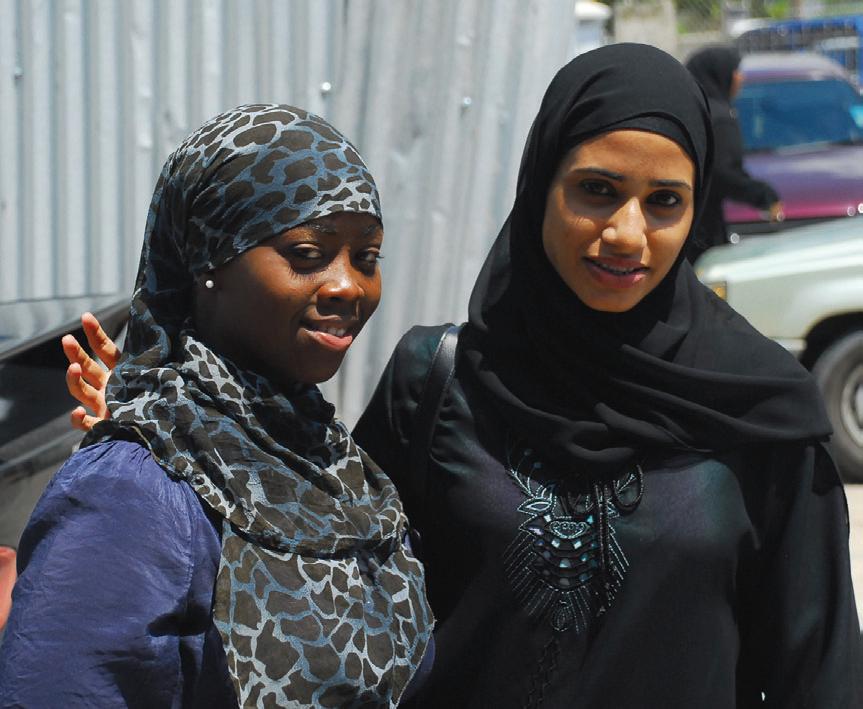
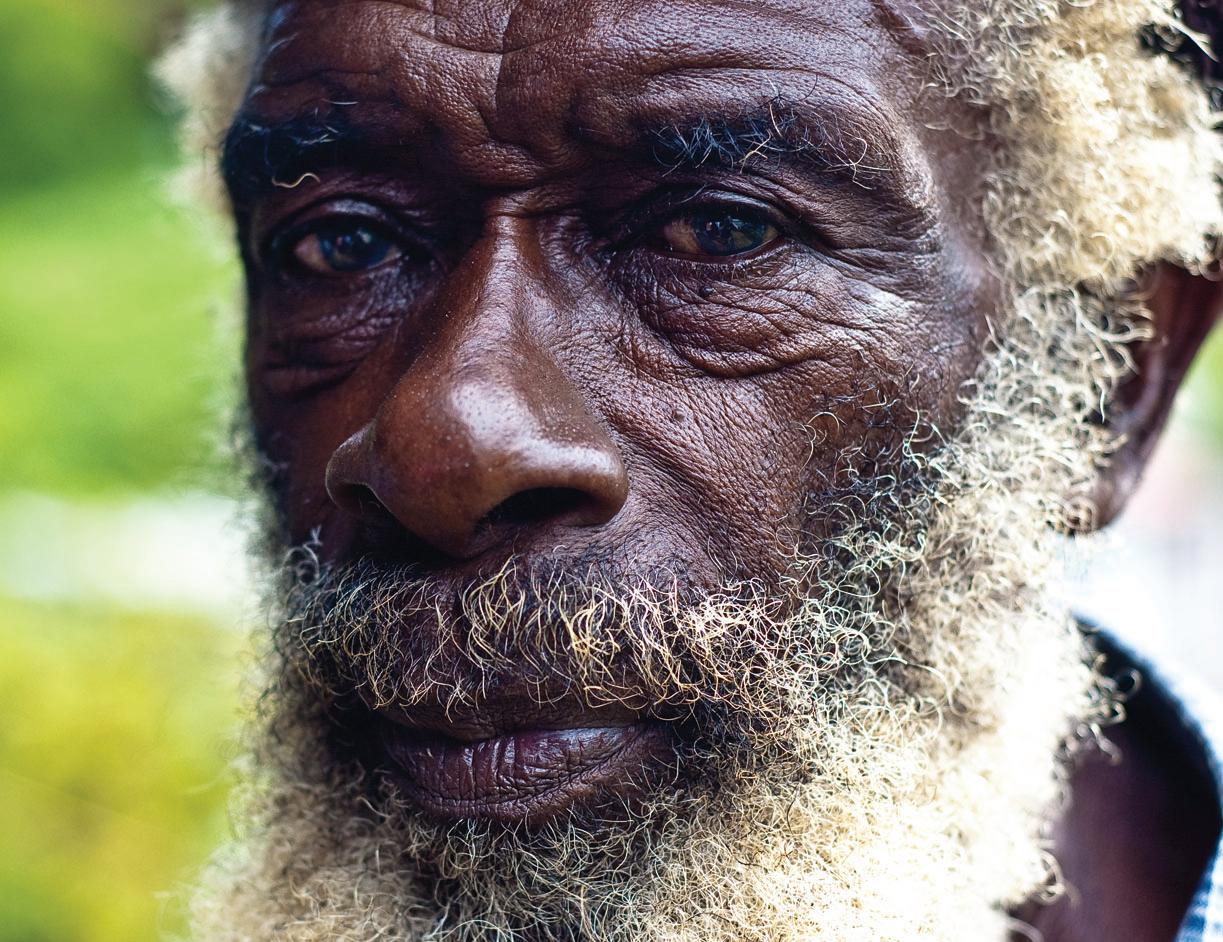


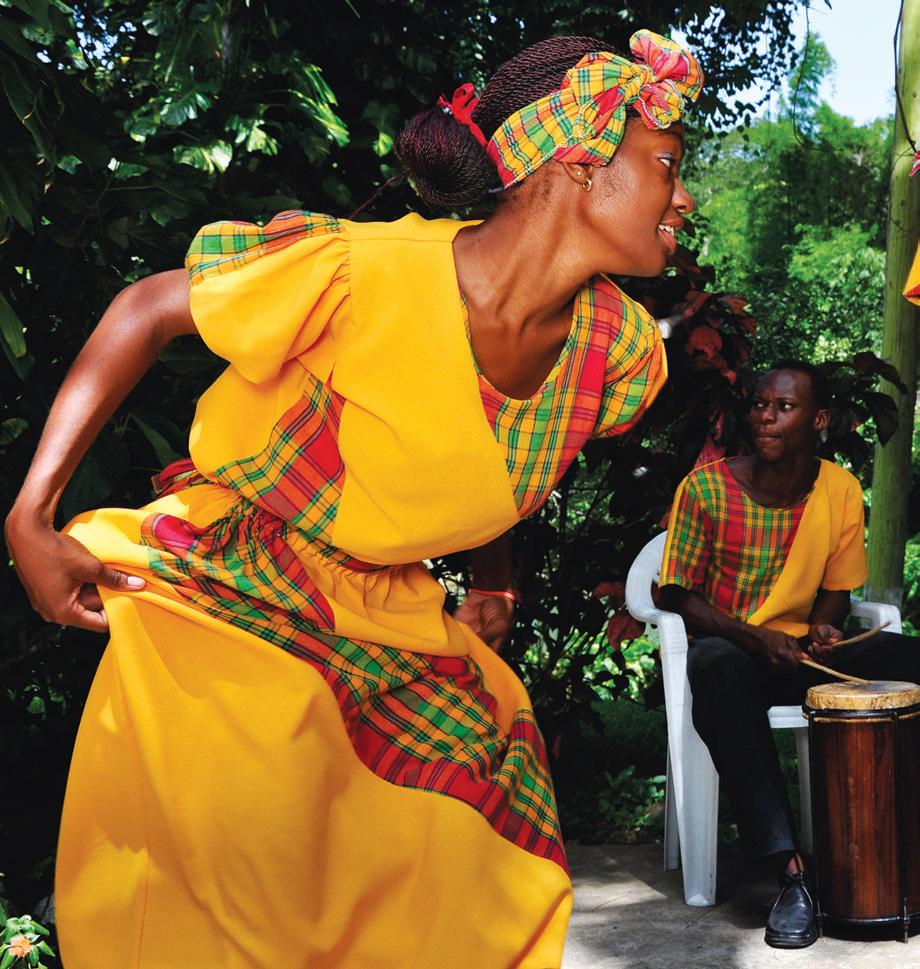
28 Hansib Review | Issue No. 1 CARIBBEAN NATIONS
Asia and the eastern Mediterranean along with the original Native American settlers (Tainos) on foreign soil. They are therefore responsible for Jamaica’s cultural diversity, richness and energy. These traits are evident in the music, dance, visual and culinary art and the sense of style of the ordinary people who offer the world and themselves a rainbow crew not only of artists, sports persons (in track and field, cricket and soccer), but also of Westminster-style political leaders, well-educated academics and highly trained professionals, all individually and collectively descendants of their many different ancestors.
If Europe with its plenitude of cultural traits ranging from Anglo-Saxon governance through Celtic (Welsh and Scots) vitality and Sephardic Jewish ancestral musings are evident, Africa surviving the Middle Passage gives its musical and performance arts, its religious animism, its innate distaste for racial oppression and its sense of community, while India strengthens the encounters with its Hindu and Muslim customs (culinary, festive and philosophical), while China sends its concentration on discipline and hard work matched by a not dissimilar Levantine contribution seen among the “Syrians”.
Such are the regulative principles which underlie the inescapable changes that come with the now “globalised” world and the onslaught of the electronic communications technology revolution exported by North America through its newscasts, talk-shows and entertainment
programmes, albeit reconfigured, re-interpreted and duly adapted by the mass of the population to their own liking.
The encounters through mutual engagement, compliance and resistance, collaboration and confrontation, irreverent wit and screw-face solemnity have produced distinctive Jamaican elements of social and cultural significance evident in the language that most Jamaicans speak most of the time along with Standard English, religion (complete with saints and sinners, the sacred and the profane, good and evil, God and the Devil), kinship patterns celebrating the offspring of parents with and without the benefit of confetti, artistic manifestations (traditional, contemporary and classic) and a delicately balanced sense and sensibility.
So ‘Jamaica Talk’, greatly influenced by the Standard English lexicon and African (Akan) grammar and structure, has come to be rated as one of the major Creole tongues of the Western Hemisphere. Zion Revivalism, pukkumina (Pocomania) and convince cult are variants of the ‘syncretised’ religious expressions resulting from the mix of Christian liturgy and African ritual preserved as such in Kumina, the kikongo rite, followed more recently by Rastafari, which innovatively draws on the Old Testament and on the Judaic theological trajectory of Scattering, Exile and Return on the road to redemption in the quest for social justice, freedom and human dignity, which Christian Orthodoxy, inherited from a colonising Europe, failed to deliver. Kinship
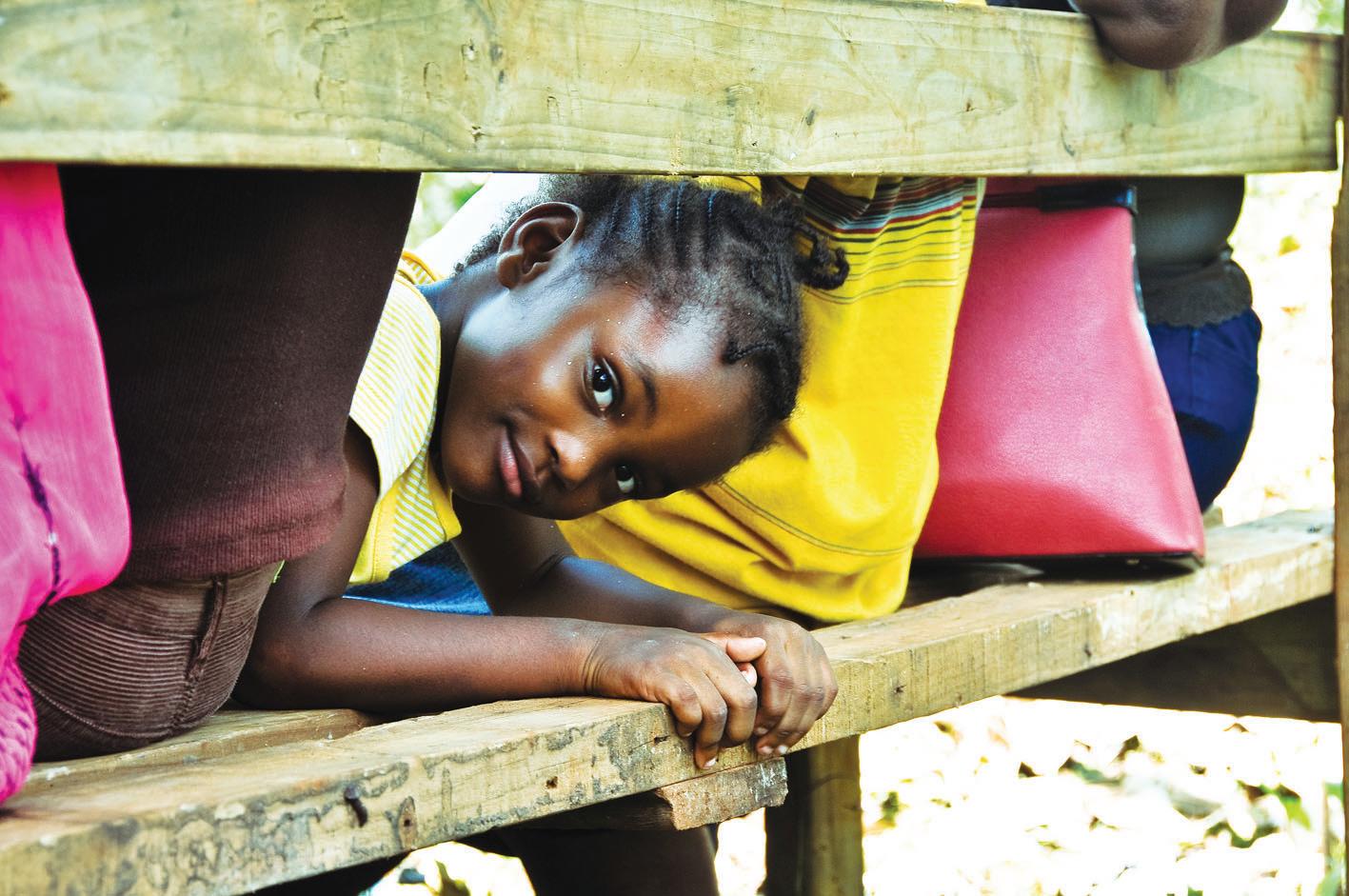
29 Hansib Review | Issue No. 1
CARIBBEAN NATIONS

30 Hansib Review | Issue No. 1
involving the mutual caring among cousins many times removed or non-consanguineous adoptions without the benefit of formal legal sanction, assures the ideal of family cohesion, the brotherhood of Man and the application of caring and compassion especially among Jamaican women, the culture bearers, whatever their class, race or creed.
The arts draw on the ancestral sources of Africa, Europe and Asia to produce music, dancetheatre, drama and choral theatre of world class rather than as exotica, as some would mistakenly see it. Jamaican popular music, from mento through ska and rocksteady to reggae and dancehall, has produced the likes of Bob Marley, Jimmy Cliff, Peter Tosh and Toots Hibbert, with Beenie Man and Buju Banton, among others, of more recent vintage. They can all boast an extensive global reach and are all the beneficiaries of the confluence of many traditions and cultures which spawned them and brought a uniqueness to Jamaica.
The various arrivals have done another thing which again fuels the artistic outpourings of the society. If the phenomenon gave to the southern Caribbean the pre-Lenten Carnival (now a postLenten Easter feature in Jamaica’s calendar), it gave to Jamaica, from as far back as the early 19th century, the jonkonnu (or masquerade), where European revels interact with African masquerade at Christmas time to produce a distinctively Jamaican festival. It has variations which continue to find expression in dance and
musical theatre and in the cultural programmes of post-Independence Jamaica.

Meanwhile, the (East) Indians have made a significant contribution in the festival art of Hosay – the Muslim celebration entered into with gusto by both Hindu and Christian Jamaicans with African-Jamaicans doing the drumming while the Indians do the dancing.
Such is the result of the cross-fertilisation in the limited space shared by the different arrivals over time. Everyone is, after all, part of everyone else regardless of race, colour, class, creed or political persuasion. This, however, is not to deny the persistence of differences among Jamaicans. But greater than those differences is the proven capacity to deal creatively and positively with the dilemma such differences engender, thus making utterly true and incontrovertible the saying that all Jamaicans are part-African, part-European, partAsian, part-Native American, while being absolutely Jamaican. Rex
Nettleford (1933-2010)
READ MORE...
Jamaica: Absolutely Softcover, £18.00 / US $36.00 Hardback, £25.00 / US $50.00
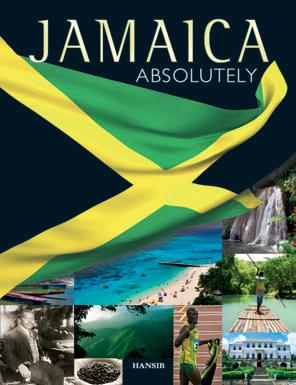
31 Hansib Review | Issue No. 1
CARIBBEAN NATIONS

32 Hansib Review | Issue No. 1
ANTIGUA AND BARBUDA: A Little Bit of Paradise

7th Edition
Blessed with warm tropical sunshine, soothing trade winds, crystal-clear waters and lush vegetation – and with a beach for every day of the year – Antigua and Barbuda really is a little bit of paradise. And this vision of paradise is made up of palm-fringed coves in Antigua and miles of deserted beaches in Barbuda. This lavishly illustrated book is a spectacular insight into a vibrant Caribbean nation that captures the many aspects of life in this twin-island state.
Away from the beach, history and artistry come together in the annual Carnival, where pageantry and ‘pan’ celebrate Antiguan and Barbudan culture, set to the sounds of calypso music. Antigua and Barbuda also plays host to a number of sailing events, including Antigua Sailing Week, which is the Caribbean’s oldest regatta. Includes more than 200 photographic images. Hardback, £30 / US $50.00 • Softcover, £20 / US $36.00
GUYANA AT 50: Reflection, Celebration and Inspiration
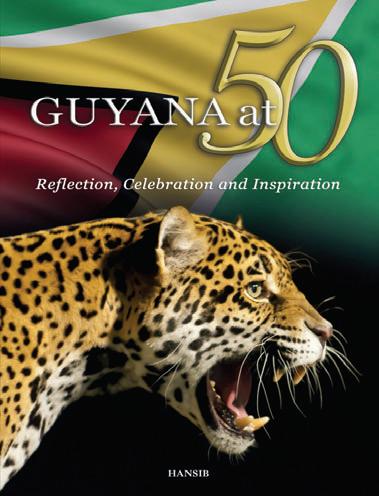
What is it that makes Guyana such a special place and why has it remained a secret to the rest of the world? The answer may lie in its unique magnificence. Could this be paradise, this land of many waters? The evidence would suggest that it is. But Guyana also has a somewhat curious history, not least, because of the challenges it has faced over the past six hundred years. The First People were overcome by invading Europeans. Then came the forced and coerced labour of the enslaved Africans, the indentured Chinese, Portuguese and Indians, followed by the challenges faced by successive political movements and ideologies.
Many miss the true qualities for which this land of many peoples has become renowned: Its hospitality, its freshness and its unspoilt natural beauty. They miss the sensual energy that pervades its atmosphere and fail to notice that, in Guyana, the skies seem bluer, the stars seem brighter and the air is blessed with an ambrosial succulence that stirs the senses and lulls the brain into forgetting day-to-day concerns. Includes more than 250 photographic images.
Hardback, £30.00 / US $55.00
DOMINICA: Nature Island of the Caribbean
2nd Edition
An insight into one of the Caribbean’s best-kept secrets. Dominica is a virtually unspoilt island whose volcanic peaks rise imposingly from the sea to create a magnificent landscape of forested mountains and river valleys. It is the most mountainous of the Lesser Antilles and has the distinction of being home to the tallest peak in the Eastern Caribbean.

Dominica’s reputation as the ‘Nature Island of the Caribbean’ is well earned because of its unspoilt landscape, natural beauty and abundance of wild flora and fauna. The island is renowned for its spectacular waterfalls and many rivers. Consistently rated as a leading dive destination, Dominica’s marine life is considered to be among the best in the world. It is also the foremost whale-watching destination in the Caribbean. Includes more than 200 photographic images.
Hardback, £25.00 / US $50.00
JAMAICA: ABSOLUTELY
Jamaican culture has touched every corner of the globe. Whether it’s the pulsating rhythms of Bob Marley’s reggae music, dancehall patois or the pounding footsteps of Usain Bolt, the sounds of Jamaica reverberate throughout the world. Long described as a microcosm of Planet Earth, Jamaica has been influenced by many cultures and traditions. It is a country with a rich history –admittedly of severance and suffering – but, above all, with a will and capacity for survival and achievement.
When Columbus arrived, and beheld the palm-fringed beaches and lush, forested mountains, he described it as the fairest isle he had ever seen. But Jamaica is more than just beach and scenery. It is a rich diversity of cultures and traditions. It is rich in sounds and flavours. It is a feast for the senses. Jamaica is Rasta and reggae; rum and rhythm; jerk and jazz; coffee and calypso. Lavishly illustrated throughout, Jamaica: Absolutely looks beyond the beach and gives an insight into the cultural, historical and social aspects of Jamaica. Includes more than 200 photographic images.
Softcover, £18.00 / US $36.00 • Hardback, £25.00 / US $50.00
“Place always first the national interest and the national cause. The strength of the nation depends on the strength of its citizens.” Dr Eric Williams, Trinidad and Tobago’s first Prime Minister, quoted in 1962
TRINIDAD AND TOBAGO: Terrific and Tranquil

3rd Edition
The twin-island Republic of Trinidad and Tobago is one of the most cosmopolitan countries in the world. Since the arrival of Amerindian peoples more than ten thousand years ago, this Caribbean nation has become a melting pot of different races, traditions, customs and religions. European colonisers followed by peoples from Africa, India, China and the Middle East began arriving from the late 1400s. These disparate groups all played a part in influencing Trinidad and Tobago’s diverse and unique culture.
Birthplace of calypso music and the steel pan, and home to the world famous Trinidad Carnival, the nation boasts one of the most exclusive tourism destinations in the world (Tobago) and an emerging eco-tourism sector. Published to commemorate the nation’s 50th anniversary of independence in 2012. Includes more than 200 photographic images.
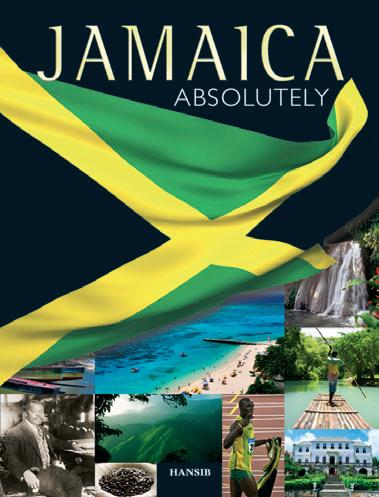
Hardback, £25.00 / US $50.00 • Softcover, £18.00 / US $36.00
ANGUILLA: Tranquillity Wrapped in Blue

With its pristine, white-sand beaches, washed by crystal-clear waters, this British Overseas Territory embodies tranquillity itself. The atmosphere is one of peace and serenity that allows visitors to relax, unwind and immerse themselves in the ultimate Caribbean vacation. The most northerly of the Leeward Islands in the Eastern Caribbean, Anguilla is one of the world’s most exclusive tourism destinations. And its year-round nautical traditions are an added attraction. Anguilla is also home to a thriving community of artists producing a diverse range of artforms including woodcrafts, sculpture, pottery and paintings. But, above all, its people are renowned for their friendliness and hospitality. This definitive guide provides an insight into the nation’s history, local customs and traditions, its people and places, and its successes and achievements. Includes more than 350 photographic images.
Hardback, £20.00 / US $36.00
33 Hansib Review | Issue No. 1 BOOKSHELF • Caribbean Nations
Books & eBooks published by Hansib Publications are available worldwide from many booksellers including: Amazon, Wordery , Kobo , World of Books , Alibris, Waterstones, Bookshop.org, Foyles and Blackwell’s
For all enquiries, please email priestisaacinstitute@gmail.com. Hon. Priest Isaac is the leading researcher of Greencastle Hill and is certified in archeoastronomy, ancient astronomy and RA’stronomy and is a Priest within Rastafari of the Ethiopia Africa Black International Congress. Details of courses in Ancient Astronomy, Ancient Archeoastronomy and Astro-Theology, and hikes and studies, are available at www.priestisaacinstitute.com
For all enquiries, please email priestisaacinstitute@gmail.com. Hon. Priest Isaac is the leading researcher of Greencastle Hill and is certified in archeoastronomy, ancient astronomy and RA’stronomy and is a Priest within Rastafari of the Ethiopia Africa Black International Congress. Details of courses in Ancient Astronomy, Ancient Archeoastronomy and Astro-Theology, and hikes and studies, are available at www.priestisaacinstitute.com


34 Hansib Review | Issue No. 1
The making of a dedicated and dependable cricketer
Joseph Stanislaus Solomon, the Guyana and West Indies cricketer, who played in 14 of the 15 Test matches captained by Sir Frank Worrell between December 1960 and August 1963, was born in 1930. Like Rohan Kanhai and Basil Butcher, who were also pivotal batsmen in Worrell’s richly endowed teams of the early 1960s, Solomon hails from Plantation Port Mourant, in the county of Berbice, in what was then British Guiana (Guyana since May 1966). He and Kanhai are descended from indentured labourers taken to that colony from India, between 1838 and 1917, to work on the sugar plantations after the emancipation of enslaved Africans in 1838. Butcher was of African descent, like the first man from Port Mourant (in fact, the county of Berbice) to play Test cricket, John Trim. The elegant Guyana and West Indies left-handed batsman in the 1970s and 1980s, Alvin Kallicharran, too, was born on this sugar plantation, as was leg-spinner
Ivan Madray, who appeared in two Test matches for the West Indies, against the touring Pakistanis in early 1958. The belligerent West Indies opening batsman, Roy Fredericks was from Blairmont, another Berbice plantation. Cricketers from the sugar plantations in Berbice had been thriving for some time, but they gained recognition belatedly – only after Clyde Walcott assumed his role as cricket organiser for the Sugar Producers’ Association in October 1954.
Joe Solomon’s batsmanship was not in the mode of Frank Worrell’s widely acclaimed strokemakers of 1960-63; it was not redolent of the panache, the scintillating flair, of Garry Sobers, Rohan Kanhai, Basil Butcher, Conrad Hunte, Seymour Nurse or, indeed, Sir Frank himself, however dimmed his star in the twilight of his career. But Joe’s self-effacing reliability, his unobtrusive consistency in the lower order, at number 6 or number 7, in tandem with the tail-

35 Hansib Review | Issue No. 1
BIOGRAPHY
Clem Seecharan
The cricketers from Plantation Port Mourant with Clyde Walcott at Bourda cricket ground in Georgetown, October 1956: (L-R) Ivan Madray, Basil Butcher, Clyde Walcott, ‘Sugar Boy’ Baijnauth (from neighbouring Plantation Albion), Rohan Kanhai and Joe Solomon



36 Hansib Review | Issue No. 1 WATERPROOFING & REPAIRS “Build and live on a tropical island” “Build and live on a tropical island” VEC General Contractors/Realtors Cedar Valley, P.O. Box 1247 St. John’s, Antigua Tel: (268) 725 0251 & (268) 725 0757 Email: cccsmoti@gmail.com Email: howardcornelius76@gmail.com Authorised representative for UMACO Inc. construction finishing materials. Industrial polyurea epoxies, roof sealant, paint sealant. Also 1023 universal cement. • Walls • Swimming Pools • Leaking Cisterns
enders, made an impression on Worrell, the first Black captain of the West Indies team. It earned Joe a niche in Worrell’s strategy for the remaking of the West Indies team into a cohesive professional outfit, shorn of its arguably mercurial temper whence sprang an infuriating inconsistency. The latter was often deemed ‘calypso cricket’, an epithet most West Indians (including Sir Clive Lloyd) considered unflattering, if not insulting. In 27 Test matches, between 12 December 1958 and 11 May 1965, Solomon scored 1,326 runs at an average of 34.00, with only one century but he had fifteen scores of 35 or more (including nine half-centuries) in 46 innings. In 104 first-class matches (156 innings), between 11 October 1956 and 2 March 1969, he made 12 centuries and 27 half-centuries, with a highest score of 201 not out, at an average of 41.54. In his last first-class match, against Barbados at Bourda in Georgetown (Joe’s Mecca), he made 169.
But it is not Joe’s scores per se that merit primacy in assessing his career as a cricketer, but the context of his performance – the hard graft after his more versatile team-mates had succumbed to the vagaries of the uncovered pitches or underperformed by virtue of their instinctual exuberance. His perceived resilience engendered the confidence Frank Worrell reposed in Solomon for the duration of his captaincy (15 Tests).
In an age before the dominance of limited-over cricket, Joe was the quintessential first-class cricketer, although he did not make his debut for British Guiana until October 1956 when he was 26. His technique in defence was impeccable, and he had the ability to work the ball deftly into spaces, in addition to his instinct for driving the fractionally overpitched delivery through the covers with a minimum of risk or guiding the shorter one deftly through the point region or to third man or deflecting anything veering to leg delicately to fineleg. However, unlike most of his West Indies teammates, Joe never did play league cricket in England or English county cricket. Therefore, he missed out on the benefit of English experience, with its vagaries of extravagant movement and unpredictable bounce on the uncovered pitches of those times.
Solomon never became a professional; he worked in Guyana with the Booker Company initially, then as a coach and cricket organiser with the Sugar Producers’ Association after touring Australia in 1960-61, when immortality was thrust upon him by virtue of the first Tied Test in the history of cricket, having thrown the wickets down twice in nine balls – magical side-on run outs.
Joe Solomon’s Test career has its niche in an ascendant phase of West Indies cricket, against the backdrop of a progressive but turbulent British Guiana, towards the end of Empire
In 23 first-class matches for Guyana, Solomon scored 1,905 runs at an average of 62. His application, solidity in defence, deft placement –in addition to his perceived imperturbability – had evoked Captain Worrell’s approbation and his assigning a specific role for him in the lower middle order. Yet Joe’s contribution to Guyana and West Indies cricket – and its context – remains virtually unexamined and certainly unheralded.
In November 1987, I had a long, richly educative, interview with Solomon’s team-mate from Port Mourant, the Guyana and West Indies leg spinner, Ivan Madray. He sought to convey the essence of Joe’s cricket: ‘A most dependable batsman! I recall what Frankie Worrell said many years ago: “When Joe goes out to bat, I can afford to have a nap”. This was very true. With Joe batting, you could go in and rest for a few hours because of his dedication, his great powers of concentration. Always safe! And Worrell, a perceptive man, recognised Joe’s role at no. 6. He was the rock of West Indies batting during Worrell’s time [his captaincy: 1960-63]. As soon as Worrell went [retired], Joe’s career was over’. Nearly true!
It is noteworthy that of Joe Solomon’s 27 Test matches, the West Indies won fifteen, drew five, lost only six (22 per cent) and tied one – the latter being the historic one at the Gabba in Brisbane in which Joe was a principal actor. Joe’s first nine Tests (1958-60) were captained by Gerry Alexander, his next fourteen by Worrell (1960-63) and his last four (against Australia in 1965) by Garry Sobers.
Joe’s Test career has its niche in an ascendant phase of West Indies cricket, against the backdrop of a progressive but turbulent British Guiana, towards the end of Empire.
READ MORE...
Joe Solomon and the Spirit of Port Mourant: The Making of the Guyana and West Indies Cricketer and its Context, 1930s-1960s by Clem Seecharan with Ian McDonald
Paperback, £18.99 / US $30.00 eBook, £4.99 / US $5.99

37 Hansib Review | Issue No. 1
BIOGRAPHY
READERSHIP: Hansib Review is distributed in the UK, the Caribbean , Canada , the USA and beyond to an everincreasing network, including via social media. Along with the general reader, the recipients include educators in schools, colleges and universities, librarians, business owners, professionals and politicians. The magazine is free to view and download.

ABOUT THE PUBLISHER: For more than five decades, Hansib has been synonymous with the publication of magazines, newspapers and, since the 1980s, books that cater for its target audience.

38 Hansib Review | Issue No. 1 ADVERTISE To advertise in the next issue, please contact: Email: info@hansibpublications.com Tel./Text/WhatsApp: +44 (0)7930 603 956 Hansib Review is the quarterly, digital magazine of Hansib Publications. It serves as both a showcase for the books it publishes as well as to feature the many subjects and
from the global
individuals
English-speaking Caribbean Heritage community.
Hansib Review
West Indies cricket scholar and historian honoured
Distinguished historian of West Indies cricket, Clem Seecharan has received the 2023 Howard Milton Award for Cricket Scholarship. This annual award recognises a person or persons who have made an outstanding and/or unsung contribution to cricket scholarship.
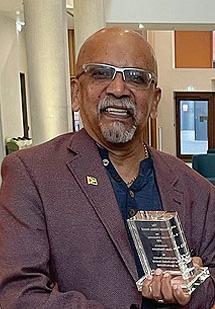
Professor Seecharan has written extensively on West Indies cricket, as well as histories of his native Guyana, including a major study of its former leader in, Cheddi Jagan and the Cold War, 1946-1992. His book, Muscular Learning: Cricket and Education in the Making of the British West Indies at the End of the Nineteenth Century (2006) is a landmark in the history of early West Indies cricket and society, and has subsequently become a platform for much scholarship in the field up to the present day.
He is also the author of From Ranji to Rohan: Cricket and Indian Identity in Colonial Guyana, 1890s-1960s (Hansib, 2009). His Hand-in-Hand History of Cricket in Guyana (Hansib, 2016 & 2018), is an unparalleled and ongoing chronological history of cricket and its social context. It has so far reached two volumes covering 1865 to 1914. He also compiled, edited and annotated 100 essays on sport by the eminent Guyanese poet, public intellectual and Wimbledon tennis player, Ian McDonald in the book, An Abounding Joy (Hansib, 2019).
Clem’s latest book, Joe Solomon and the Spirit of Port Mourant (Hansib, 2022), is a biography of the oldest living West Indies Test player, and describes his role in Frank Worrell’s team in the context of the sporting culture of a turbulent period
Clem Seecharan has written extensively on West Indies cricket, as well as histories of his native Guyana, including a major study of its former leader, Cheddi Jagan
CLEM SEECHARAN: Widely acknowledged as the finest interpreter of West Indies cricket writing today
of change in the last years of colonial Guyana in the early 1960s. The book was awarded the first Guyana Prize for Literature in non-fiction in 2022. Writing in The Cricket Society Journal, Simon Lister (the biographer of Clive Lloyd) says this book, “confirms Seecharan’s place as the finest interpreter of West Indies cricket writing today.”
Clem’s several books on Indian-Caribbean historiography and modern political history include his magisterial Sweetening Bitter Sugar: Jock Campbell, the Booker Reformer in British Guiana, 1934-66 (2004). It was awarded the prestigious Elsa Goveia Prize in 2005 by the Association of Caribbean Historians. He is also the author of Tiger in the Stars: The Anatomy of Indian Achievement in British Guiana, 1919-29 (1997) and Mother India’s Shadow over El Dorado: Indo-Guyanese Politics and Identity, 1890s-1930s (2011).
The Howard Milton Award is a collaboration between The Cricket Society and the British Society of Sports History and seeks to recognise good cricket writing and research whether of an ‘academic’ or ‘popular’ nature. It is named after Howard Milton, the eminent cricket historian and statistician and Honorary Librarian at The Cricket Society for over 40 years.
The award was presented to Clem by Nigel Hancock, President of the Cricket Society.
39 Hansib Review | Issue No. 1
BIOGRAPHY

40 Hansib Review | Issue No. 1
“The soul of this community has to be laid bare, and there is no better time to do that than when we are preparing for Independence, so that we know what we are, who we are, and where we are going.”
Errol Walton Barrow
4 January 1966
The phenomenal life and legacy of Errol Barrow

Guy Hewitt
Errol Walton Barrow’s name is synonymous with the growth and development of Barbados and the modern Caribbean. This courageous, sophisticated, softspoken yet sharp tongued, intellectual giant was the extraordinary leader of a quiet revolution in Barbados and the English-speaking Caribbean.
He provided the vision and framed the mirrorimage of Barbadians and how they should regard their Caribbean brothers and sisters. He proclaimed a gospel of self-esteem, self-reliance, and ultimately Independence. “We were far on the road to achieving a level of understanding in this country where every man, woman and child felt that he or she counted for something; where he or she felt that here in this country existed possibilities for selfrealisation and fulfilment”. This was his ideology.
Influenced by his family, particularly his uncle The Rt Excellent Dr Charles Duncan O’Neal, himself a national liberator and National Hero, and exposed to Garveyism and the 1937 riots, that would be a watershed in the political and socioeconomic development of Barbados, as a teenager he would abandon the comforts of further education and instead enlist in the Royal Air Force. He flew 45 operational bombing missions over the European Theatre during World War II rising to the rank of Flying Officer.
After the war, he read economics, then a relatively new academic discipline, at the London School of Economics and Political Science at a time when it was traditional for Barbadian scholars to opt for an Oxbridge education in law or medicine. While there, he would be exposed to democratic socialism and build lasting friendships with his contemporaries including Forbes Burnham, Michael Manley, Pierre Trudeau and Lee Kwan Yew. He also read for the Bar at Lincoln’s Inn.
In 1950, he returned to Barbados and in 1951 was elected to the House of Assembly. Following a rift with his then party leader over the gradualist approach to change, in 1955 he became a
founding member of the Democratic Labour Party and its leader in 1961 when the party won the General Election. He served as Premier of Barbados from 1961-1966 when after leading the country to Independence, with his now famous statement that Barbados would “not be found loitering on colonial premises after closing time”, he became the first Prime Minister serving continuously for the next ten years as well as Minister of Finance and, initially, also as Minister of Foreign Affairs.
A dedicated regionalist, he was the principal architect of the Caribbean Free Trade Association (CARIFTA) in 1965 and thereafter the Caribbean Community (CARICOM) in 1973 which he described as a “giant step for us all”. Following the oil-crisis and the ensuing economic downturn which affected the countries in the region and also the highly controversial constitutional amendments on the appointment of senior civil servants and judges, his party was defeated in the 1976 General Election.
An influential voice even as Leader of the Opposition, his ongoing advocacy for sovereignty
41 Hansib Review | Issue No. 1
BIOGRAPHY
Errol Barrow with RAF bomber crew during World War II

42 Hansib Review | Issue No. 1
“Presiding over the destiny of a small island, post-slavery and post-colonial society is not easy. There is usually so much to undo at the institutional level, and so much to exorcise at the mental and psychological levels!
Destiny, therefore, is very careful in its identification of those whom it will select for that exacting task.”
BIOGRAPHY
Freundel J. Stuart QC, MP Prime Minister of Barbados (2010-2018)
and regional unity manifested itself in his opposition to the 1983 United States invasion of Grenada that he concluded would, “damage Caribbean sovereignty and self-respect.”
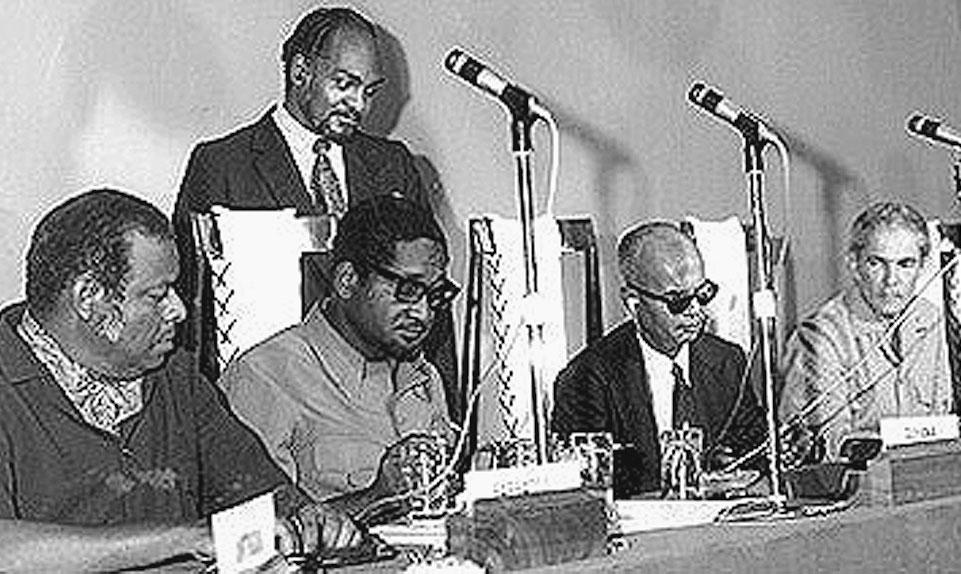
And through it all he never lost his common touch. George Lamming notes, “…in person, he is the least offensive of men; easy, accessible, almost ordinary in his style of discourse. Be it fish market or supermarket, back alley or modern highway, the humble chattel home or posh ministerial office, he moves through these different orbits with a total lack of pomp or ceremony.”
Oliver Jackman captures the embodiment of Errol Barrow as a man ‘of the people, by the people, for the people’ stating, “Everybody has his or her own very personal, totally authentic, Errol Barrow story, and future historians are going to go out of their minds as they try to grapple with the volume of contrast and paradox that awaits them. That is the way it is with heroes...”
In May 1986, after ten years in opposition, he was re-elected as Prime Minister in a landslide victory; his “Mirror Image” speech was a seminal moment in the political campaign. His re-election would witness a continuation of his previous call for regional unity and self-reliance. Regrettably, on 1 June 1987, a year after his re-election, he returned to his ancestors.
In his honour, Barbadians observe his birthday as a National Holiday and have a constant
reminder of his life and service in his likeness on the Barbados fifty dollar bill. In 1998, by an act of Parliament, he was named as one of ten National Heroes of Barbados.
In [the] 50th Anniversary of Independence [2016], the Rt Honourable Freundel Stuart, QC, MP, Prime Minister of Barbados, called on Barbadians as a people to look backward, look inward, and look forward. He urged [Barbadians] to “look backward to see those features of Barbadian life which we have lost and need to reclaim…look inward to see those features of Barbadian life that we need urgently to discard…and look forward to see those features of Barbadian life which we have not lost and need, at all costs, to retain.”
This introspection would be best achieved with a firm grasp of the phenomenal life and legacy of The Right Excellent Errol Walton Barrow.
READ MORE...
Fathering a Nation: Barbados and the Legacy of Errol Walton Barrow
by Guy Hewitt Hardback, £20.00
/ US $30.00
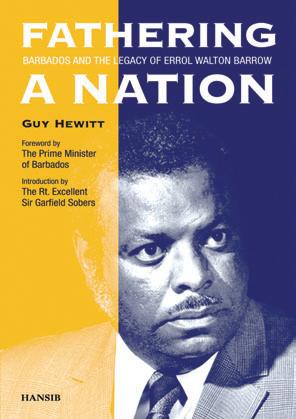
43 Hansib Review | Issue No. 1
BIOGRAPHY
Signing the Treaty of Chaguaramas on 4 July 1973, which established the Caribbean Community and Common Market (CARICOM). Seated left to right are Errol Barrow, Forbes Burnham, Prime Minister of Guyana, Dr Eric Williams, Prime Minister of Trinidad and Tobago and Michael Manley, Prime Minister of Jamaica.

44 Hansib Review | Issue No. 1
A Jamaican pioneer in the fight against disease
Gaia Goffe and Judith Goffe MD
When Alan Goffe, a Black British scientist, slipped and fell into the sea while sailing off southern England in 1966, the world lost one of the most brilliant researchers of his generation. Through his work in the development of polio vaccines in the 1950s, Goffe played an important part in helping rid much of the world of the crippling polio disease.
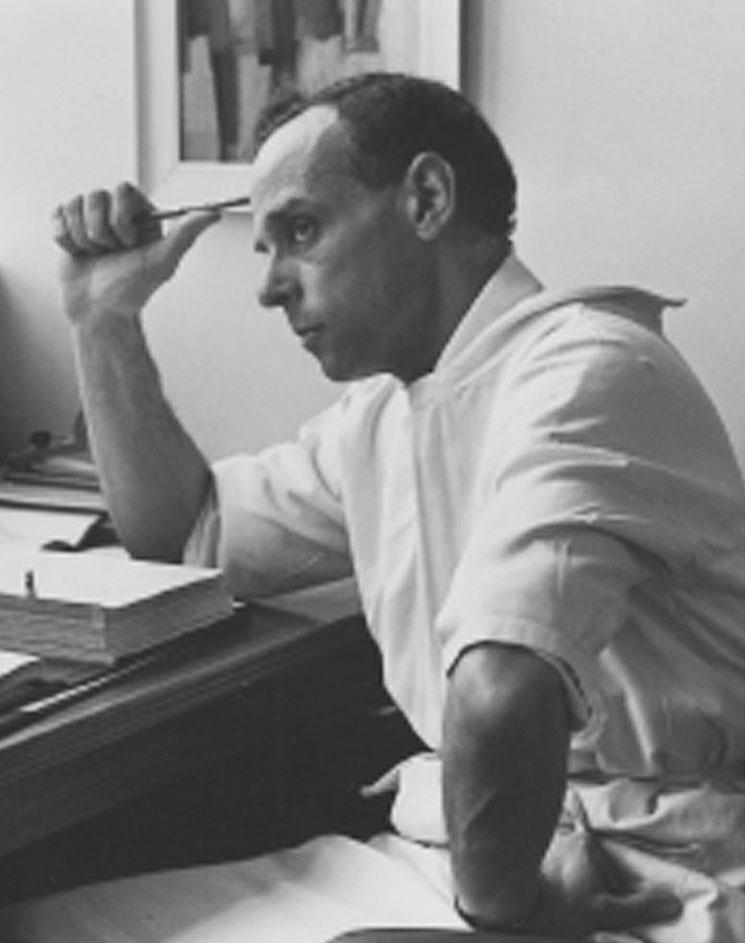
As well as his work on the poliovirus, Alan Goffe did pioneering work on the measles virus, which had been described as “the greatest killer of children in history;” So important was Goffe’s work on measles, scientists named a type of the measles virus, the ‘Goffe Strain’, after him.
Alan Goffe was also one of the first to conduct full-scale studies of the human wart virus, which was recently discovered to be a cause of cervical cancer. In 2006, the United States Federal Drug Administration approved a vaccine that will enable young girls, before they become sexually active, to be immunised against the human wart virus. Had Alan Goffe lived he would have almost certainly played a significant role in the development of the vaccine.
Alan Goffe’s death on August 13, 1966, aged only 46, was all the more tragic because he died at such a young age. His accomplishments were such that The Times dedicated a moving tribute to him three days after his death: “His untimely death is therefore the more tragic,” The Times said, “for one will never know what his outstanding talents would have contributed to science.”
While his death was a great loss to his family, his friends, and his colleagues, Goffe’s loss would have also been felt, in some strange way, by a group of people who had never met him or probably read any of his work.
The son of a white English mother and Black Jamaican father, Alan Goffe was a man between two worlds – the white world and the Black world. To Black people in Britain, whose lives were filled with hardship and obstacles, Goffe would have
provided proof that it was possible to succeed despite discrimination. Indeed, he refuted by his achievements in the world of science, the view that people of African descent were intellectually inferior to whites.
Alan Goffe was certainly the equal, if not the superior, of most of the scientists of his generation.
He began his working life as a scientist in 1946, aged 26, as an assistant pathologist at the Bernard Baron Institute of Pathology at the London Hospital, the university hospital where he qualified as a medical doctor. He stayed at the Baron Institute for only a few months before moving in late 1946 to the Central Public Health Laboratory in Colindale, London. The next year, 1947, Alan completed a diploma in bacteriology at the London School of Hygiene and Tropical Medicine, a
45 Hansib Review | Issue No. 1
BIOGRAPHY
Dr Alan Goffe in his office at the Wellcome Research Laboratories

46 Hansib Review | Issue No. 1
As well as his work on the polio virus, Alan Goffe did pioneering work on the measles virus, which had been described as “the greatest killer of children in history”. So important was Goffe’s work on measles, scientists named a type of the measles virus – the ‘Goffe Strain’ – after him.
preparation for the extensive work he would soon begin in bacteria and viruses.
Like all young men at the time, Goffe was required to spend two years in military service. He did this between 1949 and 1951. Holding the rank of major, he served in the Royal Army Medical Corps and spent time in Egypt, where he took a special interest in the study of typhoid and other diseases. In Egypt, Goffe decided to look at how disease was spread through unsanitary handling of food. He developed a test that enabled researchers to determine whether someone responsible for handling food in a shop or restaurant or elsewhere was infected with the disease schistosomiasis and was therefore in danger of infecting others.
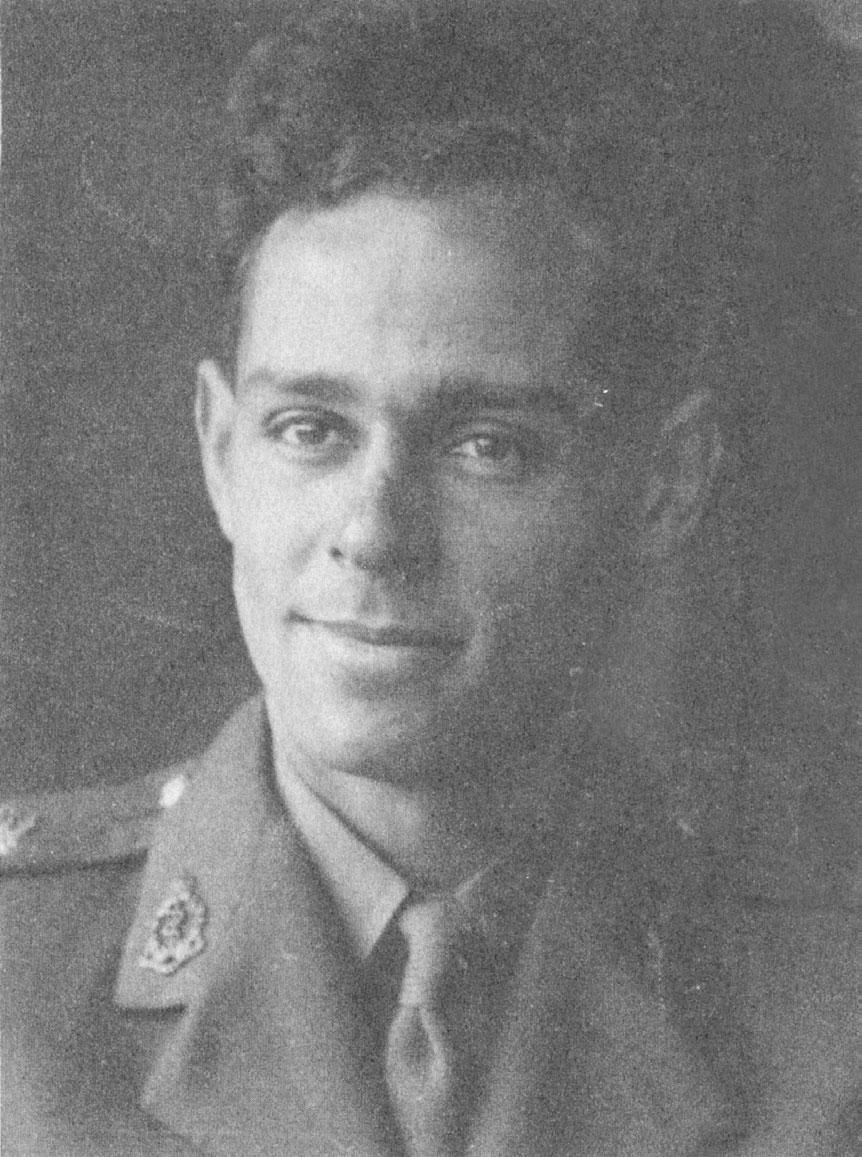
For Alan Goffe, a man of colour, the time he spent in Africa, surrounded by people who looked like him, must have been a life changing experience. His time in Egypt would probably have led the scientist to ask himself why so many Black and brown people suffered and died of diseases that could be easily treated and cured with the right medicines. It was clear to Goffe, a young man with a developed social conscience, that the reason some people lived and some people died was because some were haves and some were have-nots.
Alan Goffe’s time abroad must also have raised questions for him about what sort of scientist he wanted to be. Did he, for example, want to work and make discoveries that didn’t necessarily end human suffering but could perhaps win him great fame, and even fortune?
It’s clear he didn’t want to be just another scientist. His time in Africa probably convinced him that he had a greater responsibility than did his white colleagues to help the world’s suffering people as so many of them looked just like him. Goffe must have been further transformed by being in Egypt during the post World War Two period, a time of great change in the North African country. Gamal Abdel Nasser, an army officer and anti-imperialist, installed himself as president
around this time. Nasser was determined to liberate Egypt from European domination and introduce major changes in the African country.
So, the times in which Alan Goffe found himself abroad as a major in the Royal Army Medical Corps, were times of great change in Africa, in Asia, in the Middle East, and later in the Caribbean, the region where his father had come from.
In 1951, his military service over with, the young scientist returned, changed by his experiences in Egypt, to his job as a bacteriologist in London. No longer a major in the British Army, he was determined now to enlist in another fight –the battle to rid the world of polio, a disease that had caused suffering to millions of people since the very beginning of time.
Alan Goffe knew he couldn’t change the world. But perhaps he could help make it a safer place through his work as a research scientist.
READ MORE...
Between Two Worlds: The Story of Black British Scientist Alan Goffe by Gaia Goffe and Judith Goffe, MD
Paperback, £8.99 / US $14.00
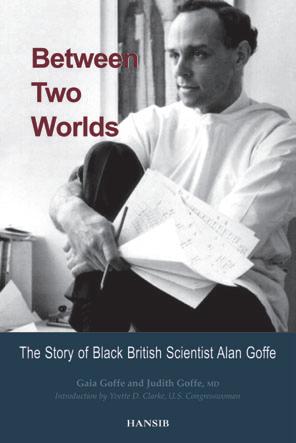
47 Hansib Review | Issue No. 1 BIOGRAPHY
Major Alan Goffe in 1950
DJS Law Solicitors specialises in contentious and noncontentious civil litigation and professional negligence disputes, specifically acting for clients who have been let down by poor professional services, or advice that has caused losses.

We act for businesses, individuals and charities and can help you resolve your claims against most professionals, including an architect, accountant, barrister, financial advisor, solicitor, surveyor or valuer, to list but a few. Outside of our firm’s specialism, we also have expertise in:
• alternative dispute resolution
• change of name deeds
• charity law
• commercial disputes
• consumer law

• landlord and tenant
• lasting powers of attorney
• swearing statutory declarations and affidavits
• travel claims
• wills, probate and estate administration
We offer easy, efficient and cost-cutting legal solutions to your legal problems and pride ourselves on offering every client value for money and affordable services.
Our Caribbean Legal Services offering means we can partner with barristers and solicitors throughout the Caribbean to provide cost-effective solutions to common issues such as title to land, dealing with adverse possession of property, and wills, probate and inheritance matters.
For further information, or if DJS Law Solicitors can assist you, then email info@djslaw.co.uk or telephone on +44 (0)1992 300 845
Twitter: @djslawltd • Website: www.djslaw.co.uk • Google reviews: djs law (Google Search)
48 Hansib Review | Issue No. 1
PASTOR DANIELS EKARTE AND THE AFRICAN CHURCHES MISSION: Liverpool 1931-1964

Marika
Sherwood
A young man arrived in Liverpool from Nigeria around 1915, expecting to find the streets paved with gold. The Dingle area of Toxteth he settled in was instead depressed, poor, racist, and to his mind, ungodly. In 1931, he founded the African Churches Mission, in which he not only conducted services but also fed and clothed the poor of the community, and housed seamen and others denied accommodation due to the colour of their skin. He also provided a home for the unwanted children of local white women left behind by their fathers, African American servicemen who returned home when World War II ended.
As a radical supporter of pro-independence and anti-racist movements in the African Diaspora, he was regarded as troublesome by the Establishment, and therefore received no state or volunt ary support, not even from the Anti-Slavery Society. Nevertheless, he and his mission soldiered on for over thirty years, until the dilapidated building was finally demolished by the Council in 1964. Using British and international sources, historian Marika Sherwood has pieced together this account of the remarkable life and work of Pastor Daniels Ekarte (referred to as the African Saint), retelling an inspiring story of kindness, activism, Black pride and resilience in a city built on the exploitation of his Continent. Paperback, £11.99 / US $18.00 • eBook, £3.99 / US $4.99
SPEAKING TRUTH TO POWER: The Life and Times of an African Caribbean British Man
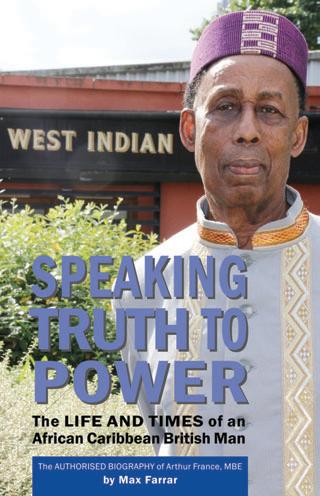
Max Farrar
This biography of Arthur France MBE is the story of someone that ‘the establishment’ would prefer to keep hidden from British history. But Arthur has made history.
Born and raised on the Caribbean island of Nevis, he arrived in Leeds in the north of England in 1957. From the moment he arrived, he began to organise members of the local Caribbean community into a united force for social progress. But Arthur is best known as the founder of the first Black-led Caribbean Carnival in Europe. This was in Leeds in 1967, but his idea for carnival was not merely sequins and feathers – for him, Carnival was a symbol of Emancipation and a vehicle for changing people’s lives.
If Leeds is now a city that embraces diversity, it is in no small part due to Arthur France and his brothers and sisters in struggle. In telling Arthur’s story, Max Farrar also reflects upon the struggle for justice and equality led by so many members of Britain’s Black and Brown communities. It provides the context of violent racism, including the white riots in London’s Notting Hill, the relentless provocation towards their own self-defence, and the growth of the Black Power movement. This remarkable man’s life story is a poignant narrative about ‘race’ in post-war Britain.
Paperback, £13.99 / US $21.00 • eBook, £3.99 / US $4.99
CLOCKING UP PRAYER MILES: A Spiritual Journey
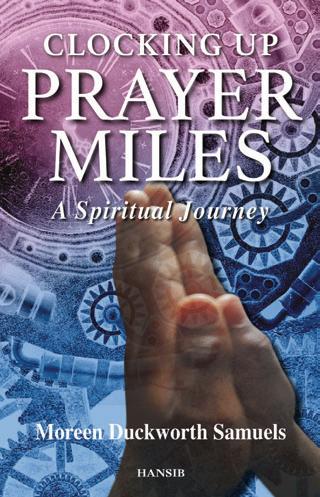
Moreen Duckworth Samuels
There is no denying that we live in a chaotic and uncertain world filled with many challenges. The stresses and strains of daily life will test us to the limit and it is often hard to avoid being affected, either emotio nally, physically or spiritually. This book aims to shine a light on the steps towards spiritual restoration and to show how, through prayer, the future will appear so much brighter than even the darkest days.
Drawing upon the author’s spiritual experiences, it will show how prayer underpinned her faith and gave her strength during challenging circumstances.
Paperback, £15.00 / US $22.00 • eBook, £6.99 / US $8.50
REACHING FOR THE STARS: The Life of Dr Yesu Persaud, Volume Two
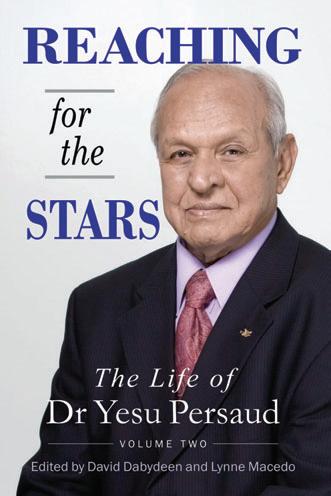
David Dabydeen and Lynne Macedo
Yesu Persaud was a businessman, banker and philanthropist. The son of cane workers, he would eventually rise from his humble origins to become one of Guyana’s most successful entrepreneurs. Alongside his business career he freely gave of his time and experience to the many organisations he helped found to assist those less fortunate than himself. Amongst his many philanthropic activities was his keen and continuous support of educational activities at the University of Guyana.
In Volume One of his memoirs, Dr Yesu Persaud wrote movingly about his family and their struggles both during and after the abolition of the indentureship system that had first brought them to what was then British Guiana. In Volume Two , he continues the story of his life from the mid-1970s, and provides a fascinating view of his business and professional life, as well as his philanthropy. Entwined with this story is a more personal account which gives a deeper insight into Dr Persaud’s private life amongst family and friends. Even in the face of adversity, his candour and strong sense of humour always shine through. Alongside his personal life, he gives an enthralling and detailed account of the political landscape of Guyana over the past seven decades. He weaves his own narrative alongside that of a broader, nationwide perspective, providing the reader with a highly personal insight into many of the country’s key political events.
Hardback, £20.00 / US $30.00 • eBook, £4.99 / US $5.99
SHRIDATH RAMPHAL: The Commonwealth and the World Richard Bourne (Ed.)
This anthology of essays provides glimpses of a remarkable career and has been written by persons who worked with Shridath Ramphal or have researched his many contributions to the Caribbean, the Commonwealth and the global community, and to internationalism.

Shridath “Sonny” Ramphal grew up in Guyana in the colonial era to become the leading spokesman of the free, independent, developing world in the last quarter of the 20th century. For an unequalled stint of 15 years (from 1975 to 1990), he was SecretaryGeneral of the Commonwealth of Nations.
Among his many achievements, he includes being a key player in bringing an end to Ian Smith’s Unilateral Declaration of Independence and institutional racism in Southern Rhodesia. He spent much of his last five years as SecretaryGeneral in the struggle to end apartheid in South Africa. He had the satisfaction of playing a part in Nelson Mandela’s release from prison in February 1990, and Namibia’s independence the following month.
Hardback, £16.99 / US $34.00
FROM WHERE I STAND Roy Sawh
Renowned civil rights activist and public speaker, Roy Sawh looks back over his three decades in Britain since his arrival in the 1950s. This part biography, part social commentary, contains all the elements of the life story of any West Indian in Britain. West Indians came with dreams and expectations of being treated as full citizens of their ‘Motherland’ – a country for which they had fought in the Second World War. But they were quickly and starkly disillusioned and shocked by racist rejection and cruelty.
Paperback, £5.95 / US $9.00

49 Hansib Review | Issue No. 1 BOOKSHELF • Biography & Memoir
Books & eBooks published by Hansib Publications are available worldwide from many booksellers including: Amazon , Wordery , Kobo , World of Books , Alibris, Waterstones, Bookshop.org , Foyles and Blackwell’s
JOE SOLOMON AND THE SPIRIT OF PORT MOURANT: The Making of the Guyana and West Indies Cricketer and its Context, 1930s-1960s
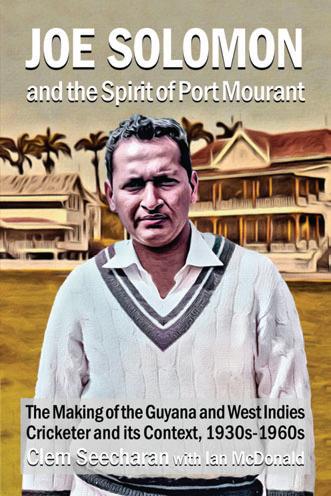
Clem Seecharan with Ian McDonald
This tribute to Joe Solomon (1930-), now the oldest West Indies Test cricketer, celebrates the career “and its context” of this reliable lower middle order batsman on his 92nd birthday. Solomon is from Port Mourant, an exceptional sugar plantation on the Corentyne Coast in Guyana (formerly British Guiana), birthplace of the Guyanese leader Cheddi Jagan (1918-97), as well as several other Test cricketers: John Trim, Rohan Kanhai, Basil Butcher, Ivan Madray and Alvin Kallicharran.
Solomon played in 14 of the 15 Tests led by the first black captain of the West Indies, Sir Frank Worrell (1924-67), between 1960 and 1963. Worrell’s teams rekindled passion widely for a game that had become stodgy in the late 1950s. Though less flamboyant, Joe was the even-tempered stabiliser in a team of gifted, if mercurial, stroke-makers. In December 1960, Solomon executed two run outs, direct hits when Australia was on the verge of victory, that were instrumental in effecting the first Tied Test in the history of cricket. The style and sportsmanship of Worrell’s team, in 1960-1, so captivated the Australian imagination that over 300,000 poured into the streets of Melbourne, on 17 February 1961, to say farewell to the West Indians.
Joe Solomon will be remembered eternally for that Tied Test in Brisbane in December 1960; but, as Ian McDonald reminds us, ‘over and over again, Joe walked to the wicket with everyone in the nation depending on him to save the day’. This book examines the private and wider social forces that made Joe the epitome of the qualities Worrell inculcated in his players: application, control of the emotions, fidelity to the traditions of the noble game, team spirit and an appreciation that West Indians expected their cricketers to be exemplary ambassadors, within and beyond the boundary.
Paperback, £18.99 / US $30.00 • eBook, £4.99 / US $5.99
SIR DENNIS BYRON: Law Legend
Francis Alexis
Often described as the greatest Caribbean jurist of our era, Sir Dennis Byron had a long and distinguished career serving in institutions in the Caribbean, Africa, Canada and the UK.
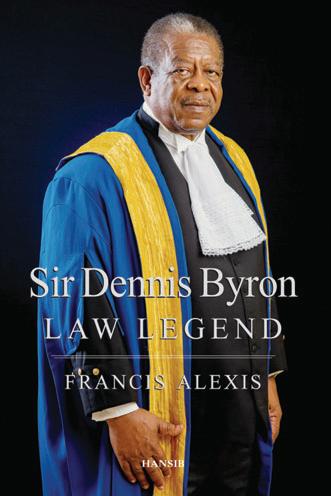
He was born in 1943 in St Kitts, won the highly coveted Leeward Islands Scholarship in 1960 and went on to read law at Cambridge University in 1962. His many years of service reflect a catalogue of landmark legal decisions, outcomes and honours. Among these, he presided over the historic murder trial on the killing of Grenadian Prime Minister Maurice Bishop; he was President of the UN ICT for Rwanda; regularly addressed the UN Security Council; and received a Knighthood in 2000.
eBook, £8.99 / US $10.99
KING SHORT SHIRT – Nobody Go Run Me: The Life and Times of Sir MacLean Emanuel

Dorbrene E. O’Marde
This important biography of Antigua’s greatest calypsonian is also an in-depth study of the culture and socio-political history of Antigua and Barbuda and the wider Caribbean. The traditional ‘Caribbean song’ and its creators are treated with dignity and deep appreciation. The result is an essential and long overdue addition to the study of calypso.
This is a must-read for calypso lovers, but there is something here for everyone – from the casual reader with interest in Caribbean music and culture to the students and teachers of Caribbean sociology and cultural studies. Paperback, £11.99 / US $20.00 • eBook, £7.79 / US $9.00
THE AUTOBIOGRAPHY OF DR COLIN BRIAN FURLONGE: In the Public Service of Trinidad and Tobago

Dr Colin Brian Furlonge
Dr Colin Furlonge served 34 years in the Public Service of Trinidad and Tobago, culminating with eight years as Medical Chief of Staff and three years as the nation’s Chief Medical Officer. In this expansive autobiography, he also provides a detailed expose as the “victim of a history of prejudicial treatment”. This treatment was directed by the Government of the day and was guided by the Public Service Commission (PSC).
In 2004, he was compelled to resort to the High Court of Justice, whose Judgement stated that, “… compliance with PSC Regulations is necessary if there is to be confidence in the Public Service; failure to do so results in the warranted suspicion of arbitrariness, discrimination, bias, partiality and even political interference, especially when division along ethnic and political lines are often determinative of the perception of reality…”. It concluded that, “… the Applicant felt legitimately aggrieved.”
“The book depicts a son of the soil in his struggles, literally from boyhood, to achieve the ultimate position in the Health Service in Trinidad & Tobago.” Lal Sawh, reviewer for the British Medical Journal
“A remarkable story of a dedicated public servant who has served his country and the medical profession well.” Professor Steven Myint, former Dean of Medicine & Health at the University of Surrey, UK
“Bouts of laughter, intrigue and contemplation, punctuated by bouts of anger and sadness; an information boiling pot highlighting a fearless approach to life and public service.” Dr Curtis Rambaran, former Consultant Physician, Guy’s and St Thomas’ Hospital, London
Paperback, £20.00 / US $30.00 • eBook, £4.99 / US $5.99
BETWEEN TWO WORLDS: The Story of Black British Scientist Alan Goffe
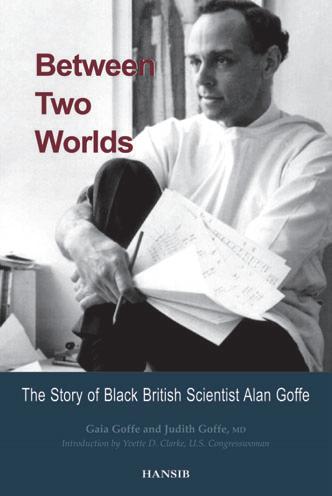
Gaia Goffe and Judith Goffe, MD
This is the moving story of a renowned medical scientist who was tragically cut down in his prime.
Alan Goffe was born in Britain in 1920 to a Jamaican father and an English mother, both of whom were physicians. During the 1950s and 1960s, Dr Alan Goffe was one of a group of microbiologists who helped develop and improve vaccines designed to fight two of the world’s most deadly infectious diseases – polio and measles. However, less than a year after establishing the department of experimental cytology at the Wellcome Research Laboratories, he tragically drowned in a yachting accident off the southern coast of England. He was forty-six.
Paperback, £8.99 / US $14.00
I NEVER SAID GOODBYE Reynold Burrowes

This is the story of one man’s return to Guyana, the land of his youth. His return was thirty-five years in the making, back to the country he never expected to leave; a place he thought would always be home.
Reynold Burrowes travelled to Guyana with several former classmates who, like him, were Guyanese expats hoping to reconnect with family members and old friends. The visit exceeded all expectations and was both eye-opening and overwhelming. They witnessed with great pride how the former British colony had made much progress. There was a dynamic tempo to daily life and an air of industriousness and optimism. But, despite their best efforts to re-engage, they felt increasingly like outsiders, desperately trying to envision their former selves in this now unfamiliar land. This memoir tells a familiar tale of those who dream of returning ‘home’ some day, but whose nostalgic voyage of discovery isn’t always what they hoped it would be. Paperback, £11.99 / US $18.00
50 Hansib Review | Issue No. 1 BOOKSHELF • Biography & Memoir
KAMLA: Trinidad and Tobago’s First Woman
Prime Minister
This book chronicles the first year as Prime Minister of the remarkable Kamla PersadBissessar – the country’s First Woman Prime Minister. It also demonstrates the path taken by one of a growing number of women who are now leaders of their nation.

Born into humble beginnings in a farming district, the young Kamla Persad grew up with few material possessions, but it was her mother who would give her the gift of courage and the passion to dream. These attributes would first take her to London, as a teenager, to study and become a social worker.
But, as Kamla matured, so too would her dreams. She became a university lecturer and then a lawyer, but her connection with ordinary people would ultimately inspire her to become a ‘representative of the people’ in her native Trinidad and Tobago.
This lavishly illustrated book is a pictorial reflection of Kamla’s activities during the first year of her premiership and provides an insight into her thoughts and dreams for the future of Trinidad and Tobago.
Hardback, £20.00 / US $35.00
TRIALS OF A TRIAL LAWYER
Derick F. Sylvester
From as early as he could remember, Derick Sylvester had set his sights on becoming a lawyer and to fight injustice. Despite the most humble beginnings, his passion, drive and sheer grit propelled him to achieving this goal.
He was born and raised in Grenada and read law at the University of the West Indies in Barbados, and also at the Hugh Wooding Law School in Trinidad and Tobago.
Throughout this autobiography, Sylvester presents unique insights into the trial process and he reflects upon the many cases in which he has been involved. One such case being his involvement in the resentencing of those convicted of murder in the Maurice Bishop Murder Trial.
In addition to his work as an Attorney-at-Law, Derick Sylvester is an active and effective participant in public service in Grenada. He served as Chairman of the Allied Health Professional Council, and the Grenada Football Association Disciplinary Appeals Committee; he was Director of the Maurice Bishop International Airport Board, and the National Housing Authority Board; and from 2013 to 2018, he served as Chairman of the Public Service Commission of Grenada.
Trials of a Trial Lawyer traces the journey of Derick Sylvester’s life to date and explores the many experiences that have influenced his progression into the lawyer we see today. Written in his own words, this autobiography is emotive, engaging and reflects his empathy for the human condition, his passion for the law and his never-ending quest for justice.

Hardback, £20.00 / US $30.00 • eBook, £8.99 / US $10.99
THE UNDIMINISHED LINK: Forty Years and Beyond

Victor Waldron
This is the story of the author’s journey from village life in British Guiana to London at the end of the 1950s. The sudden culture shock brought many complications: the cold weather, the difficulty obtaining accommodation, and the constant threat of hostility and racial discrimination. It was a time of working among people who resented the arrival of immigrants and having to contend with the ensuing bigotry. This is an autobiography that reflects upon the experiences and intrigues of those times and beyond. It tells of the struggle for survival and the desire to succeed; the shattered dreams and aspirations that were never accomplished; and the challenges of raising three children in an often hostile environment.
Paperback, £8.99 / US $14.00
SHOULDERING ANTIGUA AND BARBUDA: The Life of V.C. Bird

Paget Henry
As its charismatic labour leader, its first Chief Minister, its first Premier and first Prime Minister, V.C. Bird dominated the political life of Antigua and Barbuda for the 55 years between 1939 and 1994. This is the first full-length biography of the great Antiguan and Barbudan political leader. It begins with a close look at the path of his development as a man and as a politician. It then examines the major achievements and failures of Bird’s rule, the contours that they outlined, and the indelible traces they have left on the path of the country’s history. His major achievement was to gain independence for Antigua and Barbuda from Britain. The book concludes with some reflections on V.C. Bird’s endeavours towards postcolonial transformation not only in Antigua and Barbuda but also for the wider Caribbean.

Paperback, £11.99 / US $20.00
RECYCLING A SON OF THE BRITISH RAJ
Peter Ramrayka
Peter Ramrayka was born in what was then colonial British Guiana (now Guyana). The grandson of indentured Indian labourers, he was brought up to believe that, despite his Indian cultural heritage, Britain was, in fact, the ‘Mother Country’. With ambitions to become a lawyer, he travelled to England in 1961 with the intention of returning ‘home’ once he had realised his dream. He soon discovered that the so-called mother country was a place where people of colour faced discrimination and victimisation. He joined the Royal Air Force as an option to both work and study. In this environment, he was largely shielded from overt discrimination and soon adopted British cultural values and ways of doing things. This grounding led to exciting and successful careers and endeavours in the National Health Service, the Magistracy, political activism, mission director of a flying teaching eye hospital, British Executive Service Overseas volunteer, and international healthcare management consultant to former British colonies. Peter Ramrayka’s autobiography tells the story of his fateful journey and his fortitude to address and overcome the challenges of life in Britain.

Paperback, £13.99 / US $21.00 • eBook, £6.99 / US $8.50
MISS NOBODY
Patricia Grant-Morby
In this candid and heartbreaking memoir, the author reflects upon her troubled life. It is a life filled with sorrow, misery and pain – both physical and psychological. She has faced the many challenges with courage and determination, but not always with successful conclusions.
The daughter of Jamaican parents, she was born in England but raised in Jamaica until her teenage years, after which she returned to England. Her father spent most of these early years back in England, working and sending money home to his family. So, Patricia and her siblings were raised by their mother, and also their grandmother. And it is this relationship with her mother (and at times, her grandmother) that has affected her to the present day. It was a relationship characterised by verbal and physical abuse; of neglect, ridicule and the constant threat of severe beatings. Told in her own words, this is a frank and harrowing narrative of a deeply troubled life.
Paperback, £8.99 / US $14.00 • eBook, £2.99 / US $3.80
51 Hansib Review | Issue No. 1 BOOKSHELF • Biography & Memoir
Books & eBooks published by Hansib Publications are available worldwide from many booksellers including: Amazon , Wordery , Kobo , World of Books , Alibris, Waterstones, Bookshop.org , Foyles and Blackwell’s
CASE DISMISSED!
Gloria Cameron, MBE

Gloria Cameron came to Britain from Jamaica as a young woman and endured the discrimination she met on arrival and managed to raise six children in a positive way, despite her own setbacks.
She was educated in her place of birth and also in the UK and moved into community work. She worked diligently and devoted all her efforts to her chosen vocation. However, when her commitment and dedication were seen as ‘taking’, she faced unfounded accusations of wrong-doing. But the case against her collapsed and was dismissed within two days! But the damage was done.
For a woman who had worked with integrity and dedication, who was appointed a Justice of the Peace, was awarded and MBE, had met with Princess Diana, and had made television appearances, these were dark days.
Gloria’s story is an account of how some Jamaicans came to Britain, made new lives for themselves, became valued members of society, but who were, ultimately, brought down by unknown forces.
“… a non-patronising, non-sentimental and certainly a non-pathological account of her experience as a Caribbean migrant mother living, surviving and bringing up six children in London.” Dame Jocelyn
Barrow OBE
Paperback, £11.99 / US $18.00
• eBook, £5.99 / US $7.20
TRAVELS WITH A HUSBAND

Patricia Mohammed and Rex Dixon
This book is a journey about friendships and memories, about marriage, companionship and work, an autobiography in prose, verse and drawings, a travelogue, and an adventure in style. It is also autobiographical because it records a creative and intellectual partnership of over two decades.
The authors have journeyed as reluctant tourists rather than as voyeurs and recall their encounters from the Caribbean, the United Kingdom, Australia, India, Namibia and the Netherlands.
Patricia Mohammed’s contributions are reflective of history or social attitudes. Rex Dixon, in turn, interprets, sometimes with humour, events and situations with different artistic nuances and mediums. Illustrated in colour throughout depicting nearly one hundred original works of art
Born in Trinidad and Tobago, Patricia Mohammed has lived at various times in the United Kingdom, the Netherlands, Jamaica, Trinidad and the United States. She is a scholar and filmmaker and currently Professor of Gender and Cultural Studies at the University of the West Indies in Trinidad.
Rex Dixon was born in London. After teaching in the New University of Ulster in Belfast for several years, he came to Jamaica in 1985 to teach at the Edna Manley College for the Visual and Performing Arts. He has held numerous one person exhibitions in Kingston, Port of Spain and abroad and his paintings are in the permanent collection of the National Gallery of Jamaica, Wolverhampton Art Gallery and numerous private collections.
Paperback, £15.99 / US $24.00
WALK WITH ME: An Autobiography
Collin Leroy Carter
This intriguing and engaging autobiography is the fulfilment of the author’s lifelong dream to tell his unique story. Collin Carter arrived in London from Barbados as a young man in 1962 and is renowned for being the founder of the UK’s first Black-owned funeral service. Since its establishment in 1992, African-Caribbean Funeral Services has attended to the needs of the Black community. The company received nationwide attention in 1993 when it provided the funeral services for Joy Gardner, a Jamaican mature student who died after being detained during a police immigration raid on her home in London. Collin was pictured across the nation’s TV channels and newspapers heading the funeral procession.
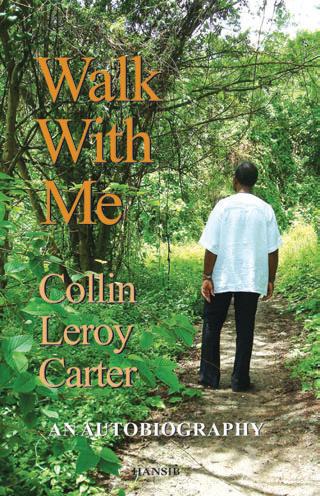
Hardback, £15.00 / US $25.00
• eBook, £5.00 / US $5.99
BELONGING: Fate and Changing Realities

Herman Ouseley
Belonging: Fate and Changing Realities is a compelling account of one man’s extraordinary life experiences. As a twelve-year-old born into an impoverished single parent household in what was then British Guiana, Herman travelled unaccompanied across the world to Britain to be re-united with his mother in Peckham, south London. Low in selfconfidence and self-esteem, he regarded himself as a “nobody” in this new world as he struggled to come to terms with the harsh realities of brutal abuse, discrimination, exclusion and the necessity of survival. This memoir vividly describes how he learnt to cope with all challenges, finding his own unique ways of winning people over and encouraging them to mix with others who are different from themselves. Along the way, he learnt how to develop methods to convince and persuade powerful people to use their influence and decision making to help eliminate the adverse effects of institutional discrimination, reduce prejudice and bigotry, and to build social cohesion. Over a period of 56 years dedicated to public service, he became a “somebody” at times, as he challenged the ‘good and the great’ to use their resources and power in pursuit of the goals of equality and cohesion. But, in spite of the opportunities to access such places of power, he never felt a full sense of belonging and his focus has always been to hold on to the different realities of his own experiences.
As he now reverts back to obscurity, he reflects on contemporary Britain, knowing that there is still a struggle to achieve responsible and accountable leadership on matters of equality, without which many people like himself will continue longing to feel that they also belong.
Paperback, £13.99 / US $21.00 • eBook, £6.99 / US $8.50
IRA ALDRIDGE: Celebrated 19th Century Actor

Martin Hoyles
He was one of the most celebrated actors of the nineteenth century and performed in all the major towns in England, Ireland, Scotland and Wales, and won international fame when he toured Europe, earning a dozen honours and awards, including a knighthood in Germany. He was most famous for his portrayal of Othello, but he also acted in many other roles in a career spanning more than forty years. He was the first Black actor to play white roles, including Shylock, Richard III, King Lear and Macbeth. After three years of amateur dramatics in New York, he left for England. In 1825, he played Othello at the Royalty Theatre in the east end of London and later took the main role in the Royal Coburg Theatre (now the Old Vic). He played the part of the African prince Oroonoko in The Revolt of Surinam, a story which challenged the evils of slavery. Despite being “the world’s most celebrated interpreter of Shakespeare” during his lifetime, Ira Aldridge was largely forgotten in Britain and America after his death in 1867. He was a brilliant realistic actor, but also a valiant campaigner against slavery. Paperback, £8.99 / US $14.00
TAKING IT TO THE MAX: An Autobiography
Maxie Hayles
This is an autobiography of the life, times and adventures of a community and human rights activist who eventually settled in Birmingham, England, where he has lived and worked for more than sixty years. He was born in Jamaica and after migrating to Britain he spent most of his adult life fighting for social justice and equality. He is a devout Christian with a firm belief in humanity, which is underpinned by his deep spiritual values and principles. Maxie has never wavered from the challenges of trying to make the world a better place. Throughout this journey, he faced many adversities which have tested his strength and resolve. But he always persevered through sheer determination, faith and strength of character. Paperback, £11.99 / US $18.00

52 Hansib Review | Issue No. 1 BOOKSHELF • Biography & Memoir
UNBEATEN INNINGS
Steve Stephenson
Unbeaten Innings is the fascinating autobiographical account of the life of Steve Stephenson, MBE. It is a vivid insight into his love of sport, family life and career in local government; both as a social worker and as a prominent equality and human rights campaigner. It also highlights his dedication to tackling racism, both in his working environment and through a lifetime of voluntary work in support of Black cricketers and footballers, in particular.
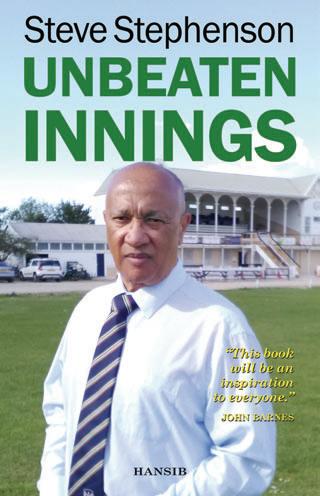
Steve Stephenson grew up in Kingston, Jamaica, and moved to the UK when he was eighteen years old. From his early years working on an assembly line at Chrysler to his role as a senior social worker and manager of the Malcolm X Centre in Bristol, Stephenson has dedicated his life to helping others. His years as leader of the Starlight Youth Club in Luton is just one example of his outstanding commitment to the voluntary sector, whilst his talent for raising money for charitable organisations has become legendary within the Black community.
As a passionate player and fan of cricket, he has supported, and even provided catering for, the West Indies teams during their visits to the UK since the 1980s. Many of the players now consider him as a close friend and, in turn, assist in his charitable activities. He was also the first to pay tribute to the pioneers of Black British football, and continues to actively campaign against racism in all walks of life.
Paperback, £13.99 / US $21.00 • eBook, £4.99 / US $5.99
GOODBYE, MANGO SERGEANT: Memoir of a Jamaica Trench Town Boy
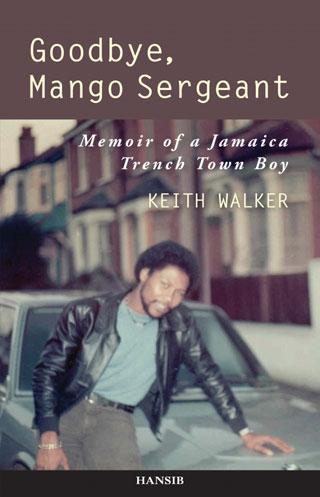
Keith Walker
Keith Walker spent his early years in Kingston, Jamaica, where life was tough in the hot and dusty ghettos of Trench Town. This is where his story begins. He later moved to the countryside parish of Portland where his love for the plentiful and delicious mango earned him the nickname, Mango Sergeant.
In the mid-1960s, Keith said goodbye to the land of his birth to join his mother in England. It was the Swinging Sixties – a time of love and ‘flower power’ –but life in London for a young Black man was cold, bleak and unfriendly, and presented a whole new set of challenges. Every day was a struggle in his new, adopted home, but Keith accepted his fate and decided to do the best he could through diligence and hard work.
Nearly fifty years on, and looking back on his life, there were times of great adventure and great danger; friendship and conflict; joy and sadness; and ultimate success. “For me,” he says, “success is being able to walk the streets, ride the buses or visit public places without the fear of being discriminated against because of the colour of my skin or the land of my birth.”
Paperback, £8.99 / US $13.00 • eBook, £5.84 / US $7.00
ONE PEOPLE MAYOR: A Journey

Sebert Graham in conversation with Ian Mulder
Sebert Graham’s laughter pervades this tale of a Jamaican immigrant who sailed to Britain in 1960. Born into a large and affectionate family in rural Jamaica, Sebert charmed his teachers, relatives, bully-boy peers and Army NCOs while he went his own rebellious and pioneering way.
Moving with his family to a market town nestling in Buckinghamshire’s Chiltern Hills, he involved himself in youth work and comm unity relations. Frustrated with local government red tape, he decided to stand as a town councillor, and a few years later was elected Mayor. He remains awed and humbled at the opportunity he was given to work for the whole community. His life work illustrates how much effort, often voluntary, has been invested into reinventing Britain as a multicultural land at peace with itself.
Paperback, £8.99 / US $14.00
ANDREW WATSON: The World’s First Black Football Superstar
Tony Talburt
Today, seeing Black footballers playing the game at the very highest level is considered very normal. This, certainly, was not the case one hundred and forty years ago, and this is what makes the story of Andrew Watson so remarkable.
It seems hard to imagine that a Guyanese-born Black man could head the Scottish national football team in 1881 in a game against England. Not only was he captain, but he also led them to a 6-1 victory in London – an achievement that still ranks as England’s heaviest ever defeat on home soil. If this were all that Watson had been able to accomplish, most people would agree that he should be commended for being the world’s first Black person to captain a national football team. But there was so much more. He was the world’s first Black football administrator, as well as the first Black player to win three national cup winners’ trophies. During the 1870s and 1880s, when Watson played, he was regarded as one of the finest players in Britain.
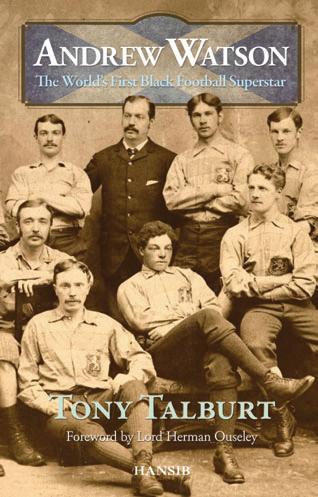
The word ‘pioneer’ is often used to describe certain players, but this would certainly be a most fitting expression to encapsulate the remarkable achievements of Andrew Watson. This book reflects upon the legend, legacy and pioneering endeavours of a truly great Black British football superstar.
Paperback, £9.99 / US $15.00
A.N.R. ROBINSON: In the Midst of It
A.N.R. Robinson
Autobiography of Former President & Former Prime Minister of the Republic of Trinidad and Tobago
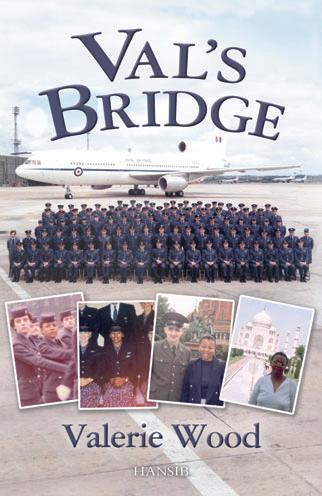
From humble origins, Arthur Napoleon Raymond Robinson rose to become a national, regional and international leader. He would become a graduate of Oxford University, a parliamentarian, Minister of Finance, and Prime Minister and President of the Republic of Trinidad and Tobago.
A.N.R. Robinson has not only been a great leader of his country, but he has demonstrated that capacity on the world stage. In this regard, he has altered the course of history by his extraordinary leadership in the creation of the International Criminal Court (ICC). Without his efforts, it is doubtful that this major international institution would exist today.
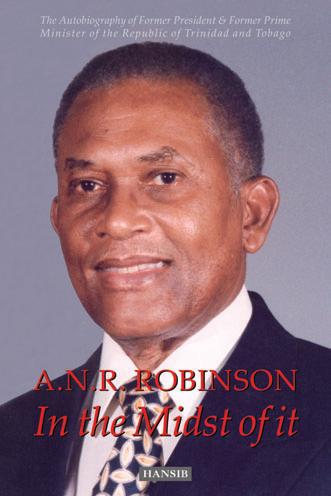
Paperback, £10.99 / US $18.00
VAL’S BRIDGE
Valerie Wood
This is the story of a Black woman who followed her dreams from the age of six years old. She was aware very early on that it would take more than determination and ambition to pursue her goals, especially when the going got tough. This is her fascinating journal of the major episodes in her journey of life, including being one of the few Black women to enlist in the RAF.
“Fascinating, inspiring … Val has put into context several aspects of her journey that are typical of people who are a part of the Black Diaspora. A wonderful read.” Whit Stennett, Councillor and former Mayor of Trafford “... an in-depth and fascinating insight into a world few people see. It is all the more interesting written from the perspective of a young Black woman at a time when few Black people were in the RAF.” Deanne Heron, author of Pardner Money Stories
Paperback, £6.99 / US $12.00 Books
53 Hansib Review | Issue No. 1 BOOKSHELF • Biography & Memoir
& eBooks published by Hansib Publications are available worldwide from many booksellers including: Amazon , Wordery , Kobo , World of Books , Alibris, Waterstones, Bookshop.org , Foyles and Blackwell’s
BEACONS OF LIBERATION

Shango Baku
A collection of short biographies of historical Black leaders who had advanced the cause of African liberty and emancipation. Their heroic efforts in the struggle for equality and freedom still resonates in the 21st century. The biographies includes freedom fighters and activists from a range of backgrounds in Africa and the African Diaspora such as Queen Nzinga in 16th century Angola, Queen Mother Moore in 20th century USA, Marcus Garvey, Malcolm X, Mary Prince, Robert Wedderburn and Ira Aldridge. Paperback, £6.99 / US $11.00 • eBook, £4.54 / US $5.50
GLIMPSES OF A GLOBAL LIFE
Shridath Ramphal
This memoir involves a cast of the world’s leading characters and the central role Ramphal played alongside them. He tells the story of the Commonwealth’s role in ending the Unilateral Declaration of Independence of Southern Rhodesia by a minority white regime and bringing Zimbabwe to independence; of aiding the struggle against apartheid and securing its end, and the release of Nelson Mandela and South Africa’s freedom; of Margaret Thatcher’s obduracy against sanctions and the heroic stand against her by other Commonwealth leaders – from Africa, India and, particularly, in terms of effectiveness, Canada and Australia.
In these ‘glimpses’, the shadows of characters such as Uganda’s Idi Amin are recalled, as are the enlightened spirits of others like Germany’s Willy Brandt and Nelson Mandela, all of whom Ramphal encountered in his global life. eBook, £11.69 / US $14.00
POTARO DREAMS: My Youth in Guyana
Jan Carew
This is the first volume of Jan Carew’s memoirs. In naming it ‘Potaro Dreams’, he draws a parallel between Guyana’s Potaro River – which is an essential river in what the Amerindians called “the land of many rivers” – and the shaping of his young life.
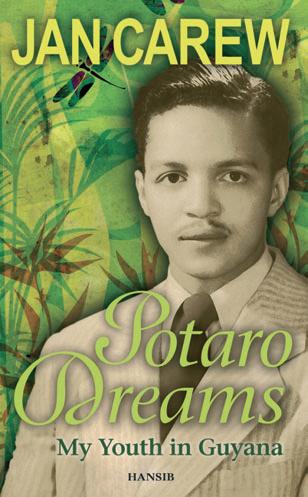
Born in 1920, Carew’s engaging memoir takes the reader from his near-death experience with malaria, into his village life in Agricola and Mocha, a brief turn in New York when his youngest sister was kidnapped, and his family’s return to British Guiana and New Amsterdam. After years of recurring bouts with malaria and being forced to spend much of his time in bed, he overcomes these early years by a thirst for reading and an alert mind that blooms with the encouragement of remarkable teachers at Berbice High School. This book ends in 1939 when the Second World War draws him, his best friends, and fellow students into joining the British armed forces. eBook, £6.49 / US $8.00
THE BLACK COSMETICS KINGS
Tony Wade, MBE
Along with his business partners, Len Dyke and Dudley Dryden, Tony Wade pioneered the development of the British Black hair care industry. Their story demonstrates an unwavering belief in selfworth and a commitment to the community. They faced many challenges throughout their journey but overcame many of them to establish Dyke & Dryden, a company that was a leader in the Black cosmetics industry. They created thousands of jobs among the burgeoning Black community and their company became a household name.

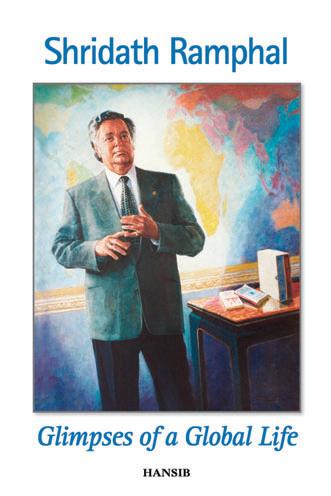
Hardback, £15.99 / US $24.00
• Paperback, £12.99 / US $20.00
FROM TOP MOUNTAIN: An Autobiography
Bishop Dr Joe Aldred
Joseph (Joe) Daniel Aldred was born in the rural district of Top Mountain located in the hills of St Catherine, Jamaica. Most of the inhabitants were poor folk who tilled the land with subsistence crops and reared domestic livestock. For those who wanted to improve their lives, the choice was to either move to the island’s capital, Kingston, or migrate overseas. Most of Joe’s immediate family chose the second option and, at various times throughout the 1950s and 1960s, they emigrated to England and the United States.
The Aldred family settled in Smethwick, near Birmingham, England and in 1968, at the age of fifteen, Joe was reunited with his parents and siblings – and introduced to the chill of a British autumn!
This is the story of one man’s journey from humble beginnings in a Jamaican countryside, through the challenges of migration and settlement in a racialised environment, to the status of a respected – sometimes controversial – community and religious leader, broadcaster, ecumenist, speaker and writer.
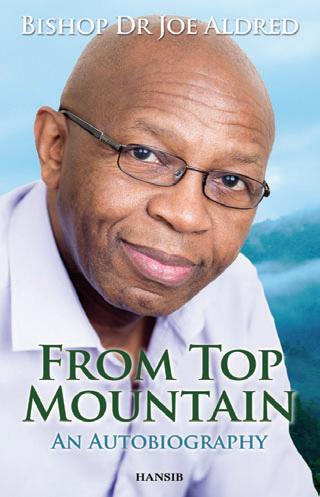
Paperback, £11.99 / US $18.00 • eBook, £5.99 / US $7.20
I WAS A SOLDIER: Survival Against the Odds

Necola Hall
Jamaican-born Necola Hall served in the British Army for more than nine years, and is a veteran of the Second Gulf War. She was turned down by the Army on two occasions, but her dogged tenacity and will to succeed eventually led to her acceptance into the Adjutant General Corps. The recollections of her experiences in the military and of her tour of duty in war-torn Iraq are inspiring.
Originally from St Thomas in Jamaica, she emigrated to the United Kingdom in 2002, aged twenty-five, in search of better opportunities and prospects. She tells of the sacrifice of leaving her new husband behind; the emotions of separation, and her joy of being reunited with him in the UK. Necola reflects on the challenges she faced growing up in Jamaica. Her family’s impoverished circumstances meant school attendance was inconsistent, and this was to negatively impact her in adulthood. Despite her setbacks, she always possessed an unflinching determination to succeed in all her endeavours. However, her early life experiences and the unrelenting challenges of military service would take their toll.
This is the story of a life-changing journey from poverty in Jamaica to the service of Queen and country.
Paperback, £11.99 / US $18.00 • eBook, £7.79 / US $9.00
THE AXE LAID TO THE ROOT: The Story of Robert Wedderburn
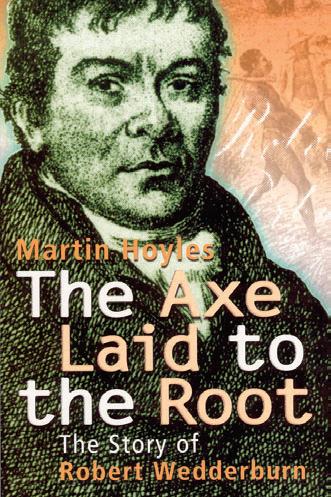
Martin Hoyles
Robert Wedderburn was one of the key campaigners against slavery at the beginning of the nineteenth century. He was born in 1762 in Jamaica of a Scottish father and a Jamaican mother. At the age of sixteen he went to sea and ended up in England, where he became a tailor and eventually joined a radical political group called the Spenceans. Wedderburn became famous for the revolutionary rhetoric with which he entertained and educated the crowds at Hopkins Street Chapel. He campaigned for equality in England, the land to be restored to the people, and freedom for the slaves in the West Indies. Much of the Black experience in Britain, however, has been hidden from history. This book will help rectify the situation in an entertaining and informative way. It tells the story of Wedderburn’s childhood in Jamaica and his experience of slavery, his conversion to Methodism in England and then his commitment to radical politics, which landed him in prison for two years. The Home Secretary called him a ‘notorious firebrand’.
Paperback, £8.99 / US $14.00
54 Hansib Review | Issue No. 1 BOOKSHELF • Biography & Memoir
GLOBAL CITIZEN: Grass Roots Activism and High Diplomacy
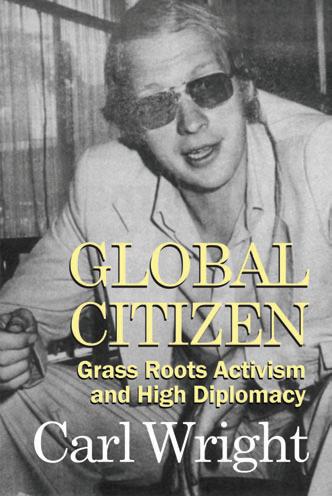
Carl Wright
Carl Wright has devoted his entire working life to global action through grass roots activism and international diplomacy. During the past fifty years he engaged with world leaders and political icons from across the globe, including Nelson Mandela, Desmond Tutu, Indira Gandhi, Julius Nyerere, Shridath Ramphal, Fidel Castro, Aung San Suu Kyi, Ban Ki-Moon, Cyril Ramaphosa, Helen Clark and Bob Hawke. In these and many other encounters, he reflects his experiences of, “What it was like to be there,” as he puts it.
Having made official visits to some 100 countries – from developed to developing nations, to fragile states and countries undergoing democratic transition – he has seen at first-hand what is required to implement good governance. These high-level missions included most of the 54 nations of the Commonwealth, along with some of the world’s least visited countries, such as Moldova, Myanmar and South Sudan. Written from the perspective of a grass roots activist, Commonwealth diplomat and local government leader, these recollections provide rare insights into the relationships between intergovernmental organisations, global associations of mayors and trade unions, and the effects of political and social advocacy. In his writing he draws extensively on his experiences of working in the Commonwealth, the United Nations and the European Union at senior level.
Perhaps most significant is his long-standing involvement with the anti-apartheid struggle, and he recalls with great sensitivity the many challenges he and others faced.
Carl Wright’s personal and candid book delivers a critical message: the need for global understanding and co-operation. With the rise of political populists, authoritarian strongmen and violent extremists, he implores us to strengthen fragile international relations and mitigate the threat of conflict which is currently real and ever-present.
Paperback, £16.99 / US $26.00 • eBook, £4.99 / US $5.99
AN ACCIDENTAL LIFE

Harold Drayton
This is a portrait of a man who played a significant role in the history of education and health in the Caribbean. Harold Drayton’s passionate and meticulous memoir offers, first, a precious account of colonial British Guiana.
Chance took him first as a teacher at the Grenada Boys Secondary School, then on a scholarship to the new University College in Jamaica. He remembers Kingston in the early 1950s, where his involvement in radical politics in Jamaica, in particular as the protégé of Richard Hart, led to his expulsion from university.
In Britain he not only completed his first degree, but went on to a doctoral thesis on cancer viruses which, in 1961, meant that he was one of only five Guianese then with a PhD.
Banned from re-entry to Jamaica, the search for work took him to the excitement of Nkrumah’s Ghana in 1961. But, by 1962, he was on his way home, invited by Cheddi Jagan, whose People’s Progressive Party he had joined in 1950, to organise a national university. The University of Guyana is essentially the fruit of his vision, although by 1964, he found himself without Jagan’s support, and after the election of Forbes Burnham facing a hostile government.
By the early 1970s, he was forced to give up both Guyana and his academic career, and moved to Barbados, where he found a new passion in public health policy. Working for the Pan American Health Organisation, and after 1990 for the University of Texas, his mark was felt in the implementation of human resources development programmes, relevant to primary health care strategies, in every country of the region.
“Harry Drayton’s memoir spans more than half a century of personal and institutional engagement with almost every territory in the Caribbean ... Whether it was the cut and thrust of university debate, or the more frightening turbulence of Guyana’s political leadership struggles of the 1960s, Drayton features as a critical witness and participant.” Professor George Lamming eBook, £9.50 / US $11.50
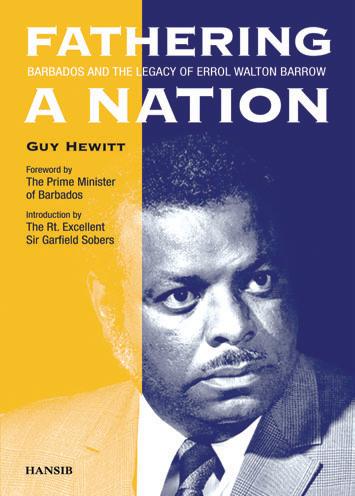
FATHERING A NATION: Barbados and the Legacy of Errol
Guy
Walton Barrow
Hewitt
Foreword by the then Prime Minister of Barbados and an Introduction by Sir Garfield Sobers
On 30 November 1966, Barbados was given focus and direction by Errol Barrow, the first Prime Minister and a National Hero. Proclaimed the ‘Father of Independence’, it was said that this close friend of the leaders of his era including Michael Manley and Pierre Trudeau, “found Barbados a collection of villages and transformed them into a proud nation.”
In the 50th year of Barbados’ Independence [2016], this publication, with contributions from national, regional and international leaders and key speeches by Barrow himself, is a tribute to this extraordinary man who gave Barbadians the ability to hold their heads high and proud in this world, as a people worthy of respect.
This is a must read for citizens of the modern Caribbean and those interested in leadership and the history, economics, politics and international relations of small states.
Hardback, £20.00 / US $30.00
THE LIVES AND WORK OF TWO INDO-TRINIDADIANS: Influences of Indentureship, Evangelisation and Education

H.
Joy Norman
From 1845 to 1917, indentured labourers from India arrived in the former British colony to address the labour shortages following the abolition of slavery in 1838. The colonial rulers were unconcerned with the welfare of, first, the enslaved Africans and, later, the indentured Indian labourers. It was, therefore, fortuitous that the Canadian Presbyterian missionaries intervened to improve the lives of, in particular, the subjugated East Indian population. This book examines the lives of two descendants of Indian indentured immigrants. Samuel Ramsaran and Leslie Sankarsingh – father-in-law and son-in-law respectively – were raised in the Christian tradition, but each made different life choices in their careers. Their work and, indeed, many of their contemporaries, was to be a significant contribution to an emerging independent nation.
Paperback, £12.99 / US $20.00
REMEMBER ME: Achievements of Mixed Race People, Past and Present
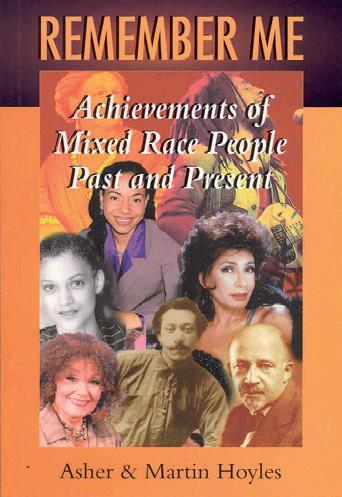
Asher & Martin Hoyles
This book contains thirty biographies of mixedrace figures from the past and the present. Historical biographies include Bob Marley, Mary Seacole, Frederick Douglass, Arthur Wharton, Ellen Craft and Samuel Coleridge-Taylor. Contemporary figures, representing achievements in politics and the arts in Britain, include Cleo Laine, Shirley Bassey, Cathy Tyson and Oona King. A detailed introduction deals with key issues relating to this important subject, such as, should we still be using the term ‘race’? Why does society see mixed-race people as Black? What is the ‘one-drop’ rule? Why is cultural heritage so important?
Paperback, £8.99 / US $14.00
55 Hansib Review | Issue No. 1 BOOKSHELF • Biography & Memoir
Books & eBooks published by Hansib Publications are available worldwide from many booksellers including: Amazon , Wordery , Kobo , World of Books , Alibris, Waterstones, Bookshop.org , Foyles and Blackwell’s
Shameful lack of recognition of the fallen Black soldiers
Brian Dyde
On 20th October 1933, a small stone monument was unveiled in Waima, a village in eastern Sierra Leone. It commemorated the British losses in a brief but bloody skirmish with French troops which had taken place there nearly forty years earlier. The combined casualties reached nearly thirty killed and as many more wounded. Among the names recorded on the simple stone column, which still stands, are those of Privates Carter, Grant, Marsden, Pickering, Skilner, Small, White and Wilkinson, and a Drummer Browne. These were all buried close to the site of the monument on Christmas Eve, 1893. Within less than six months, their graves had been obliterated and the ground dug up for cultivation. By the time the memorial was erected their remains had disappeared for ever. Apart from the manner of their deaths and the desecration of their remains, the one thing these nine had in common was that they were all Jamaicans.
Waima is about 170 miles east of Freetown, the capital of Sierra Leone, and close to the border with Guinea. It is no different from any number of small, rural communities in that part of West Africa. A hundred years ago, it was even smaller and more remote than it is today. The border between the British colony of Sierra Leone and what had recently been termed French Guinea was more or less agreed, but had still to be firmly established. The village appeared on no map of the region, as the work necessary to produce such a document had hardly begun. The inhabitants, although only too well aware of the presence and power of the British colonial administration, still recognised only tribal loyalties. But Waima was to have its day. For a few hours in December 1893, in the closing years of the ‘scramble for Africa’ – that form of collective madness which overtook Europe in the last quarter of the nineteenth century – the village was the scene of one of the international incidents which characterised the era. It involved a shooting
match, mostly in darkness, between forces representing Britain and France, lasting for no more than a couple of hours.
The British troops involved were in the vicinity of Waima for exactly the same reason as their French counterparts; to suppress an uprising among tribesmen known as Sofas. The Malinké leader of the Sofas was a passionate, proselytising Muslim named Samori, who during the previous decade had created a large Muslim enclave in the region of the Upper Niger. He and his Sofa warriors were now fighting to maintain its integrity, and to prevent it being incorporated into either Sierra Leone or French Guinea. A column of British troops occupied the village on 21st December and fortified it against attack. The following day, an approaching French column was warned of the presence of armed men; in Waima, but deliberately misled into believing they were part of Samori’s forces.
The subsequent attack by the French during the pre-dawn hours of 23rd December was then assumed by the British defenders to be a surprise raid by Sofas, and the battle was joined in mutual ignorance. The type of fire and accuracy of the shooting soon made each side aware of something odd, but by the time those in command had grasped the truth it was too late. By dawn, when the shooting ended, the defenders had three officers and fourteen men killed, and a similar number wounded. As the sun rose, a party was sent out to clear the surrounding bush, and soon discovered equal devastation among the attackers, who were now recognised as belonging to the French Army. The lieutenant who had led the attack was found with a fatal wound, from which he died within an hour. Twenty-seven of his men had been wounded and another ten killed outright.
Although the ‘Waima Incident’ caused alarm and anger in London and Paris, it was immediately recognised for what it was, an accident, and the only long-term result was a protracted contest to
56 Hansib Review | Issue No. 1
HISTORY
apportion blame and agree compensation. The legal battle rumbled on for a number of years before it was decided to refer the matter to arbitration, and was not settled until July 1902 when the Belgian Foreign Secretary found the French offer to pay slightly less than £4,000 was too small, and fixed the indemnity at £9,000.
The French troops involved belonged to a colonial regiment called the Tirailleurs sénegalais, which had been raised in 1857. They were African soldiers led by white officers seconded from regular units of the French Army. The British troops also belonged to units in which the other ranks were Black and the officers were white. A few were from the Sierra Leone Frontier Police, formed two years earlier and still far from being a fully trained and properly disciplined military body. The bulk of the defenders of Waima, though, were men who, while just as African in appearance, were not from the region or indeed any other part of the continent. They belonged to the West India Regiment, a regular unit with its own corps of (albeit always white) officers which, by this time, had seen more years of service in West Africa than any other regiment in the British Army.

Those who took part in the defence of Waima, men of the 1st Battalion, were the colonial descendants of West African slaves. Those who died did so fighting West Africans on behalf of Great Britain, the nation which had enslaved their forefathers and was now intent on colonising what they and the survivors must have considered their
ancestral homeland. The remains of the dead were ploughed into the African soil, joining the bones of the many other West Indian soldiers killed over the years throughout West Africa from the Gambia to the Niger. The little monument put up in 1933, hardly did them justice; out of the nine Jamaican names inscribed, four were misspelled and six consisted of surnames only. But by then the service of the West Indian soldiers in Sierra Leone, which had lasted for the best part of the century, was only a distant memory, and the regiment itself had gone out of existence seven years earlier.
To understand how all these things came about it is necessary to look at events which took place in the West Indies at the end of the eighteenth century. Only then can the deaths of the men it is now possible to identify correctly as Privates C. Carter, C. Grant, W. Marston, J. Pickron, S. Skinner, S. Small, M. White and J. Wilkinson, and Drummer J. Bourne be put into their true perspective.
READ MORE...
The Empty Sleeve: The Story of the West India Regiments of the British Army
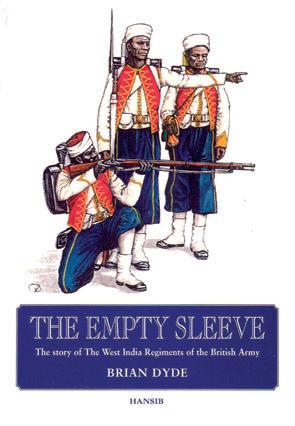 by Brian Dyde Paperback, £11.95 / US $18.00
by Brian Dyde Paperback, £11.95 / US $18.00
57 Hansib Review | Issue No. 1
HISTORY
The West India Regiment in action in Sierra Leone, 1894, depicted by W.D. Cribbs
 Ira Aldridge depicted as Aaron the Moor in ‘Titus Andronicus’ in 1852
Ira Aldridge depicted as Aaron the Moor in ‘Titus Andronicus’ in 1852
Legendary actor and valiant campaigner against slavery
Martin Hoyles
After three years of amateur dramatics, Ira Aldridge realised that there was no future for him as an actor in America, so in 1824, at the age of seventeen, he left for England.
Amazingly, in May 1825, when still only seventeen years old, Aldridge was performing as Othello at the Royalty Theatre in the east end of London. In the space of a month he played several other roles in that theatre, including that of Gambia in The Slave
By October he had moved to a larger theatre, the Royal Coburg (now the Old Vic) in south London. There he played the part of the African prince Oroonoko in The Revolt of Surinam, a dramatisation by the Irish playwright Thomas Southerne of Aphra Behn’s novel Oroonoko which she wrote in 1696. It was a story which challenged the evils of slavery and the production was a remarkable success, despite a racist review in The Times which said that “owing to the shape of his lips it is utterly impossible for him to pronounce English”!
In September of that year, Ira had met Margaret Gill, a Yorkshire woman from Northallerton. She was ten years older than him and was the daughter of a stocking weaver. They were married on 27 November at St. George’s Church in Bloomsbury, London. On the marriage certificate his name is written as Frederick William Aldridge, so it may be that Ira was originally a nickname. It was not until 1833 that his name began appearing on playbills as Ira Aldridge.
In the same year Ira played Othello again, this time at the Theatre Royal, Brighton. It was to be his most famous role and there are many pictures of him playing this part. Already, this early in his career, the review in the Brighton Gazette was complimentary, calling him “an actor of real and undoubted talent”, and he was “received with great applause.”
The summer of the following year, found Aldridge in Exeter appealing for financial help,
“both himself and his wife being in deep distress”. Yet in the same year he had his portrait painted by James Northcote, a member of the Royal Academy and one of the most famous portrait painters of the time.
The painting entitled ‘Othello, the Moor of Venice’, is on display in Manchester Art Gallery and forms the cover of this book. In February 1827, Aldridge performed in six different plays, including Othello, at the Theatre Royal, Manchester, and later in the year his portrait was exhibited at the Royal Manchester Institution. It was praised as “the best executed painting in the exhibition” and purchased. It was appropriate that the Institution bought the work, as Manchester was one of the centres of the movement to abolish slavery.
In 1827, Aldridge also received his first official recognition, from the Government of the Republic of Haiti, who honoured “the first man of colour in the theatre” with a commission in the army. This was delivered to him through the Consul in London. It was significant that this honour should come from the Black republic set up by ex-slaves, who had successfully fought for their freedom, led by Toussaint L’Ouverture. This rebellion was to be one of the main catalysts in ending slavery in the nineteenth century.
READ MORE...
Ira Aldridge: Celebrated 19th Century Actor by Martin Hoyles Paperback, £8.99 / US $14.00

59 Hansib Review | Issue No. 1
HISTORY
... when still only seventeen years old, Aldridge was performing as Othello at the Royalty Theatre in London
Disturbing insight into Black deaths in police custody
David Mayberry
On the evening of 22 April 1993, Stephen Lawrence was attacked by a group of white youths in Eltham, south-east London. Within a short time he was dead. This was followed by two failed investigations into the circumstances surrounding the Black teenager’s death and a failure to prosecute any assailant. This prompted condemnation, not only from the family, but also international statesmen, such as Nelson Mandela.
The Inquiry into the Matters Arising from the Death of Stephen Lawrence has become a cornerstone of British policing. Its verdict of institutional racism, ‘the collective failure of an organisation to provide an appropriate and professional service to people because of their colour, culture or ethnic origin’ was a damning criticism of the force. These findings generated seventy recommendations which aimed to improve the service delivered by the police. Although the Stephen Lawrence Inquiry was not established under the rubric of human rights, its recommendations should contribute to affirming the human rights obligations the police have to fulfil as a public body under the Human Rights Act.
The Inquiry was compiled against a background of issues between the police and minority ethnic groups. Tensions between Black communities and the police have been noted since the 1970s and reached their height during the Brixton Disorders of April 1981.
On paper the recommendations made by the Stephen Lawrence Inquiry would appear to provide solutions to institutional racism. However, within a year of their publication the belief had emerged that these intentions had not been translated into practice.
Problems over recruitment and training are accorded to more specific issues concerning the treatment of members of ethnic minorities by police officers. The use of stop and search powers remains contentious. However, this becomes less of a concern when one considers the more worrying
Tensions between Black communities and the police have been noted since the 1970s
problem of Black deaths in police custody. The emergence of this issue dates back to the 1970s but gathered momentum in the 1980s following the establishment of Inquest. Since the 1990s, this has been complemented by a growing body of literature produced by Inquest and other NGOs such as the Institute of Race Relations and Liberty.

At the time of the Stephen Lawrence Inquiry the Home Office had also provided data confirming Black deaths in police custody were disproportionate with respect to their representation within the population. In fact, statistics collected by Inquest have shown that Black deaths in police custody have remained a consistent problem with numbers relatively much greater than for their white counterparts. Although many of these deaths could be explained, there remains a significant minority where there have been accusations of inadequate investigation by the coroner or no explanation has been made apparent.
The problem of Black deaths in custody becomes additionally salient when one considers the Stephen Lawrence Inquiry. Although it was not investigated within a human rights framework, it made practical recommendations which aimed ‘to increase trust and confidence in policing amongst minority ethnic communities.’
READ MORE... Black Deaths in Police Custody and Human Rights: The Failure of the Stephen Lawrence Inquiry by
David Mayberry Paperback, £8.99 / US $14.00
60 Hansib Review | Issue No. 1
SOCIETY
BLACK IDENTITY IN THE 20th CENTURY: Expressions of the US and UK African Diaspora
Edited by Mark Christian
A collection of essays that break new ground by examining Black identity on both sides of the Atlantic in relation to the African Diaspora, and provides a firm collaboration between Black British and African American scholars. Too often, Black experiences have been viewed in isolation from one another.

This collection enables the reader to consider the themes relating to these two important locations. It covers a range of interdisciplinary topics including the examination of Pan-African philosophy and practice, West Africans in Britain (1900-1960), the African American political struggle covering the Civil Rights Movement and Black Nationalism; the impact of Afrocentricity in challenging Western intellectual hegemony, the Black intellectual tradition and the role of Afrocentric social work in the UK.
Written in a stimulating and accessible style, it includes contributions from relatively new voices in the field of Black Studies as well as distinguished scholars.
Paperback, £14.99 / US $24.00
PERSPECTIVES ON CARIBBEAN FOOTBALL
Edited by Christopher A.D. Charles
The people of the Caribbean are passionate about football, the ‘beautiful game’ that evokes strong emotions and fervent support. This expression of love and passion for the sport reaches its zenith every four years during the World Cup competition. However, only two Commonwealth Caribbean countries have qualified for the competition –Jamaica in 1998 and Trinidad and Tobago in 2006. Despite their qualification, these countries and others continue to struggle to reach subsequent World Cups.
This book focuses on the state of football in the Caribbean and the obstacles and opportunities that are linked to the growth of the sport. It suggests the need for a football philosophy that reflects each country’s ethos and style backed by resources and a scientific approach. It argues that these are required for Caribbean countries to play football at the highest level, as they do in the sports of netball, track and field and cricket.

Paperback, £14.99 / US $22.00
THE PEOPLE’S PROGRESSIVE PARTY OF GUYANA, 1950-1992: An Oral History
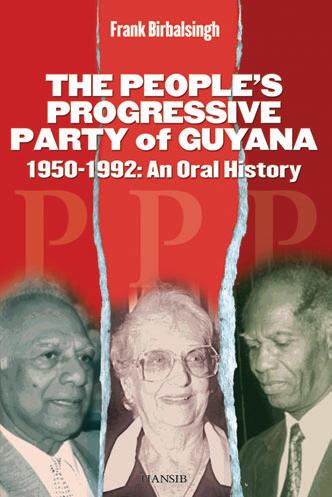
Frank Birbalsingh
This is a collection of interviews with members and opponents of the Party, and with commentators who observed the PPP closely for a long time. Interviewees include Dr Cheddi Jagan, Janet Jagan, Ashton Chase, Eusi Kwayana, Martin Carter, Eric Huntley, and commentators from the wider Caribbean such as Richard Hart, Lloyd Best, George Lamming and George Belle, as well as independent Guyanese observers such as Father Andrew Morrison, a Roman Catholic priest, Randolph George, former Anglican Bishop of Guyana, and David de Caires, a national newspaper editor. The reader gets a many-sided view of the origins, crises and personalities of the Party, and of issues of class, colour and ethnicity which, along with external Cold War factors, played a crucial role in the party’s exclusion from power for most of the second half of the twentieth century.
The fate of the PPP also vividly illustrates the shift in hegemonic power from Britain to the United States after the Second World War, especially where the Caribbean and Latin America are concerned. The informal oral medium of the interview makes for a lively text that is more willing to trade punches than staid academic writing.
Paperback, £10.99 / US $17.00
Non-Fiction
WRITING GENDER INTO THE CARIBBEAN: Selected Essays 1988 to 2020

Patricia Mohammed
The revolutionary act of imprinting gender into Caribbean thought is celebrated by Patricia Mohammed as she brings together decades worth of her critical essays that have influenced directions in feminism and in social thinking. A primary player in an ever-evolving Caribbean gender discourse for over four decades, Mohammed has produced an interdisciplinary manifesto that establishes founding moments and ongoing debates in gender and feminist theory.
The essays move between historical, biographical, popular culture and visual lens, revealing an intersectional analysis that is central to the understanding of this region and to the current global condition. Mohammed encourages us to take pause and recognise how far gender scholars and feminists have come in leaving the world more gender equitable than we found it.
Paperback, £30.00 / US $42.00
A BLACK STUDIES PRIMER: Heroes and Heroines of the African Diaspora
Keith A.P. Sandiford
This is an essential text for students and scholars of Black history and also the general reader. It features over 1,000 biographies of historical and contemporary Black figures that have made a significant contribution to the development of modern civilization. It is a celebration of the impact made by Black people in areas such as politics, engineering, agriculture, entertainment, literature, medicine, sport and philosophy, to name but a few. This easy-reference, encyclopaedic work has been compiled in order to fill the gaps in Black Studies. Both interesting and stimulating, it will inspire students and teachers alike to pursue further research, and provides the perfect insight into Black heritage and culture.

Paperback, £20.00 / US $40.00
A PEOPLE’S POLITICAL HISTORY OF GUYANA, 1838-1964
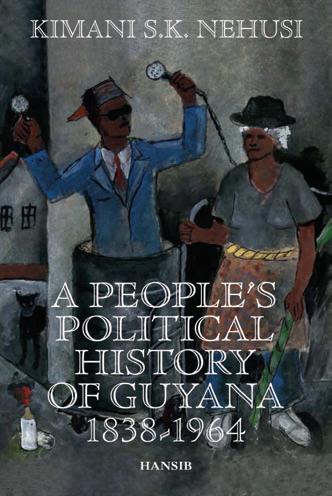
Kimani S.K. Nehusi
This work is a multi-disciplinary reconstruction, analysis and evaluation of the development, organisation and mobilisation of political consciousness in Guyana between the legal termination of physical enslavement in 1838 and the eve of independence in 1966. Guyanese transformed themselves from disempowered colonial subjects to citizens of variable levels of awareness and empowerment during those one hundred and twenty-six years of struggle.
A critical dialogue is maintained throughout the text with a multitude of sources of numerous kinds. Trajectories in economic and social development, the evolving sense of Guyanese nationality, the prevailing social and political values, attitudes and behaviours and the resulting mood of the country at critical junctures in its history, as well as the Caribbean background, are regularly updated and skilfully interwoven into the text to continuously illuminate the evolving story. The result is a single, continuous, carefully nuanced, well balanced and superbly organised narrative that presents the complex political evolution of the country in an easily intelligible and extremely readable text.
eBook, £4.99 / US $5.99
61 Hansib Review | Issue No. 1 BOOKSHELF •
Books & eBooks published by Hansib Publications are available worldwide from many booksellers including: Amazon , Wordery , Kobo , World of Books , Alibris, Waterstones, Bookshop.org , Foyles and Blackwell’s
AN ABOUNDING JOY: Essays on Sport
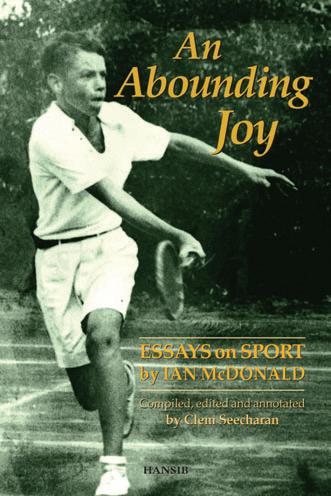
Ian McDonald. Compiled, edited and annotated by Clem Seecharan
The eminent poet, thinker and public intellectual has written more than 1,500 articles over the last four decades. Shortly after the founding of Stabroek News in Guyana in 1986, he commenced (and still does) a weekly column covering literature, politics, history, economics, philosophy and sport. Enriched by the astounding range of his reading spanning seven decades, McDonald’s elegant writing is permeated by the pursuit of beauty, a poetic sensibility, intellectual rigour and a hunger to comprehend and inform.
This book comprises 100 of his essays on sport, compiled, edited and vividly annotated by the distinguished Guyanese historian, Clem Seecharan. They cover tennis, squash, and boxing, but it is McDonald’s revered sport, cricket, that predominates in this collection. The latter encompasses the history of the game, including its place in the soul of the West Indian people, in addition to its contemporary problems and challenges. There are also beautifully crafted pieces on Frank Worrell, Joe Solomon, Clive Lloyd, Viv Richards, Brian Lara, Shiv Chanderpaul and, his greatest hero of them all, the superb Guyana and West Indies batsman, Rohan Kanhai.
These essays sparkle with the erudition and lyrical energy of Ian McDonald, but they also endeavour to provoke – challenging readers to rethink. Easily accessible, they could be read randomly because they are self-contained. This is one of the most refined collections of writing on sport published on the Caribbean and beyond. It will be intoxicating to sport fans. It will give abounding joy to anyone who reads it.
eBook, £7.99 / US $9.60
CARIBBEAN PUBLISHING IN BRITAIN: A Tribute to Arif
 Ali
Ali
Asher & Martin Hoyles
This book traces the tradition of Caribbean publishing in Britain, starting in the nineteenth century with the revolutionary Jamaican Robert Wedderburn, Celestine Edwards from Dominica and the Trinidadian barrister Henry Sylvester Williams. From the first half of the twentieth century, it records the work of the two Jamaicans Harold Moody and Marcus Garvey, and also Ras T. Makonnen from Guyana. After the Second World War, two key publishers were Claudia Jones from Trinidad and Edward Scobie from Dominica. It also records the anti-racist campaigning, community work and publishing activities of Arif Ali since his establishment of Hansib Publications in 1970.
Paperback, £9.99 / US $15.00
THE EVOLUTION OF WRITING IN ENGLISH BY AND ABOUT EAST INDIANS OF GUYANA, 1838-2018

Ameena Gafoor
This is a bibliography of creative writing, literary criticism, visual arts, social history, anthropology, law, governance, politics and journalism, with time-lines. An appreciable number of indentured Indians shipped to British West Indian plantations were literate and brought a number of sacred books among their paltry possessions. They were each versed in many dialects and kept the literate culture alive among East Indians in those oppressive times. Yet, a hundred years after the cessation of the indentureship system, no listing exists in the Caribbean region of the writings that have evolved by East Indians since their dislodgement from India. This bibliography attempts to provide a record of the evolution of such writings in English produced by those who chose to remain, as settlers in what was then British Guiana, and their descendants, up to the present generation. eBook, £5.00 / US $6.00
JOURNALISM IN RETROSPECTION: Thirty Years of Reportage

Nisar Ali Shah
As a young student in Pakistan, Nisar Ali Shah took his first steps into the world of journalism at the Civil and Military Gazette in Lahore. He later joined the Times of Karachi before moving to England in 1960. He worked in London for many years as a reader at The Times and The Sunday Times and later progressed to sub-editor. He then worked as a freelance sub-editor on many London-based publications including The Observer, The Daily Telegraph , Evening Standard, South London Press , Middle East Online , TV Times, The Voice, and the Ealing Gazette among others. Describing himself as an international journalist, his writing has appeared in many newspapers and magazines including The Daily Telegraph, The Times, Financial T imes , The Times Literary Supplement , Al-Hayat , TheNews International , Confluence magazine, Pakistan Times, Asian Times (London), The Voice (London), Eastern Eye (London), Crescent International (Toronto), West Africa Magazine and Diplomatisches Magazin (Germany).
Paperback, £14.99 / US $22.00 • eBook, £3.99 / US $4.99
INDIA: Definitions & Clarifications

Reginald Massey
Of all the world’s major countries India is surely the most misunderstood and misinterpreted. Worse still, India lovers embrace India with little or no understanding of the country.
Since 1947, ‘India Studies’ and ‘Pakistan Studies’ have become exercises in political spin and vilification. Myths and legends are held up as facts and plain prejudice is buttressed by so-called historical research. In the cause of creating a national identity and a particular vision of greatness, dangerous doctrines and unpalatable events are either ignored or nimbly explained away. Truth is being sacrificed at the altar of expediency. This wide-ranging book sweeps away several religious, cultural, social and historical cobwebs. Fashionable correctness in all its forms is firmly rejected. Many received notions are proved to be patently false and famous iconic figures are shown to have had failings that affected the country’s future. Encountering this book, therefore, may be shocking to some and uncomfort able to others. Nevertheless, all who read it will be ever impressed by its rigorous research, cogent arguments and lucid logic.
Paperback, £14.99 / US $23.00 • Hardback, £30.00 / US $45.00
RUM, RIVALRY & RESISTANCE: Fighting for the Caribbean Spirit
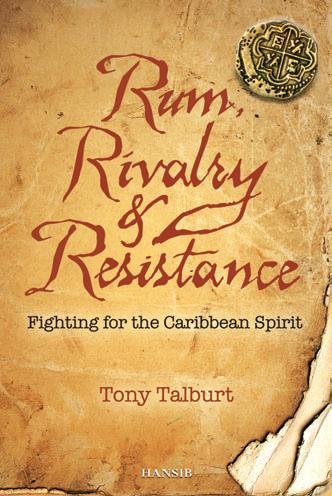
Tony Talburt
No other spirit beverage encapsulates the essence of Caribbean social and cultural atmosphere quite like rum. Indeed, Caribbean rum, like sugar, has helped to influence and shape many aspects of the region’s political, economic and social experience. While Caribbean rum is not often associated with politics, in this unique study, Dr Tony Talburt shows how this popular spirit not only has a social and cultural significance but has also been the subject of a number of political decisions by governments in the Caribbean, the USA and Europe.
Although the primary focus of this book is centred upon the period in the second half of the 20th century amid the political conflict to market Caribbean rums in the European Union, it also provides an overview of the political significance of Caribbean rum in the 18th and 19th centuries.
It concludes with a number of recommendations and strategies that may have to be explored in greater depth by Caribbean rum producers so that the sugarrum industries might survive in the 21st century.
Paperback, £12.99 / US $20.00 • eBook, £6.99 / US $8.50
62 Hansib Review | Issue No. 1 BOOKSHELF • Non-Fiction
REFLECTIONS AND OPINIONS
Désirée Patricia Bernard
This collection of speeches, by a former Judge of the Caribbean Court of Justice, provides an opportunity to benefit from the excellent intellect, research and reasoning that make the author one of the leading contemporary judicial and legal thinkers in the Caribbean. Désirée Bernard went into practice in Guyana and was elevated to the Bench, becoming the first woman to be so appointed. She rose to the post of Chief Justice, becoming the first woman in the British Commonwealth to hold that office. She later became Head of the Judiciary of Guyana when she was appointed to the post of Chancellor. Upon its inauguration, Désirée Bernard was the first and only female judge to sit on the Caribbean Court of Justice. She also examines the role of women; “the power behind the throne” in the home, the society and in the legal profession, with characteristic and incisive humour as well.
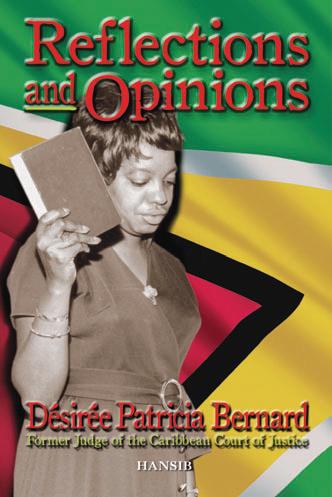
Much of the international legislation to which many of the world’s states are now signatories have benefited from the sterling contributions of Désirée Bernard.
Paperback, £14.99 / US $22.00
CRUMBLED SMALL: The Commonwealth Caribbean in World Politics
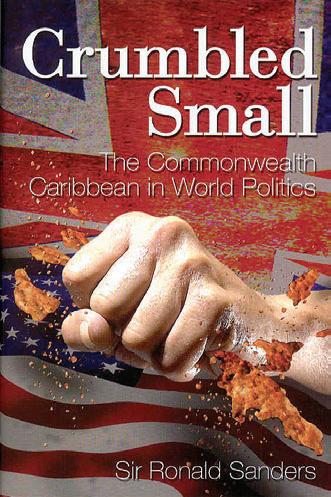
Sir Ronald Sanders
This candid account of the situation of Caribbean small states in the global community is written by a former participant in many of the deliberations of Caribbean governments. Sanders declares, “The Caribbean is in crisis.” Preferential markets for traditional Caribbean products are gone; the financial services sector is under siege; and tourism is endangered by natural disasters as well as constant leakage of its earnings from Caribbean economies. Drug trafficking has contributed significantly to rising levels of crime. The international community is not doing enough to ensure that these small states do not avoid conditions that will threaten their survival. The conclusion of this book is compelling: Governments have to face-up to the crisis, state it boldly to their people and the international community, and act resolutely to overcome it in the only way that is sensible – and that is to make their small countries bigger through arrangements of joint governance that are so patently necessary to make them more viable.
Hardback, £16.99 / US $30.00
CORRUPTION: Law, Governance and Ethics in the Commonwealth Caribbean

Derrick V. McKoy
Corruption is a political problem in developing countries. At every level, there are anecdotal stories of unjust enrichment, shady deals and downright criminality. Persons within and connected to the political process have used and abused their positions for personal gain and, ultimately, taint and undermine the governance of these societies. Corruption exists alongside an overbearing bureaucracy, complex rules and regulations and, generally, inefficiency in the delivery of service to the ordinary citizen.
This book explains why it is important to study anti-corruption regimes and sets out the existing state of knowledge on the subject. The author explores how governments are addressing the problem and includes the emerging law on the subject, including the law on bribery, misconduct in public office, judicial misconduct and contemporary anti-corruption legislation. Special consideration is given to the role of the constitutions when examining questions of the corruption of public officials.
Paperback, £15.99 / US $25.00
WEST INDIAN HISTORY AND LITERATURE
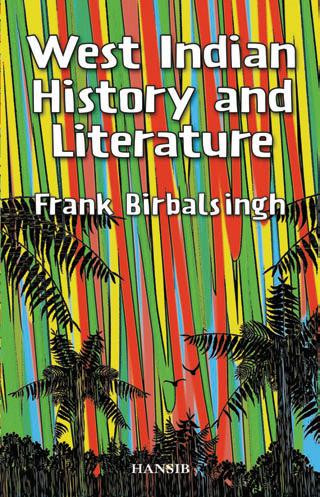
Frank Birbalsingh
This book offers a fresh view by West Indian authors themselves of a region known mainly for delights of its sun, sand and sea. The book not only examines problems of division in racial, ethnic, class and colour relations in the Anglophone Caribbean, it also reveals regional resources of imagination and creativity that have already produced, in Derek Walcott and V.S. Naipaul, two Nobel laureates in literature.
While the volume recalls rare, perhaps fo rgotten texts by authors such as Eric Walrond (Tropic Death), Claude McKay (Home to Harlem) and memoirs by Joyce Gladwell (Brown Face Big Master), Lorna Goodison (From Harvey River) and Rachel Manley (Horses in Her Hair), most chapters delve into works, mainly of fiction or poetry, from the mid-nineteenth century to the present day; and although, as elsewhere, women writers appeared long after male authors in the Caribbean, of eighty-one authors considered in the volume, twenty-nine are women.
Paperback, £12.99 / US $20.00
JAMAICANS IN NOTTINGHAM: Narratives and Reflections
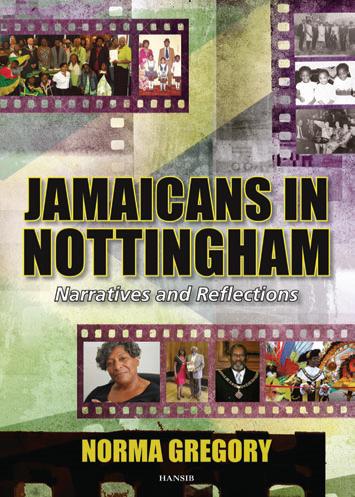
Norma Gregory
A unique collection of personal and reflective interviews and articles that presents narratives of life in Nottingham from individuals of Jamaican heritage who have contributed to the spirit and life of the city and its surrounding areas, from the 1940s to the present day.
This volume includes witness accounts relating to many significant events in the history of Nottingham that directly affected Jamaican communities: the Nottingham race riots of 1958 and 1981; the Miners’ strikes of the 1980s; the Nottingham Carnival; and the origins and development of the African Caribbean National Artistic Centre, a social and educational focal point of the Black community since the mid-1970s.
As an autobiographical and educational text, this book contributes to the growing new researches into modern, African Caribbean British social history and literary contexts. Packed with vivid photographs and newspaper cuttings, it is aimed at researchers, archivists, students and local historians, as well as the general reader.
Paperback, £14.99 / US $22.00
YEARS OF HIGH HOPES: A Portrait of British Guiana, 1952-1956, from an American family’s letters home
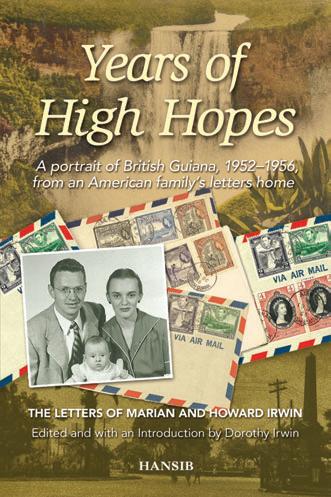
Dorothy Irwin
This startlingly detailed depiction of life in the capital city of Georgetown, British Guiana (now Guyana), sheds light on a seminal period of the colony’s push toward nationhood.
Evoking a time when letters were still the sole form of overseas communication, the book compiles the personal correspondence mailed to the United States by a young American couple during the three and a half years they made their home in Georgetown.
This unique collection of letters offers a finely textured glimpse of the capital before, during, and just after that tumultuous era, combining the everyday with such defining events as the colony’s first free election in 1953, the surprising victory of the People’s Progressive Party, the PPP ministers’ brief term in office, and their ouster with the suspension of the constitution and the arrival of British troops.
Paperback, £14.99 / US $22.00
63 Hansib Review | Issue No. 1 BOOKSHELF • Non-Fiction
Books & eBooks published by Hansib Publications are available worldwide from many booksellers including: Amazon , Wordery , Kobo , World of Books , Alibris , Waterstones , Bookshop.org , Foyles and Blackwell’s
BLACK DEATHS IN POLICE CUSTODY AND HUMAN RIGHTS: The Failure of The Stephen Lawrence Inquiry
David Mayberry
This book provides an insight into one of the most disturbing and under-reported issues to affect ethnic minorities in the UK. Through an assessment of diversity literature and interviews with police officers, it highlights the limited commitment to fulfilling Macpherson’s recommendations and the value of diversity training to operational policing. Against the backdrop of Black deaths in police custody, the book questions the extent to which ‘institutionalised racism’ has been genuinely challenged.
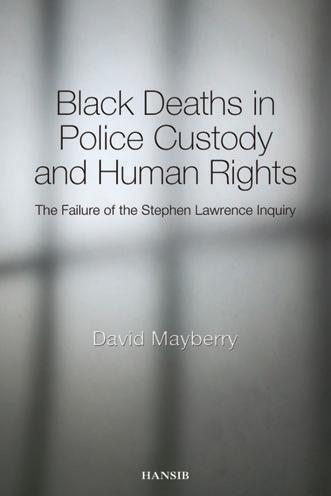
In October 2007, the Commission for Equality and Human Rights (CEHR) became operational. This development will place a growing emphasis on public bodies, such as the police, to meet their obligations as laid out in the Human Rights Act (1998). By drawing attention to a tragic and little-known problem, this book attempts to offer a genuine agenda for change.
Paperback, £8.99 / US $14.00
BLACK ROUTES: Legacy of African Diaspora
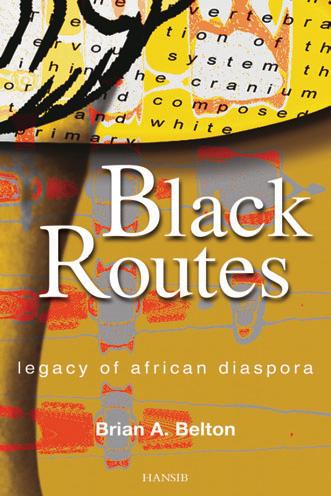
Brian A. Belton
A collection of commentaries and biographies featuring a distinguished group of Black theorists, writers and influential social revolutionaries. It encompasses some well-known and seminal figures from the African Diaspora – from both sides of the Atlantic – such as Bernie Grant and Kwame Toure. Cultural studies, poetry and political activism are represented by the likes of Stuart Hall, Gwendolyn Brooks and Ericka Huggins. The graceful yet revolutionary voices of Assata Shakur and Michael Akintaro are set alongside the promotion of creative dissidence as espoused by Nawal al-El Saadawi, the examination of Eldridge Cleaver’s ‘politics of redemption’ and Hanan Ashrawi’s ethic of Amanha (trust). Africa is represented by Peter Mokaba and Joe Slovo, and the transformation of sport to education for life is embodied in the former West Ham United footballer and American National Coach, Clive Charles. Black Routes is a celebration of these principled individuals whose commitment to the rejection of oppression deserves wider acknowledgement.
Paperback, £10.99 / US $17.00
LEADERSHIP CULTURE: What Makes or Breaks a Leader?
Mala Thapar
Leadership culture is like a multi-layered quilt spun with strands of human DNA, conditioning and habits. And this book deals with the differences, perspectives, priorities, human nature and cultures that are as variable as the cells in the human body. Many leaders, and prospective leaders, confuse personality with the job and think of their team as underlings to be dominated. This book differentiates between ‘command culture’ and ‘service culture’, ‘inclusiveness and exclusiveness’, ego, and the spirit. Conflict between positional and relational leadership is highlighted with an emphasis on how to improve relationships. Leadership is not a popularity contest.

Who is a leader? What makes or breaks a leader? What are the strengths and weaknesses? How do we build teams with trust and understanding? What does an effective leader look like and how can we cultivate one?
This book answers these and many other questions.
Paperback, £9.99 / US $15.00 • eBook, £3.99 / US $4.99
TRIUMPH FOR UNCLOS: The Guyana-Suriname Maritime Arbitration, A Compilation & Commentary

Shridath Ramphal
The maritime dispute between Guyana and Suriname (neighbours on the South American coast) which came to a head in 2000, threatened not only relations between the two countries but also the peace and stability of the wider maritime area of the Caribbean. It specifically endangered the ‘equitable and efficient’ utilisation of the resources of the Guyana-Suriname marine basin. That dispute was settled by Arbitration under the United Nations Convention on the Law of the Sea after a three-year legal process.
This book tells the story of that dispute between Britain and Holland as the metropoles of Guyana and Suriname, and then between the neighbours themselves as they became independent. It explains the process of peaceful settlement in 2007 through arbitration, and of the triumph of UNCLOS in enabling it. It is a story over four centuries from Raleigh and the ‘wild Guiana coast’ to the ascendancy of the legal regime of the seas that UNCLOS represents.
Hardback, £16.99 / US $26.00
LIMITS OF CONSUMPTION: Environmental Degradation and Ancient Wisdom
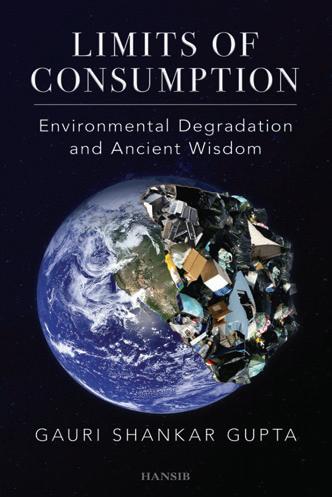
Gauri Shankar Gupta
Degradation of the environment and climate change are the most important challenges facing humanity. For thousands of years humanity lived in harmonious relationship with nature. The industrial revolution marked a major turning point in Earth’s ecology and humans’ relationship with the environment.
Today, we are in the midst of a rapid transition to a world where human populations are more crowded, more connected and more consuming, simultaneously co-habiting with unparalleled levels of poverty and hunger. With rapidly increasing consumption, the carrying capacity of the Earth has come under tremendous pressure and the transition towards sustainability remains a distant dream.
Based on comprehensive research, this book attempts to bring out the ground realities and the wisdom of our ancestors in a concise and coherent manner to mitigate this serious threat to humanity.
Paperback, £13.99 / US $21.00 • eBook £6.99 / US $8.50
SUSTAINABLE DEVELOPMENT: Thinking it Through; Making it Happen

Bhoendradatt Tewarie
This is a poignant collection of thoughts and ideas which address the formidable challenges posed by climate change and the innovations required to balance economic, human and environmental considerations. Societies unwilling or unable to adapt to meet these challenges will be left behind and perhaps face costly consequences. However, for those willing to meet them head-on, there are numerous approaches that can be taken to achieve desirable outcomes.
Written from the point of view of the Caribbean, small island developing states and the developing and emerging world, this collection focuses on solutions through human imagination, innovation, collaboration, participation and engagement. This is an important contribution to ideas, but it also suggests practical approaches to make sustainable development a reality.
Hardback, £14.99 / US $22.00
64 Hansib Review | Issue No. 1 BOOKSHELF •
Non-Fiction
Books & eBooks published by Hansib Publications are available worldwide from many booksellers including: Amazon , Wordery , Kobo , World of Books , Alibris , Waterstones , Bookshop.org , Foyles and Blackwell’s
COMMUNICATION, POWER AND CHANGE IN THE CARIBBEAN
Paloma
Mohamed
Communicative power is the ability of a communicative act to realize the intentions of its originators. Communicative acts are goal directed and rely on varying levels of collaboration in order to achieve their intended objectives. In an interesting polemic Paloma Mohamed argues that variations in communicative power are directly related to variations in other types of power in any society. Therefore, low communicative power is directly related to inequality and social and economic marginalisation.
This book takes a fascinating holistic, multi-level actor oriented approach to examining social change in two Caribbean countries. Mohamed evaluates the power of various communicative artefacts produced by various strata in those societies. She continues by investigating what constitutes this power, how it is used, how it is maintained and in whose interests. The result is a richly researched, deeply thoughtful and passionately argued case for placing communication at the core of evaluations of power and change in the world.

Paperback, £9.99 / US $18.00
A DREAM DEFERRED: Guyanese Identity and the Shadow of Colonialism

Stephen Spencer
Guyana has been shaped by the ruthless self-interest of four centuries of colonialism. After independence in 1966, it was another post-colonial republic which faded from memory in the west. The people of what was British Guiana were determined to forge their own destiny and elected Cheddi Jagan and the multi-ethnic People’s Progressive Party in 1957. This concise book examines the social, cultural and political aspects of Guyana’s recent troubled history. Divisive colonialism has created a land of contradictions; in the 1950s the promise of a more united freedom was snatched away by British colonial interests and the USA’s Cold War ambitions. Yet despite the polarised ethnic and political divisions, the Guyanese display a remarkable ability to cross boundaries and meld complex cultures. These reflections on the struggle to expel the colonial shadow are based on interviews with political figures, like Cheddi Jagan and Eusi Kwayana, and academics, as well as the insights of ordinary Guyanese people.
Paperback, £7.99 / US $12.00
THE SHAPING OF A CULTURE: Rituals and Festivals in Trinidad compared with selected counterparts in India, 1990-2014

Satnarine Balkaransingh
Trinidad and Tobago reflects the dynamic rhythm of a cosmopolitan mix of cultures where the IndoTrinidadian contribution is significant. This has its genesis in the 19th and early 20th centuries when more than 500,000 contract workers, from various regions of India, were shipped to the Caribbean to arrest the labour crisis in these plantation economies. These indentured immigrants brought their religions, languages, rituals, festivals, cultural practices and other performative traditions and planted them in its fertile soil. This book examines the changes being simultaneously experienced within these rituals and festivals in Trinidad and their counterparts in the respective geographical areas in the ancestral country, at the turn of the 21st century. It also examines the Indo-Trinidadians’ influence on other festivals which they encountered in the local landscape, and is a guide to understanding the ethos and collective consciousness of the Trinbagonian lifestyle and the IndoCaribbean diaspora, now scattered across the globe.
Paperback, £20.00 / US $30.00
THEMES IN AFRICANGUYANESE HISTORY
Editors: Winston F. McGowan, James
G. Rose, David A. Granger
This book focuses on some of the major developments in the history of the African-Guyanese from the time of their arrival in what were then the Dutch colonies of Essequibo and Berbice in the first half of the 17th century, to the present day. Most African-Guyanese today are descendants of enslaved Africans who were victims of the forced migration of millions of Africans, largely from West Africa to the Americas, from the 15th to 19th centuries. These captives were not uncivilised barbarians, as some European writers assumed and asserted. Rather, they were members of societies which had been distinguished by significant achievements. This book, therefore, seeks to deal in a balanced way with the four phases into which historians have often divided Guyanese history: pre-Emancipation; post-Emancipation; pre-Independence; and post-Independence.
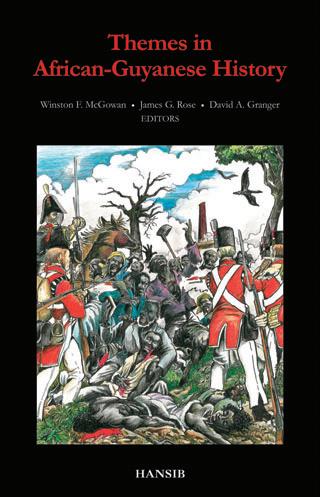

Paperback, £14.99 / US $30.00
CARIBBEAN CHALLENGES: Sir Shridath Ramphal’s Collected Counsel

Sir Shridath Ramphal
In this important book, the author states: “It is a time for reflection everywhere, but, rather specially, a time for reflection in the Caribbean; and I would urge that the backdrop of our reflection should not be the Caribbean as hapless takers of history’s ordained lot, but as makers of our own way in a less than benign world. We have been both over the millennia – takers and makers; but we have been enough of the latter to speak plausibly and proudly today of a ‘Caribbean civilisation’. As makers of our way in the world, the answers to these questions about the future should be in our keeping, however arduous the challenges to sustained advancement.”
“The various presentations by Sir Shridath Ramphal compiled in this volume not only reflect a sustained eloquence and analytical brilliance but offer important philosophical insights into a number of critical issues.” From the Foreword by Professor Denis Benn
Paperback, £11.99 / US $25.00
COLONIAL EMIGRATION FROM THE BENGAL PRESIDENCY
Basdeo Mangru
This book is an abridged version of an exhaustive and unpublished report of 1883. In late 1882, an Indian government civil servant conducted a comprehensive study of issues relating to the export of Indian labour overseas from the Presidency. This primary source, ferreted out from the Emigration Proceedings of the Government of India, is an invaluable addition to the existing literature on the Indian diaspora in the Caribbean and elsewhere. It is perhaps the definitive study of recruiting operations in the Bengal Presidency. It provides new insights into such issues as the class and character of colonial recruiters, the state of the labour market, the popularity of recruiting districts in Bihar, prejudices against emigration, depot accommodation and sanitation, family and female recruitment and the correlation between food scarcity and high migration and population pressure and unemployment.
Paperback, £9.99 / US $15.00 • eBook, £6.49 / US $8.00
65 Hansib Review | Issue No. 1 BOOKSHELF • Non-Fiction
Books & eBooks published by Hansib Publications are available worldwide from many booksellers including: Amazon , Wordery , Kobo , World of Books , Alibris, Waterstones, Bookshop.org , Foyles and Blackwell’s
THE STATE OF BLACK BRITAIN: Volume 1
Dr Aaron Haynes
First published in 1983, and updated in 1996, this book added a welcome insight into the debate about race relations in Britain from a Black perspective and shifted the agenda from that being established by the Scarman Report which was essentially about police/community relations, institutional racism and positive discrimination. Those issues were controversial then, as they are now, but the heat generated by the discussions led to more marginal programmes, much more paper policies on equal opportunities and limited real gains for ethnic minorities as a whole in Britain. There has been a tendency to concentrate on treating the symptoms rather than the causes.

This book not only provides a useful historical basis of where we were and how we got here, but contributes both to the thinking of what needs to be done and how to contribute to the making of a just society in which everyone has an equal chance to learn, live and work free from racial prejudice and discrimination and free from the fear of racial harassment and violence.
Paperback, £8.95 / US $14.00
THE STATE OF BLACK BRITAIN: Volume 2
Dr Aaron Haynes
This second volume examines the absence of policies directed at the needs of the Black communities, and argues that the Thatcher revolution, with its emphasis on individualism and its rejection of community, did not only affect white society, but had a traumatic effect on the development of the multi-coloured state of Britain.
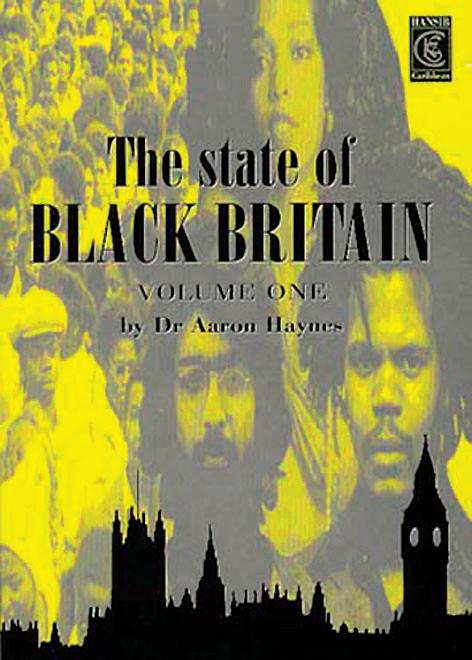
The gains of the 1970s were slowed down and in some cases put into reverse. The struggle for recognition and acceptance became more difficult and complicated. It was more than the problems of migration and racial discrimination; it was also the challenge of living in a rapidly changing society, experiencing its own crisis of identity.
Haynes argues that while racial discrimination remains an important issue for Black Britain, if the aspirations of the early settlers are to be realised, Black people will need to articulate a political agenda based on inclusive politics. He also suggests the parameters within which the debate could usefully take place and concludes with a Black agenda for the year 2000.
Paperback, £8.95 / US $14.00
THE ART OF MALI OLATUNJI: Painterly Photography from Antigua and Barbuda

Mali Olatunji and Paget Henry
This is a masterful photographic work on Antigua and Barbuda that genuinely goes beyond all earlier attempts to capture this twin-island state in images. In addition to images of home, these photographs also take account of the migratory experiences of Antiguans and Barbudans, and thus include powerful images of New York and London. Adding even more to the riches and power of this book is the engaging story that it tells about the life of the artist and his aesthetic development.
The special feature that sets Olatunji’s photographic essay apart is what he calls ‘a woodist/jumbie aesthetic’. Like surrealism, cubism and other original aesthetics, woodism is a visual summary of Olatunji’s way of looking at life. In particular, it sees the world through the wooded eyes of ‘jumbies’. In Antigua and Barbuda, and much of the Caribbean, jumbies are believed to make their post-body home in trees, and in particular silk cotton trees.
Using his striking and highly versatile woodist/jumbie aesthetic, Olatunji has used his camera to paint a well-ordered series of images which have come together to produce a breathtaking photographic essay on Antigua and Barbuda.
Paperback, £19.99 / US $30.00
INDIA IN THE CARIBBEAN
Edited by Dr David Dabydeen & Dr Brinsley Samaroo
First published in 1987 to commemorate the 150th anniversary of the arrival of Indians in the Caribbean, and reprinted in 2006, this collection of essays, poems and prose is written by leading Indian-Caribbean authors and scholars.
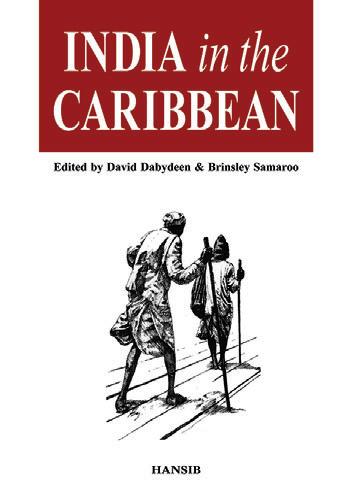
They reflect upon Indian history and culture in the Caribbean and celebrate the significant contributions made by Indians to the politics, culture and economic progress of the region.
The Indians occupied the old slave quarters and worked in the sugar plantations, inheriting many of the conditions of servitude of the previously enslaved Africans. The essays in this volume deal with their subsequent plantation experiences, their active and passive resistance to bondage and exploitation, and their efforts at self-betterment.
Indians have been able to make significant, sometimes unique, contributions at every level of Caribbean activity, in spite of the injustice and violence they endured.
Paperback, £12.99 / US $20.00
THAT TIME IN FOREIGN
Hilary Robertson-Hickling
Following a series held in 2006 at the Jamaica campus of the University of the West Indies, presenters traced their experiences as migrants from Jamaica and other Caribbean countries destined mainly for the United Kingdom, the United States of America and Canada. They recall their time abroad with the experiences of loss, joy, bereavement, success, achievement and nostalgia. For many, the word ‘foreign’ denotes opportunities for making a better life, escape from poverty, and the experience can either confirm the best and/or provide experiences of racism, disappointment, mental illness or triumph. Those who return home have had successes and failures and have been determined to return for a variety of reasons. The return and re-entry into Jamaica and the Caribbean has been easier for those who have support systems and resources in place, but more difficult for others.
This book is intended to serve as a point of discussion for Caribbean people at home and in diasporas, in academic settings and in the homes of transnational families, about an experience which is embedded in Caribbean culture past, present and future.
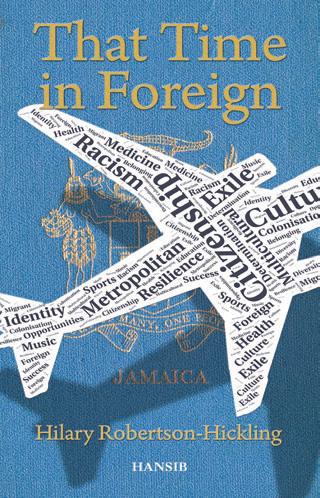
Paperback, £11.99 / US $18.00
DYSLEXIA FROM A CULTURAL PERSPECTIVE Asher & Martin Hoyles

Dyslexia is a critical issue worldwide. There is widespread ignorance about it and the consequences can be devastating. Of the 700 books on dyslexia in the British Library, apparently not one is written by a Black author and none deals with the issue of race and culture.
How is dyslexia viewed in the Black communities?
What needs to be done to raise awareness? How can dyslexics themselves become more conscious and confident?
This book makes a start by looking at statistics and famous dyslexics, such as Muhammad Ali, Whoopi Goldberg and Benjamin Zephaniah. It considers the historical background and theoretical framework, along with the definitions and examples of what dyslexics experience.
Asher Hoyles is an additional support tutor, specialising in dyslexia, at Newham Sixth Form College in east London. Martin Hoyles taught in Newham secondary schools and at the University of East London. He has written books on childhood and literacy.
Paperback, £12.99 / US $20.00
66 Hansib Review | Issue No. 1 BOOKSHELF • Non-Fiction
IMPERIAL AMBITION: Venezuela’s Threat to Guyana

This booklet is in furtherance of Guyana’s defence of its sovereignty. The mask of the conquistador is stripped off, revealing the naked visage of Venezuelan imperialism and its ambition to possess two-thirds of Guyana. This will inform the people of Guyana, the Caribbean region and the international community more widely of the shameful imperial quest that drives the Venezuelan threat to Guyana. The photograph on the front cover is of the prow of Mt. Roraima on whose historic summit the boundaries of Guyana, Venezuela and Brazil intersect. This ‘tri-junction point’ was formally marked with a monument in 1931 by an official Mixed Commission of the three countries.
Paperback, £9.99 / US $15.00 • eBook, £4.99 / US $5.99
INDIAN-CARIBBEAN TEST CRICKETERS AND THE QUEST FOR IDENTITY

Frank Birbalsingh
If West Indies Test cricket betrays divisive values of race, class and colour inherited from a colonial history of plantation slavery and indenture, it also reflects a paradoxical power of resistance to this colonial legacy. In a region well known for such divisiveness, this book considers cricket’s capacity, at least, in reducing, if not transcending, division through its focus on collective team activity in the quest for identity. This book purrs with the balanced rhythms, fluency and felicity of writing reminiscent of C.L.R. James, and is enriched by anecdote and incident from Test players or commentators, both from home and abroad.
The careers of all the Indian-Caribbean Test cricketers who represented West Indies up to the end of 2013 are chronicled. Whether it is the epochal West Indies Test victory over England at Lord’s in 1950; Ramadhin’s brilliant haul of seven wickets for 49 runs against England in 1957 at Edgbaston; Solomon’s two miraculous run-outs in 1960 against Australia that spawned the first ever tied Test; Kanhai’s ‘scorched earth’ 77 runs against England at the Oval in 1963; or Chanderpaul’s glorious century off 69 balls against Australia at Bourda in 2003, this book has what it takes to inform, entertain or enlighten both cricket fans as well as general readers.
Paperback, £11.99 / US $18.00 • eBook, £7.79 / US $9.00
FROM RANJI TO ROHAN: Cricket and Indian Identity in Colonial Guyana, 1890s-1960s

Clem Seecharan
From the late 19th century, cricket was central to being West Indian in the British West Indies. By the 1890s a small Indian middle class in British Guiana (Guyana), descendants of ‘bound coolies’ taken from India after slavery, began to advance their own credentials of belonging to the region. They sought to forge an identity inspired by Mother India’s cultural resurgence, in conjunction with the Creole sensibility of their new homeland, permeated by British imperial culture.
The mastery of the great Indian cricketer in England, Prince Ranjitsinhji ‘Ranji’ (1872-1933), who possessed the imagination of the cricketing world before the Great War, stirred Indo-Guyanese to accelerated proficiency in the game. They claimed him as their own, as an antidote to the ‘coolie’ stain. This book explores the role of cricket in shaping Indo-Guyanese identity, from Ranji’s example, through the seminal achievement of cricketers such as J.A. Veerasawmy and Chatterpaul ‘Doosha’ Persaud, to the reliable craftsmanship of Joe Solomon and the mercurial genius of Rohan Kanhai.
Paperback, £12.99 / US $20.00
THE EMPTY SLEEVE: The Story of the West India Regiments of the British Army

Brian Dyde
On 31 January 1927, the West India Regiment was disbanded after parading for the last time at Up Park Camp in Kingston, Jamaica. The ceremony marked the end of over 130 years of continuous service of West Indian troops in the British Army.
Raised in 1795 from among the slave population of the West Indies, the West India Regiments proved invaluable to the British cause during the Napoleonic Wars. From a maximum of twelve in 1800 there were never less than two such regiments in existence until 1920, serving throughout the Caribbean and in all the British West African colonies.
In tracing the fascinating, but at the same time sad and disturbing, history of these regiments, this book also examines the way in which Black soldiers, regardless of loyalty, devotion to duty and skill at arms, were never fully accepted in a white man’s army.
Paperback, £11.95 / US $18.00
LEST WE FORGET: The Experiences of World War II West Indian Ex-Service Personnel

Robert N Murray
The West Indian contribution during World War II is a much overlooked chapter in the history of the Allied war effort. Little is known about the heroics, sacrifices and the harsh treatment endured by men and women from the Caribbean who were serving what was then considered ‘the Mother Country’.
Lest We Forget tells their story through oral recollection, and highlights their contribution to that conflict and the subsequent settlement of a substantial number in the United Kingdom, a settlement which, at that time, constituted the largest migration of Caribbean people ever seen in Britain.
Predominantly serving in the Royal Air Force – from ground-crew to pilots – their tales of gallantry and tenacity over the enemy are told, alongside the challenges of cultural differences, climate and racial prejudice.
The author was born in what was then British Guiana (now Guyana) and served in the RAF during the Second World War.
Paperback, £11.95 / US $18.00
SPEECHES BY ERROL BARROW
Edited by Yussuff
Haniff
Errol Walton Barrow was among the dominant figures in the political life of Barbados for more than two decades. His contribution to the economic development of Barbados has never been in doubt, acknowledged even by his critics.
He re-shaped the economic relationships among the English-speaking Caribbean countries by leading the formation, first, of the Caribbean Free Trade Area (CARIFTA) and, later, the much broader Caribbean Community and Common Market (CARICOM).
Errol Barrow preached a gospel of economic self-reliance for the Englishspeaking Caribbean, and self-respect for the Black people in Barbados and beyond. This collection represents a portion of some his significant speeches, made over the years, and reflects the kind of philosophy and thinking that guided his actions both in and out of government.
Paperback, £12.99 / US $20.00
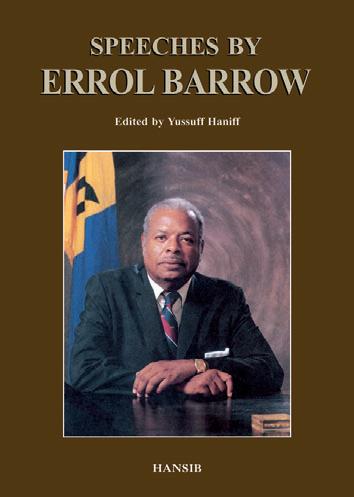
67 Hansib Review | Issue No. 1 BOOKSHELF •
Non-Fiction
Books & eBooks published by Hansib Publications are available worldwide from many booksellers including: Amazon , Wordery , Kobo , World of Books , Alibris , Waterstones , Bookshop.org , Foyles and Blackwell’s
THE IDEOLOGY OF RACISM
Samuel Kennedy Yeboah
The manifestation and symptoms of racial discrimination against Black people may differ from one country to the other, but the author demonstrates that the origin and development of this racial problem are either identical or at least very similar.
This in-depth analysis traces the history and development of Western racism, the ideology which underpins it, and the power which makes it operable. Particularly aimed at schools, colleges and universities, this important book is a major contribution to multicultural education studies.
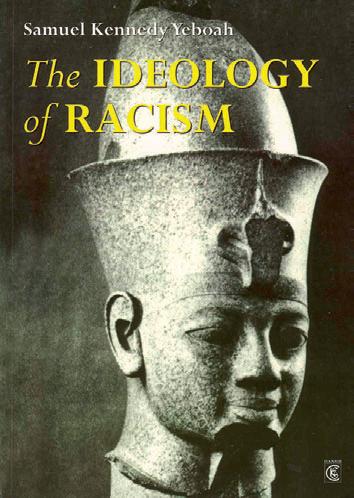
Paperback, £9.95 / US $15.00
WAKE PEOPLE WAKE: The Sacred and the Profane
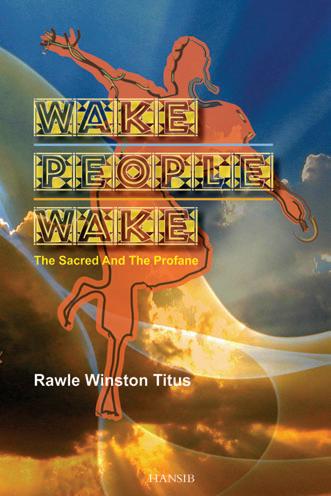
Rawle Winston Titus
This is a socio-anthropological study of the wake and waking habits that early Tobago folk practiced during their funerary rites. The study not only deals with the people and their rituals, it also presents a perspective of the way other communities and early peoples worldwide dealt with death and the hereafter. It also provides an insight into the way superstition and the supernatural constantly played a part in these customs.
Hardback, £20.00 / US $40.00 • Paperback, £14.99 / US $29.99
THE BELIEVERS: The Hidden World of West Indian Spiritualism in New York

Dr Glenville C. Ashby
This is a fascinating account of a little known and understood aspect of West Indian spiritualism. It is a unique insight into Caribbean life in New York in the midst of many faiths and religions.
The book is among the first major works whose primary focus is the lives of Caribbean peoples living in New York. A particularly important facet of the book is the discussion on the links between Haitian history, spirituality and its present social and political situation. The discussion and arguments that will be engendered will assist in lifting the veil of hypocrisy and pretence that so often attend these practices in the multi-cultural society in the Caribbean Diaspora. Paperback, £10.00 / US $17.99
FORBIDDEN FREEDOM: The Story of British Guiana Cheddi Jagan
First published in 1954, Cheddi Jagan’s ‘Story of British Guiana’ appeared in the aftermath of the military intervention that removed him from office in the democratically elected government of which he was Premier. Dr Jagan showed how this fitted in to both the colonial policy of Britain and the ‘Cold War’ spearheaded by the United States. It includes an analysis of ‘Labour and the Colonies’ and shows who are the genuine and who are the false democrats.
In making Cheddi Jagan’s Forbidden Freedom available to a new generation, Hansib has republished a classic document of anti-colonialist and anti-imperialist struggle from one of the veteran freedom fighters of the developing world. Paperback, £6.00 / US $12.00

GLIMPSES OF THE SUGAR INDUSTRY: The Art of Garnet Ifill
The sugar industry in Trinidad and Tobago no longer dominates the landscape, as it had done for more than 200 years. During this gruelling period, African and Indian labourers toiled in the production of ‘brown gold’: particularly, rum and molasses. By the middle of the 20th century, most of the elements of the industry were undergoing significant changes as modern technology replaced older, less efficient modes of production.
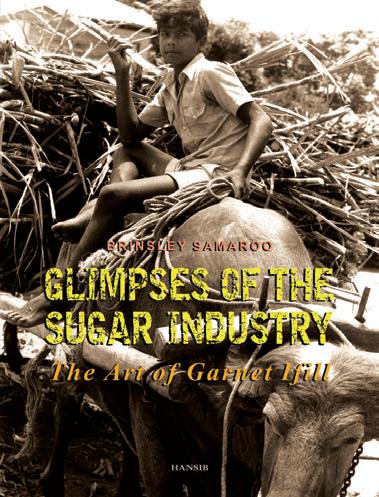
At this critical juncture of modernisation, Garnet Ifill, a young and visionary photographer, decided to capture the fading heritage. His unique collection of photographs is, therefore, a permanent reminder of a bygone era.
Garnet Ifill is one of Trinidad and Tobago’s leading photographers. In his long career, he has documented much of the history of the sugar industry. This book reflects one dimension of his prolific photography, which was envisioned as early as 1948 when Ifill’s father was employed as a machinist at a sugar factory in central Trinidad. This made a lasting impression on the young Garnet and he made an early resolve to capture these memories for posterity.
Paperback, £9.99 / US $15.00
AN INTRODUCTION TO THEATRE ARTS

Jacques Compton
Drama in schools is growing in popularity in the Commonwealth Caribbean. In addition to annual schools drama festivals in some countries, there is also the Caribbean Secondary Schools Drama Festival, which is held in a different nation every two years. The Caribbean Examinations Council (CXC) has now included Theatre Arts as one of its subjects, and an increasing number of secondary school students are now taking part. This essential resource book introduces teachers to various aspects of Theatre Arts and helps to prepare students taking the subject for CXC. It will also be useful to the many amateur theatre groups throughout the Caribbean and will assist them to better understand the intricacies of theatrical productions.
Jacques Compton was born in Saint Lucia and educated in Europe. He has lectured on Caribbean history, literature and culture at universities, colleges and schools in the United Kingdom, Europe, the Middle and Far East as well as in the Caribbean. He was manager of Radio Saint Lucia and was Director of Culture with the Government of Saint Lucia.
Paperback, £8.99 / US $14.00
A HISTORY OF THEATRE IN GUYANA, 1800-2000
Frank Thomasson
This study of 200 years of theatre in Guyana is a fascinating work which includes a compilation of related articles extracted from local journals dating back to the early 19th century. It establishes itself as a pioneering and indispensable segment in the history of Guyana and makes a case for the importance of the theatre in the diverse culture of the Guyanese people. This valuable study encompasses the performing arts which the different ethnic groups brought with them. Added to this was the beginnings of the European theatre in 19th century Georgetown which gave rise to the emergence of theatre organised by the East Indian and African Guyanese middle classes in the early 20th century, to the vibrancy of a diverse and socially committed theatre in the 1950s, leading up to Independence. The author’s extensive definition of theatre embraces not only the emergence of serious repertory theatre, but also all forms of entertainment and state-run public extravaganzas.
Paperback, £18.99 / US $29.00

68 Hansib Review | Issue No. 1 BOOKSHELF • Non-Fiction
Books & eBooks published by Hansib Publications are available worldwide from many booksellers including: Amazon , Wordery , Kobo , World of Books , Alibris , Waterstones , Bookshop.org , Foyles and Blackwell’s
THE WEST INDIANS: Portrait of a People

Jacques Compton
Before the arrival of Europeans in the West Indies in the 15th century, the region was inhabited by Amerindian peoples. But within a decade of their arrival, the Europeans had exterminated most of the indigenous peoples and had begun to replace them with enslaved Africans.
Sociologist, cultural anthropologist and historian, Gilberto Freyre stated that when the Africans arrived in the ‘New World’ they ceased being African. Instead, they were ‘West Indian Blacks’ who were slaves. They were broken and moulded into what the Europeans required. This work draws from history, anthropology, sociology, economics, literature and culture, and examines Freyre’s contention. It also looks at the forces and methods used by the Europeans in what the author calls the “de-Africanisation of the Africans” and the creation of the West Indians.
Paperback, £9.99 / US $15.00
THE RISE OF WEST INDIAN CRICKET: From Colony to Nation
Frank Birbalsingh
This essential book recalls the events, issues, attitudes and personalities that were central to the evolution of West Indian cricket. Historical reflection is combined with cricket reminiscence from the 1920s to the 1960s – the most critical years. Four decades of West Indian cricket are vividly recreated and examined with loving care and accuracy. It features the Headley Era; the post-war years; the three Ws; Ram & Val; the West Indies under Gerry Alexander; the West Indies under Frank Worrell; the West Indies under Garfield Sobers; and the writings of V.S. Naipaul, Edward Brathwaite and CLR James.

Paperback, £12.95 / US $20.00
THE USA IN SOUTH AMERICA and Other Essays

Cheddi Jagan. David Dabydeen (Ed.)
This collection of essays begins and ends with Cheddi Jagan’s revelation of political and electoral corruption in Guyana, and his moving sense of the plight of Guyanese people under the illegal regime of the PNC. The maladministration and kleptomania which Dr Jagan saw as the defining features of the PNC Government were compounded by Cold War politics. “... there is no Caribbean leader who has been so frequently cheated of office; none who has been so grossly misrepresented.” George Lamming
Paperback, £7.99 / US $12.00
THE NEW CONQUISTADORS: The Venezuelan Challenge to Guyana’s Sovereignty
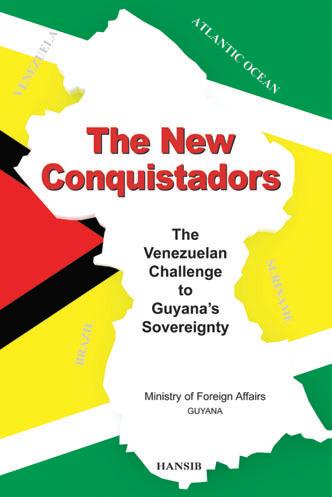
In its attempt to grab more than half of Guyana, Venezuela has relied persistently on fabrications, distortions, propaganda – and on wealth and power. This booklet (in English and Spanish) provides the facts withheld from the Venezuelan people. It reveals the reality of the Venezuelan crusade during the first fifty years of Guyana’s Independence and shows how, once victims themselves, Venezuela has become the new ‘Conquistador’ in relation to Guyana. It reveals, also, how Guyana, as one of the smallest states in South America, has turned to the United Nations system and to international justice to liberate it from the plundering stratagems of the political and military forces in Caracas.
Paperback, £10.00 / US $15.00
THINKING OUTSIDE THE BOX: On Race, Faith and Life
Bishop Dr Joe Aldred
This collection of articles, lectures, talks, sermons, homilies and presentations emerges from Joe Aldred’s work as a Black male Christian; a bishop in a Pentecostal church; an ecumenist with Churches

Together; a broadcaster; writer; public speaker; and social commentator. His personal reflections address such themes as race, the Bible, the Black Church, ecumenism, politics, multiculturalism, Christmas, money, leadership, destiny and parenting. This diverse mix of writings reflect an eclectic life and ministry in which a mixed-portfolio of roles has been an ever-present companion.
Bishop Dr Joe Aldred is an ecumenist, broadcaster, writer and speaker. He is a bishop in the Church of God of Prophecy; Secretary for Minority Ethnic Christian Affairs at Churches Together in England; a presenter on BBC Radio; and author and editor of several books and articles.
Paperback, £10.00 / US $15.00 • eBook, £6.50 / US $8.00
PROSPERO’S RETURN: Historical Essays on Race, Culture and British Society

Paul B Rich
This wide-ranging collection of essays explores the nature and meaning of race and racism in British society and the nature of British and English national identity. Using political, social and cultural sources, the author shows that many of the contemporary issues surrounding the position of Black minorities in British society have a long and complex history. Areas as diverse as anthropology, eugenics, literary history and housing are discussed. In its rich employment of historical sources, the book shows the powerful strains of racial and national political thought in Britain. At the same time, it reveals the existence of an alternative liberal and radical tradition which can be drawn upon in the construction of alternative models of national identity which include rather than marginalise minorities.
Paperback, £8.95 / US $14.00
CHEDDI JAGAN: Selected Speeches, 1992-1994
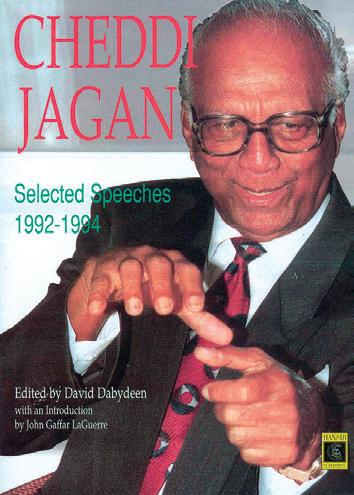
Edited
by David Dabydeen
This collection of speeches by the then President of Guyana, Dr Cheddi Jagan, addresses some of the major issues at the time. They testify to his integrity of vision and his eloquent concern for the potential as well as the plight of the Guyanese people. The crippling burden of foreign debt and its disturbing impact on human development is also highlighted.
The speeches were made at a time of ideological uncertainties, economic depression, escalating crime rates, deadly pollution and racial, ethnic and cultural conflicts. The Caribbean, of course, is not exempt from these tendencies and as the only surviving political leader of the 1950s, Jagan is well-placed to counsel the region. What emerges is Jagan’s optimism regarding the future of his country and the wider Caribbean region.
Paperback, £6.95 / US $11.00
69 Hansib Review | Issue No. 1 BOOKSHELF • Non-Fiction
Booksellers, Libraries, Schools, Colleges & Universities TRADE ENQUIRIES TURNAROUND PUBLISHER SERVICES TEL: +44 (0)208 829 3000 EMAIL: orders@turnaround-uk.com
THE WONDERFUL YOU: Find your purpose and live the life of your dreams... now

Courtney
Alexander Smith, PhD
This innovative self-help book is designed to help readers find their purpose and use their unique gifts and talents to create their ideal life. Based on practical experience, inspirational case studies, metaphysical insights and cutting-edge research, the author provides tried-and-tested guidance to help achieve extraordinary success in all areas of life.
Paperback, £10.99 / US $16.00 • eBook, £7.14 / US $8.00
CHILDREN OF WATOOKA: A Story of British Guiana
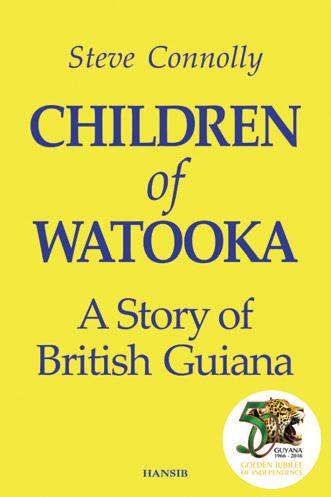
Steve Connolly
Step into an extraordinary and fascinating world of the little known but remarkable country, British Guiana (now Guyana). Learn about the country’s captivating history from a time before slavery and indenture, through to modern times.
The book is a ‘story of stories’ and features more than eighty people from five different racial backgrounds who have contributed to make this a fascinating read. The stories of Guyanese people as well as of expatriates from Britain, Canada, Holland and the U.S. are included.
The reader will also learn about the incredible and little known ties between Guyana and Canada and about the bauxite industry. Working together, the two countries produced forty per cent of the aluminium used by the Allies for aeroplane production during the Second World War.
Hardback, £18.99 / US $28.00
MANUSCRIPT SUBMISSIONS
Since the early 1980s, Hansib Publications has been helping authors, and aspiring authors, from across the Caribbean and the Caribbean diaspora in the UK and North America bring their stories to life.
A PLATFORM FOR THE UNREAD
We provide an outlet for the many voices that remain unheard and publish all genres of fiction and non-fiction, including biographies, memoirs, novels, collections of short stories, theses and poetry.
With editorial and logistical support from an experienced team, plus a range of affordable options, getting your book published has never been easier.
All manuscripts are considered, and the books we publish are available from a global network of booksellers, including Amazon.
Contact us today to discover how we can help you share your story with the world!
For all enquiries, please contact:
KANPUR TO KOLKATA: Labour Recruitment for the Sugar Colonies
Basdeo Mangru
This unique book provides for the first time a comprehensive assessment of labour recruiting operations in a catchment area from where the great majority of Caribbean East Indians originated. Besides its insightful analysis of crucial emigration issues, it highlights the grief and trauma of emigrants’ families, particularly the wives left behind in India.
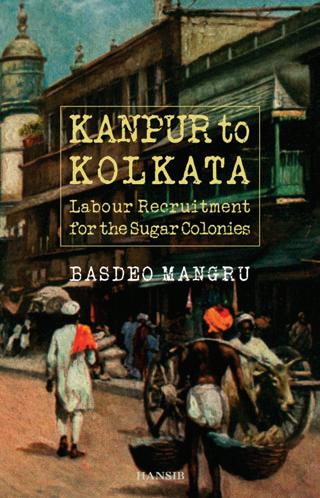
What is most interesting are the personal recollections of returnees with regard to the working and living conditions in the colonies, the uncertainties of the voyage and the socio-economic conditions in Indian villages.
Nuggets of information such as rail transportation to Kolkata, the conditions of sub-depots, the entrepreneurial spirit of emigrants and the obstructionist attitude of both families and government officials, are conspicuously absent from other published sources ... until now. This study will hopefully engage the general reader and also open up new vistas for scholarly research on unexplored issues within this intriguing field.
Paperback, £9.99 / US $15.00
GUYANA IN THE WORLD: The First of the First Fifty Years and the Predatory Challenge

Shridath Ramphal
When Guyana marked the 50th Anniversary of its Independence on 26 May 2016, its Ministry of Foreign Affairs produced an essay on Guyana’s engagement with the world – in two Parts. First, the highlights of its regional and international encounters in the earliest years of Independence; and secondly, the ‘predatory’ challenges it has faced on its borders, particularly from Venezuela. The Venezuelan challenge has preceded Independence and lasted with increasing intensity all of the last fifty years.
Sir Shridath Ramphal, who was invited to write the essay, has had experience of Guyana’s international experience over the full period of fifty years and has been an active player in both areas of internationalism – the early years and the frontier issues. The essay, published here, throws new light on several areas of the Venezuelan challenge and looks to its resolution by judicial settlement under the auspices of the United Nations Secretary General. Hardback, £10.00 / US $15.00 • eBook, £5.00 / US $5.99
FACING THE CHALLENGE: A Report of the First National All-Party Convention of Black, Asian and Ethnic Minority Councillors

This first national Convention was a key and historic event for Black, Asian and ethnic minority people in British Local Government. Held on 30th & 31st March 1995, it was attended by more than 50 per cent of all Black, Asian and ethnic minority councillors in Great Britain. Published in 1996, this report includes the findings of a national survey of councillors. The results indicate that there is a long and hard struggle ahead to share power and to influence the work of local government so that it is inclusive of Black and ethnic minority communities. There is clearly a race equality agenda for the new millennium. Through local government this agenda can bring together diverse communities to tackle discrimination and disadvantage and to influence mainstream policies. By reflecting the race dimension in all economic, social and public policy matters and by making a commitment to integrate the needs and interests of Black and ethnic minority communities, Britain will become a fairer society and a stronger community.
Paperback, £6.95 / US $10.00
70 Hansib Review | Issue No. 1 BOOKSHELF • Non-Fiction
Email: info@hansibpublications.com Tel./Text/WhatsApp:
(0)7930
956
+44
603
THE CULTURE OF MINDLESS AND MINDFULNESS

Mala Thapar
In the classroom of life this book comes as a relief for stretched nerves and tired minds. It talks about the power of being mindful and mindlessly living in a world that is constantly changing. It encourages us to take charge of our thoughts, our life and our world, and teaches us how to make mindful decisions and how to mindfully react to unforeseen circumstances. Discover how to break free from our mind-set, make conscious choices and be in control of our lives. Explore the power of mindfulness, understand its application in various forms, and find ways to reorganise your mind-set to achieve positive change. With practical advice, this book is a guide to help us take charge of our lives and live mindfully.
Paperback, £9.99 / US $15.00
THE WEB OF TRADITION: Uses of Allusion in V.S. Naipaul’s Fiction

John Thieme
This is a comprehensive study of the fiction of V.S. Naipaul including The Mystic Masseur, A House for Mr Biswas and A Bend in the River
As well as providing a natural introduction to Naipaul’s fiction, it attempts to locate the precise nature of the tradition to which Naipaul belongs through an examination of his use of literary and cultural allusion. It considers the part played in his fiction by such diverse influences as Hindu myth, classical and imperialistic writings, calypso and Hollywood cinema.
Paperback, £6.95 / US $11.00
CAPITALIST PARTY
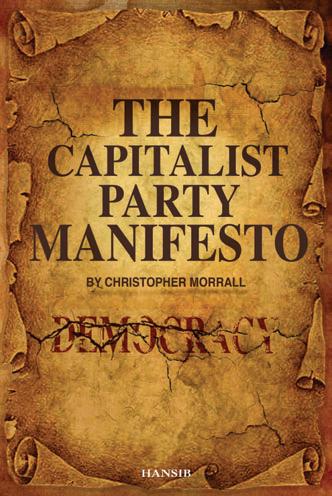
Christopher W. Morrall
This book delves into the inherent faults of the political systems and democracies around the world that are adversely affected by, among others, the prevalence of career politicians, influence from powerful pressure groups, revolving door politics and corruption. The author identifies the reasons why democracy breaks down and why it cannot succeed in its current format. He provides workable solutions and new theories, including the wider participation in politics at all levels and the revamping of the elections process.
Paperback, £8.00 / US $12.00 • eBook, £3.99 / US $4.99
GUYANA: History and Literature
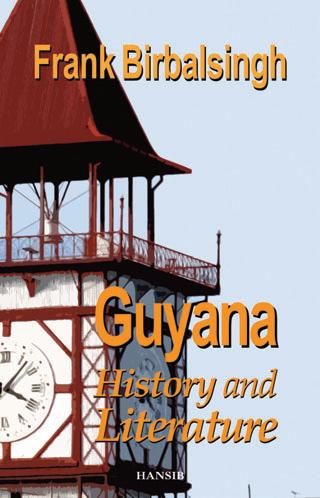
Frank Birbalsingh
An examination of Guyana’s growth as a nation over three hundred and fifty years through more than sixty works of history, biography, memoirs and fiction. It discusses politics, ethnicity, culture, African slavery, Indian indenture, and the fortunes of the two best known Guyanese politicians – Dr Cheddi Jagan and Forbes Burnham. The book offers the variety and scope of an anthology, perceptions and insights of a literary critic, elegance and style of fine writing, and the thrill of fresh revelation and discovery. From travelogues to books, this volume encompasses wide facets of Guyanese experience.
Paperback, £11.99 / US $18.00
WHAT BEING BLACK IS AND WHAT BEING BLACK ISN’T
Jacob Whittingham and Biscuit
Barack Obama was once the most powerful man in the world, and some people in the media industry refer to Oprah as the most powerful woman in the world, so for the first time, being Black and successful isn’t just about how well you can dance, sing or run.
From Zadie Smith to Lewis Hamilton, and Tiger Woods to Kanya King, Black people are succeeding in areas that the world never expected. Yet there’s a flipside to all this: around 70 per cent of teenagers murdered in London are Black; half of all Black families are headed by a single parent; and 12 per cent of the UK prison population is Black.
This book is a bold, fresh and honest approach to the problems that exist inside the Black community right now. While we might not like to admit it, there are problems. From the amusing to the violent, and from the silly to the painful, this book does what so many people can’t seem to get right – it defines what being Black is, and what being Black isn’t.

Paperback, £9.99 / US $15.00 • £6.49 / US $8.00
INDIA: A Wealth of Diversity
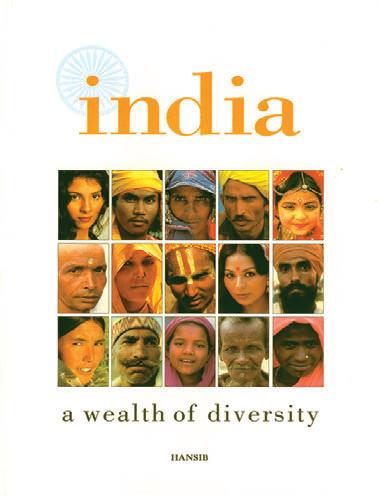
Home to more than 1.3 billion people and more than 1,600 languages, India is as large as Europe, yet more diverse. It is also the world’s largest and most populous parliamentary democracy. W ith its spectacular array of cultures, of nearly every creed and colour, India’s civilisation is more than five thousand years old. In most of its villages, life has remained unchanged for hundreds of years. But India is also where 21st century technology and centuries-old traditions stand side-by-side.
India also experiences every type of climate and landscape, from snow-capped mountains to tropical beaches, and lush rainforests to arid plains. This book features, among others, the caste system, cuisine, the sari, sport, music and marriage. All the states are individually featured plus chapters on the tribal peoples of India, Gandhi, the Nehrus, and Independence, to name just a few. Comprising more than two hundred photographic images, this spectacular book celebrates the cultures, religions, customs and timeless heritage of one of the world’s most diverse nations.
Hardback, £29.99 / US $45.00
BIBLIOGRAPHY OF WEST INDIAN CHURCH HISTORY

Compiled by Rev. Arthur Dayfoot and Rev. Roscoe Pierson
This book offers a comprehensive annotated guide to books and other source materials for the study of Christianity in the English-speaking Caribbean. It also includes many similar items relating to neighbouring territories – Spanish, Dutch and French – and to other religious bodies in the Caribbean area. This is a companion volume to Dr Dayfoot’s history, The Shaping of the West Indian Church, 1492-1962. It also includes materials concerning the forty years since 1962. The bibliography has been compiled over many years in co-operation between two scholars who served churches in the Caribbean. Many others have contributed information and advice. “Not only does this work cover the five hundred years of Christian activity in the West Indies, but it is arranged in a manner which should be of considerable help to researchers.” Rev. Canon Noel Titus, Codrington College
Hardback, £20.00 / US $30.00 • Paperback, £14.99 / US $23.00
71 Hansib Review | Issue No. 1 BOOKSHELF • Non-Fiction
THE
MANIFESTO: Defects within our democracy and what we can do to change it!
Books & eBooks published by Hansib Publications are available worldwide from many booksellers including: Amazon , Wordery , Kobo , World of Books , Alibris, Waterstones, Bookshop.org , Foyles and Blackwell’s
Levy’s brilliantly evocative portrait of post-war England
Frank Birbalsingh
If Andrea Levy’s earlier stories in Light in the House Burnin’ (1994), and novels such as Never Far From Nowhere (1996), and Fruit of the Lemon (1999) created scarcely a ripple on the literary scene, her fourth novel Small Island (2004) was greeted by a splash of acclaim, with four distinguished literary awards, the Orange Prize for fiction, the Whitbread novel award and Whitbread Book of the Year, and the 2005 Commonwealth Writers’ Prize for best book.
Levy was born in England of Jamaican parents and her story in Small Island is narrated by four main characters, Gilbert and Hortense, Jamaican immigrants, no doubt based on the author’s parents, and Bernard and Queenie, an English couple. The action takes place during two periods of time, “1948,” the year when Gilbert and Hortense arrive as immigrants in London, and “Before,” the period before 1948 which fills in the early family history of both sets of narrators. Despite shifts between interchanging periods of time or transitions from one narrator to the other, there are no gaps: everything makes for a coherent whole.
The title of the novel tends to suggest that Small Island is concerned mainly with the fate of Jamaicans, or West Indians generally, many of whom flocked to England from small, Caribbean islands shortly after World War Two. Gilbert, for instance, had already lived briefly in England while serving in the Royal Air Force (RAF) during the war; but after going back home to Jamaica, he returns to England on the ship Empire Windrush whose arrival, on 20th May, 1948, marks the beginning of the postwar inrush of West Indian immigrants to Britain.
Levy’s portrait of West Indians in England, in 1948, is backed up by solid detail. Deluded by misguided, colonial expectations, these West Indian immigrants come up against deep-seated racial prejudices of a homegrown English population; and Gilbert, Hortense, and other West Indians suffer bitterly in their attempts to find housing or employment in London. Hortense’s
Small Island establishes roots of the cultural mixing out of which Black British society would later spring
colonial innocence, in particular, is touching as a West Indian who harbours her own brown, middle class prejudices against her fellow Black Jamaicans, while betraying an obsequious and unrealistic over-evaluation of English culture and manners. One can imagine the calamity of her shock and pain upon discovering that her highly prized qualifications, proud badge of Jamaican, middle class respectability as a teacher, are blankly rejected in England, and contemptuously ignored by seemingly racist or prejudiced education authorities in London!
Small Island seems entirely reliable so far as its social portrait goes, for instance, of restrictive English provincialism and quaint practices and rituals such as the courtship of Bernard and Queenie. But the author captures an international flavour of attitudes toward race by also including episodes of racial discrimination by white American soldiers against fellow Black Americans serving in the US army, in England, during World War Two. In addition, we get a rather lengthy account of Bernard’s military service in India, which helps to enlarge the focus of Small Island from a social portrait merely of England to one of wider impact of the war on Britain and its far-flung empire.
According to Bernard: “The war was fought so people might live amongst their own kind. Quite simple. Everyone had a place, England for the English and the West Indies for the coloured people” (p. 388). The trouble is that such pious, hypocritical and unrealistic fantasies are shattered by the end of the novel, when Bernard’s marriage to Queenie is shaken to its foundations, and Gilbert and Hortense are asked to bring up Queenie’s baby, conceived while Bernard is away in India. This intermingling of fortunes of the main characters with events of the war is foreshadowed
72 Hansib Review | Issue No. 1
THE WRITTEN
WORD
by a strategically placed Prologue that reflects on the wider impact of the war on ordinary people in England, and the empire as a whole. Although the link between characters and the wider impact of the war is eventually vindicated, its effect in clinching both a dramatic climax and a coherent plot, may come later than some readers may wish.
In spite of this, Small Island offers a brilliantly evocative portrait of post-war England, in early days of the large-scale arrival of West Indian immigrants. Levy’s research cannot be praised enough for its varied details, accurate report on the military and social history of her parents’ generation, and its deep understanding of ethnic issues, then only beginning to be discussed or even recognised. She should also be praised for her intuitive, subtle and flawless grasp of traits of English culture, speech and personality. Bernard’s
racism, for example, is totally plausible, perhaps because it appears, side by side, with his wife’s more tolerant attitude toward Black West Indians.
Levy’s command of Jamaican speech and manners is inspired, even if Hortense’s mistaken, school teacher’s sense of colonial propriety, Jamaican style, is slightly exaggerated when she uses words like “perchance” or “agape” as part of her everyday speech; for in vocabulary, attitudes, gestures and manners, Small Island establishes roots of the cultural mixing out of which Black British society would later spring, and, more than anything else, explains the extraordinary success of Small Island , in which West Indian protagonists appear as precursors to characters who would later be seen, in full splendour, in the work of Samuel Selvon, the first true master of Black British fiction.
Colonial oppression and the rot that remains with us
Born in St Lucia in 1930, poet, painter, playwright and essayist, Derek Walcott, who won the Nobel prize for literature in 1992, has spent a lifetime excoriating evils of empire; for example, in poems like “Ruins of a Great House” where the persona speaks of “the abuse / of ignorance by Bible and by sword,” or yet again of “The rot [which] remains with us, the men are gone,” until, at last, he yields, if not to forgiveness, a feeling of almost contented nostalgia. The evil of colonial oppression can never be healed, nor its abuse atoned for; but now, in White Egrets, in a poem aptly named ‘The Lost Empire’, it is contemplated without rancour: “And then there was no more Empire all of a sudden / Its victories were air, its dominions dirt: / Burma, Canada, Egypt, Africa, India, the Sudan.”
Walcott brings himself to recall, with something like admiring wonder, the panoply and pomp of passing, imperial glory: “there is no greater theme / than this chasm-deep surrendering of power / the whited eyes and robes of surrendering hordes, / red tunics, and the great names Sind, Turkistan, Cawnpore,” and if we hear a hint of nostalgia, or sense a tone of sadness in the stately beat of effortless iambic pentameter, it registers the poet’s calm acceptance of historical fact, without approval or regret.
In his title poem ‘White Egrets’, the birds remind Walcott’s persona that: “The perpetual ideal is astonishment,” as they shoot into heaven: “circling above praise or blame” with “high indifference”. Walcott no doubt remembers the
1970s, when activists divided the province of Caribbean poetry between him and their alleged champion Edward Kamau Brathwaite, and denounced him (Walcott) as an Uncle Tom for circling above praise or blame with high indifference, because he acknowledged the mixture of multiculturalism emanating out of imperial history, instead of adopting a more militant, Black stance of asserting African values as prime in the Caribbean. Not that Brathwaite sanctioned Afro-centricity either, then or now.
The centrepiece of Walcott’s volume is his eight-stanza title poem, focusing on his principal theme, at the age of eighty-three: the inevitability, of death, and expectation of: “that peace / beyond desires and beyond regrets, / at which I may arrive eventually”. In the mind of the persona, we do not miss the pun on ‘egrets’ and ‘regrets’ when the persona accepts that the birds, with all their colour and elegance, will outlive him: “They [the egrets] shall / be there after my shadow passes with all its sins / into a green thicket of oblivion”.
READ MORE...
West Indian History and Literature
by Frank Birbalsingh Paperback, £12.99 / US $20.00

73 Hansib Review | Issue No. 1 THE WRITTEN WORD
African language and the expression of nationalism
Keith A.P. Sandiford
One of the sociological marvels of the twentieth century was the emergence of vigorous and delightful Black literature in many quarters of the globe. Writers of African descent made an indelible mark in this field, often showing a versatility lacking among their white counterparts. While most white writers were able to articulate ideas only in their [own language], many Black authors succeeded in writing brilliantly both in the language of their homeland and in that of former European colonisers.
For many years, the language and forms of African literature depended almost entirely upon European grammar and European models. Thus, West Africans, led by such great authors as Chinua Achebe, Cyprian Ekwensi and Wole Soyinka, produced an abundance of excellent English literature, while the Black intelligentsia in Gabon, Senegal and elsewhere wrote beautiful French.
Initially, there were two deterrents to the production of African literature. In the first place, the tradition on that continent had been an oral rather than a literary one. Fables, legends and folk songs had been passed verbally from generation to generation. History, jurisprudence, philosophy and theology had all been stored in the collective memory in this fashion. Secondly, once colonised, the [indigenous peoples] were effectively discouraged from speaking or writing in their [own languages]. All across Africa, a particular European language, depending upon the imperial centre, became the only official medium of communication. Africans had perforce to learn Dutch, English, French, German, Italian, Portuguese and Spanish.
The Europeans, in typically snobbish and racist fashion, assumed that Africans lacked distinct languages and were capable of using only dialects. The imperialists quickly came to the conclusion that there were sharp distinctions to
be drawn between a perfect language and an imperfect dialect, especially since the latter was used only in verbal communication and was unintelligible to the invaders. They insisted that the African (and other) dialects lacked the four basics of any language: phonology, vocabulary, syntax and semantic meaning. Such nonsense prevailed as linguistic orthodoxy until the decolonisation of Africa in the decades immediately following World War II.
Trained in missionary schools at home, and later at universities in Europe, African scholars began to write in every conceivable discipline and established newspapers in almost every urban centre on their continent. Journalism encouraged the spread of European literacy among the colonised, who shortly recognised that fluency in the conqueror’s language was an avenue to social acceptance and economic mobility. Long after the Europeans had withdrawn from Africa, however, the [indigenous peoples] continued to speak and write in the medium encouraged by the former imperialists. Nigeria, for instance, produced an incredible sequence of able writers of English during the second half of the twentieth century, and Senegal (led by Léopold Sédar Senghor and the famous Diop brothers) established an enviable reputation for magnificent French verse as well as prose.
During the age of independence, African scholars and linguists set out to provide their [languages] with basic texts formalising their syntax and grammar. Such languages as Amharic, Comorian, Ewe, Fante, Fulani, Gaa, Malagasy, Ndebele, Pedi (Northern Sotho), Rundi, Kinyarwanda, Sango, Shona, Somali, Sotho, Swahili, Swazi, Tsonga, Tswana (Western Sotho), Venda, Xhosa, Yoruba and Zulu, all previously stigmatised as dialects, gradually gained a grudging promotion. African intellectuals also began to serve as translators, rendering into African languages such western classics as the
74 Hansib Review | Issue No. 1
THE WRITTEN
WORD
Bible and the works of Shakespeare. African politicians, especially in Kenya, Tanzania and the Democratic Republic of Congo, began to promote local language as an essential feature of African nationalism. Swahili, for instance, was declared one of the official languages of Kenya during the 1970s, the same decade in which Mobutu Sese Seko was doing his utmost to de-Europeanise former Zaire completely. Swahili has since become the national language of Kenya and Tanzania as well. Comorian is used as the national language in Comoros, while Sango prevails in the Central African Republic, Randi in Burundi, Kinyarwanda in Rwanda, Sotho in Lesotho, and Tswana in Botswana. Since 1990, too, several of the Bantu languages have become acceptable throughout South Africa.
WOLE SOYINKA
The first African writer to win the coveted Nobel Prize for Literature was the Nigerian playwright and poet, Akinwande Oluwole Soyinka, who was honoured with this distinction in 1986. The son of a school inspector, he was born near Abeokuta, in south-western Nigeria, in 1934. He attended local schools and the Government College at Ibadan, before completing his education at Ibadan University in Nigeria and Leeds University in England. It was during his stay in the United Kingdom that Soyinka established his reputation as a most promising dramatist. His early plays were so successful that he was commissioned to write a serious drama to celebrate Nigeria’s achievement of political independence in 1960. The result was the production in that same year of The Dance of the Forest. Returning to Nigeria, Soyinka served for a while as head of the English department at Lagos University and became research professor of drama at the University of Ife in 1972. But his poetry, novels and plays were all characterised by political satire and often resulted in strained relations between himself and Nigeria’s political leaders. Soyinka was actually imprisoned during 1967-69 for his criticism of the government’s corruption.
As a poet, Soyinka is chiefly remembered for his Idanre and Other Poems (1965) and Poems from Prison (1969). His novels include The Interpreters (1965), The Forest of a Thousand Daemons (1968), and Season of Anomy (1973). He has also written several critical commentaries on African literature and theatre.
Soyinka is one of the finest of all African authors and arguably Africa’s most accomplished playwright.
LÉOPOLD SÉDAR SENGHOR
Léopold Sédar Senghor is by far the most prominent figure in the history of modern Senegal. A brilliant scholar and successful politician, he led Senegal to its independence from France in 1960 and remained its revered president for twenty years. The son of a prosperous merchant, he was born in 1906 at Joal and educated at the Ngasobil Catholic mission and at Dakar before completing his studies in Paris. He was the first Black student to earn the equivalent of an MA from the Sorbonne in 1933 and the equivalent of a PhD in 1934. While in France, Senghor helped to found the Association des Étudiants Ouest-Africains From 1935 to 1938, he taught Greek and Latin at the Lycée Descartes and then served as an officer in the French Army during World War II. He founded a new party, the Bloc Démocratique Sénégalais (BDS) in 1948 and was elected a deputy of the French National Assembly for Senegal from 1946 to 1958. Senghor was appointed to some important parliamentary and administrative posts in France and Senegal during those years and became president of the short-lived Mali Federation in 1959. One of the most highly respected among the African Francophone authors, he continued to produce excellent poetry and prose even during his years as head of state after the proclamation of Senegal’s independence. He did his best to gain recognition for Black writers and artists and, along with Aimé Césaire and Léon Damas of the French West Indies, did most to create a positive image of ‘negritude’ in the inter-war years. These three outstanding scholars were the writers who first popularised the notion which, in English, came to be translated as ‘Black is Beautiful’. Among his numerous awards, honours and distinctions, Senghor was received into the French Academy in 1984 to crown his brilliant literary career. He was the first Black person to be thus honoured. He resigned from the presidency of Senegal in 1980 but remained a force in West African politics for some years afterwards.
READ MORE...
A Black Studies Primer: Heroes and Heroines of the African Diaspora by Keith
 A.P. Sandiford Paperback, £20.00 / US $40.00
A.P. Sandiford Paperback, £20.00 / US $40.00
75 Hansib Review | Issue No. 1
THE WRITTEN WORD
Ring the bell
Brenda Lee Browne
By the time Dante comes down for breakfast the next morning, his mother has prepared thick, creamy porridge with scrambled eggs and toast to follow.
“You should open a café, you’d make a fortune!”
His mum laughs, and Dante can see how lovely she is: big brown eyes, even teeth and lips. Full lips, just like his. People often say that when he smiles he becomes the image of his mother and that this will make him lucky.
Dante hugs his mum, and inhales her powder, sweat and frying scent. He holds her until the boy in him relaxes and the man in him becomes grounded, and she does not push him away.
He sits down to breakfast and they fall into a conversation about her day ahead. She does not ask about the radio show, like it will jinx the whole experience. Dante glances at the clock on the kitchen wall and sees that it’s only 8 o’clock – only half an hour has passed since he sat down.
By 8:50 he is at the barber’s, sitting and waiting his turn, rehearsing his lyrics in his mind. He picks up a newspaper and begins incorporating the headlines into his repertoire.
When the barber’s sheers stop, it is Dante’s cue to ease into the chair. He says nothing; Raz has been his barber for over two years and he knows that Dante likes a number ‘2’ with an outlined hair line, trimmed side burns, goatee and pencil thin moustache.
Next stop Sully’s Menswear – he needed a new Italian top and slacks, even though he would not be seen by the listeners.
Passions Shoe shop has fine Italian shoes made from the softest and most exotic skins from crocodile to ostrich. He tries on several before he settles on a pair of snakeskin with a delicate gold chain across the front. They were easy and stylish – he hates anything too flashy or loud.
Since the night in the cemetery he has stayed away from Brews and weed, and there is enough
change in his pockets and on the dresser to buy his mum a box of her favourite chocolates, and a few treats for Micah from the corner shop.
No one is home. Dante leaves the chocolates on the kitchen table, takes a pack of biscuits from the bread bin, heads to the living room and watches children’s programs until his eyes decide that he needs a rest.
He does not dream. No sound, just a comfortable feeling, and that is how the rest of the day feels, even when helping his mum unpack her shopping and playing with Micah. Conversations flow from one topic to another, a little teasing, a little disagreement, yet everything connects like an easy reggae rhythm and nothing disturbs his flow.
He is grateful that his mother does not mention whether or not she heard him leave, or what his father wanted. They move around each other allowing the secret to shield them from saying out loud what needs to be acknowledged.
His evening preparations began with his hot bath regime – scrubbing, soaking, inspecting and slathering every inch of his body in a thick, cold cream.
He inspects his face – not a mark or spots. The girls love his smooth skin. His secret: baby soap and Vaseline. This is a trick taught to him by his grandmother and followed from the age of seven, and he has never deviated from this. Other things like “mind your lesson” and “go to church” had long been confined to the ether of his mind, however, the baby soft skin – that was a treasure.
Dante dresses slowly, careful not to crease anything. One more check in the mirror and the final touch – a splash of cologne.
His mother is sitting in the front room watching TV with the box of chocolates on her lap, Micah curled up next to her. They both look up as he stands in the doorway.” You getting married? You smell sweet like a bride.” His mother’s standard phrase every time he went out.
76 Hansib Review | Issue No. 1
FICTION
Dante smiles. He loves when his mother is laughing and teasing him. He walks over to his mum and stands in front of her, turning left and then right until she shoos him away. He picks up Micah, careful not to let her crease his clothes. She squirms, giggling, and Dante gives her a quick hug.
“Daddy nice!”
“Thanks girls, daddy gonna reach for the stars tonight.”
“I’m so proud of you.”
Those words reach him like a whisper. He follows the sound. His eyes rest on his mother, who is studiously watching the TV. He puts Micah down, bends and plants a kiss on the top of his mother’s head.
The guys all stand in the foyer of one of the most famous radio stations in the UK, all dressed in their finest – Darcus and Vince in dark suits and silk shirts, with sovereign rings and double chaps gleaming. The receptionist openly stares at them, trying to figure out if they are famous. They do not acknowledge her, nor do they feel out of place.
“Dis is it, one time, one chance, they go hear us in London, back ah yard, we ah go large.” And on and on Darcus rambles, his sentences getting shorter and shorter the more hyped he becomes. Vince nods. Dante stands still, feeling the lyrics move through him.
“D, D look at me, your lyrics will either make or break us; seen?”
Dante nods, but won’t let Darcus’ words spoil his rhythm – there is a tingling that starts at the tip of his fingertips that led to a sensation in the pit of his stomach. Then comes the call.
Sixty minutes later they were back in the same foyer, except this time Dante is doing all the talking.
“Jamaica, London – we bus dem – we gone clear, did you hear Rodigan? Did you hear the callers? And we mash up every riddim. No beanie could ah make me feel so good, man. Man, that
was solid. How many riddims did we ride, three, four, ten? I don’t know where dem lyrics come from; everything just come together, like rice and peas on a Sunday afternoon.”
He laughs and turns to see why there is no other sound – Darcus is looking at him like he has stolen the jam from the middle of the doughnut.
“What’s up?”
“Whose sound system is this?” This time Darcus’ voice has a slight edge.
“Yours D, everyone knows that!”
“So why you chat so much?”
“Wha?”
“You heard me; act like you is the only one who can chat to the mic. You wanna take over my sound? You wanna pay me back every penny I give you to blow on weed and Brew, ya wotless youth.”
It is the force of his words and not what he actually says that blows through Dante’s mind. He looks past Darcus at the well lit tower blocks, whose brightness appear to be mocking him. He glances at Vince. He actually looks afraid.
Dante’s fingers flex as he feels the joy slipping away. He needs a spliff, a big one. He needs Del and he really wants peace – he needs to walk, just walk away.
He turns his back on Darcus and heads towards the door, head held high and with a positive bounce. He feels a hand on his shoulder just as he touches the door, and turns to see a half smiling Darcus.
“No need to walk, we came together, we leave together.”
Dante shrugs and the three men leave. Just as they reach Darcus’ car, he feels a blow between his shoulder blades – his face hits the pavement. Darcus bends down and whispers, “Nobody takes this from me, nobody. The street is where you belong.”
He blacks out. When he comes to, there is an old lady whose face is filled with horror, a look mirrored by her ratty dog. Dante wants to laugh, and he thinks he is.
READ MORE... London Rocks
 by Brenda Lee Browne Paperback, £7.99 / US $12.00
by Brenda Lee Browne Paperback, £7.99 / US $12.00
77 Hansib Review | Issue No. 1 FICTION
He inspects his face – not a mark or spots. The girls love his smooth skin. His secret: baby soap and Vaseline. This is a trick taught to him by his grandmother and followed from the age of seven, and he has never deviated from this.


78 Hansib Review | Issue No. 1
The Legend of Jhon Saroppa
Willi Chen
Granny Guiseppa waddled out of a corner of her dingy shack, her head covered with an aureole of wispy grey locks. She handed Jhon, her grandson, two pastelles and a hunk of roast bake, his passport and his alpargatas (espadrilles). She clasped his hands and buried her head in his chest, then pecked him on his cheek. Jhon Saroppa tore himself away and stumbled into the night. At the docks he ran up the wooden gangway and showed the captain his papers.
The Amoureuse unfolded its sails and gently floated out of the harbour like a huge white moth. Its cargo of arrowroot, sweet potatoes, nutmeg, mauby bark and avocados was under deck. Two barrels of mountain crabs were part of the cargo. A few days later, the lighter sailed into Monkey Point, a shallow cove of fishing nets, pirogues and mangrove encrusted with oysters. Jhon had always dreamt of coming to Trinidad, with its promised comfort and riches. He came barefooted from Carriacou. He stood on deck, the cheap cambric pantaloons loose and flapping in the wind, and saw in the distance the faint outline of mountains. Land, he thought, with shores littered with gold.
Savonetta, lying between sapodilla trees and a marsh of stagnant mangrove, wilted under the torpor of the sweltering dry season. December 8, 1833. The Amoureuse had returned with its cargo in exchange for molasses, sugar, and asphalt.
Fourteen men had come too, to work on the sugar plantation of Providence Estate. Here, the clang of metal and worn cogs of restless machinery echoed through the sugar factory. Cane juice trickled into fermenting tanks. The air reeked of the sweet smell of sugar and molasses. The gatekeeper led Jhon Saroppa into the office where he signed his contract. He saw on the same compound, workers building the first rum distillery of Trinidad.
Saroppa carried his world in a bundle that hung from his shoulders. He had black, messy hair and
the droplets of sweat on his face glistened like varnish. He wore a remote childlike innocence. Those who came with him were no less robust in structure. Gentle, strong, with little fuss over diet and sleep, they came each year from Hillsborough, Tyrell Bay in Carriacou and from Bequia, Mustique, Union Island and even Canouan.
They worked shirtless in the canefields amongst the East Indian men, felling more canestalks than the Indians. With hair embossed from hot steel combs and sweating profusely, they wielded their poignards to an incessant rhythm of tribal chants.
“Like masheen, like tracta,” Roopchand Chadar, tall and with a big moustache, would say, speaking little English. Sookha, Morgan and Bahadar, bearded, hefty men from India, would agree. They were indentured as estate field drivers. Recognising the proficiency of the smallislanders, they would push the rods to greater distances when measuring their tasks. Saroppa did not pay attention to such unfair practices. Ablebodied and blessed with a free mind, he moved around, absorbed in the task given him. The drivers recognised his strength. Saroppa also became a favourite among the women who cleaned and cooked.
One Saturday night the office of Mr McCullogh was burgled, and the fortnight wages stolen. The John Tann steel safe, weighing more than two tons, was shattered, its heavy doors wrenched open. Ramdath, the watchman said he heard nothing, saw no one in the yard. As he spoke his two pothounds were barking furiously at his side.
“Find Saroppa,” McCullogh said, as he peered into the empty chest. The Scotsman jumped on his horse and dashed out of the yard. At the barrack compound, McCullogh called out Jagdeo Maharaj and Mr King and questioned them. They were surprised and were concerned. McCullogh told the men that the missing money was the wages for the workers. He was exasperated.
79 Hansib Review | Issue No. 1
SHORT STORY
“This never happen before,” Jagdeo said. “Bass, is only one man who have the strength to do that job”.
“We have no witness,” McCullogh said. The three men, knocking on the closed doors of the barrack, began their search. They tossed out mats, bags, utensils, bedding and clothes. They found nothing. The women resisted, but McCullogh was firm. He insisted that all the rooms be emptied. At the cattlemen compound, they found Saroppa.
“Boss want you.”
“Now, you say?”
“Yes, come, we want to know whey you sleep last night,” Jagdeo asked.
“What wrong, and what I do?”
“Money missing and is we pay,” Ramdath said.
“Money?” Saroppa repeated, facing his accusers.
The footprints in the office were made by three people. None matched the boots of strongman Saroppa. The broken John Tann chest brought unfavourable comments. They called him a nasty Cayacoon.
“Bring back the money, Jhon. Is the workers money and everybody say is you. Bring it back.”
But Jhon did not answer. His mind was confused. He wondered why they had singled him out.
For weeks, he rose early each day and walked to the canefields to join others in cutting the burnt stalks, his mind seized by the stolen money. The women chided him, ignored him, casting angry looks. Jhon felt despised, unwanted. This made him more energetic in the fields, swiping his blade with a speed that made the drivers chuckle at his performance. He worked as if to forget what the people had said about him. His friends kept away, not coming within distance to hold any conversation. Nor did they hail out to him. He became a stranger among them.
The rains came, falling steadily with no ease of the slanting sheets of water. The fields were flooded. Dirt banks fell to the force of water rushing. The river overflowed.
Goats and ducks floated away. Fowl runs and outhouses toppled. The whole village was submerged. The Simon Poole Bridge was damaged. It was the only connecting link with the small villages uphill. The wooden planks of the bridge were shaken loose, flapping wildly in the water, still attached at one end.
People gathered and viewed the scene with worried looks as they waded on higher ground, some standing on makeshift rafts. They were helpless. With no bridge they could not get out nor go to the other villages. Mules could not bring the canes to the scales.
Jhon Saroppa sat among the bisons at the cane-shed scale where coppers were filled with water. When Mateo and Leturc passed by, he asked, “Why the crowd, garcon?”
Leturc replied, “You don’t know whole bridge mash up?”
Walking alone, Jhon arrived at the damaged bridge. All were appalled at the sight. No one ventured to help.
Without a word, Saroppa left the crowd and climbed on the embankment. The people watched. He reached the bridge, the rushing, swirling waters under him. He began to work, holding on to the upright posts of the bridge. He shifted the planks that were lifted out of place. No one dared to accompany him. The three men who attempted to help changed their minds. Later, with rope and slings, seven men approached the bridge. After persistent effort, the planks were put in place and secured. The crowd cheered, but Jhon Saroppa only bowed his head. Bahadar came up and shook his hand. Chadar, his staff pinned under his arm, shook his head. Francis and Leturc touched him on his chest, saying nothing.
There was a small commotion at the back of the crowd. Mr King had arrived. He hugged the labourer in a tight embrace. Saroppa’s eyes moistened, a smile crossed his face. Mr King asked him to mount his mule. The crowd cheered once more and followed the mule as it came along the road, with Mr King holding on to the reins.
Jhon Saroppa looked at the people, firmly seated on the saddle. He coiled the reins around his wrists. McCullogh, the Scot, red face and smiling, walked behind. Saroppa looked on, his gaze focussed on the distance where the canefields stretched out towards the horizon, the expanse of canestalks that would soon crumble before him as he swung his sharp blade. Sitting silently on the saddle of the mule, he was wondering whether the stolen moneybag was still secured in its secret hiding place under the bridge.
READ MORE... Crossbones and Other Stories
 by Willi Chen Paperback, £7.99 / US $12.00
by Willi Chen Paperback, £7.99 / US $12.00
80 Hansib Review | Issue No. 1 SHORT STORY
BOOKSHELF • Fiction & Poetry
THE INVISIBLE BECOME VISIBLE – BOOK THREE: The Great Planet Heist
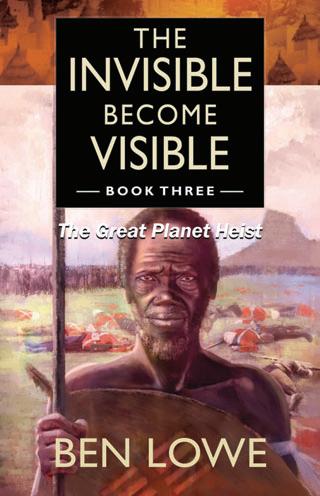
Ben Lowe
This represents the third in a trilogy of novels about history’s forgotten or too little remembered indigenous people who were colonised and enslaved by Europeans. It continues the dramatic story of the Bantu family from the first novel as it faces new Portuguese and British intruders and slavery, and experiences imperialism.
Dramatic instances of indigenous people fighting for their culture and their way of life against invaders are portrayed. In South Africa, the Zulus, in particular the battle of Isandlwana, is a major victory for the Zulus against the British, but with a grim aftermath. And in West Africa, the Asante fight off the European powers for decades.
This novel also tells the story of Cecil Rhodes laying the basis for apartheid in South Africa; and the role of the new 500-round Maxim machine gun in military victories by Britain.
In Brazil, it tells of the tide of slave revolts that followed the end of slavery in Europe in 1834; the repression of the revolt that presaged ex-slaves being deported back to Africa; and the revolts that culminated in the final emancipation of slaves in 1888. The stories reflect the current zeitgeist in two ways: Telling the post-invasion story of the indigenous people and the millions of slaves in Brazil, South Africa and East Africa; and the Green message of the rich and powerful in Europe and its diaspora gobbling up the planet over four centuries and spitting out its pollution and carbon emissions.
Paperback, £13.99 / US $21.00 • eBook, £3.99 / US $4.99
STRIVING FOR EQUALITY, FREEDOM AND JUSTICE: Embracing Roots, Culture and Identity: A Collection of Poetry
Zita Holbourne
A collection of poetry, quotes and art by award winning and inspiring London-based poet, artist and activist Zita Holbourne. The book is a poetical journey through struggle and resistance, a story of strength, determination and love used to challenge discrimination and injustice, documenting important historical and current struggles from the Haitian Revolution to the Black Lives Matter Movement. This is combined with Zita’s personal journey as an activist, mother and artist. Some of the poems in the book have won awards and others have been performed at awards ceremonies, some are dedicated to those who have inspired the author and others written in the hope of inspiring others. This is a book not just for lovers of poetry but all those who want to make the world a better place and who stand for social justice and equality, combining the poetical with the political.

Paperback, £9.99 / US $15.00
• eBook £4.99 / US $5.99
THE INVISIBLE BECOME VISIBLE – BOOK TWO: Gold, Greed and Insurgency

Ben
Lowe
This represents the second of three novels about history’s forgotten or too little remembered people. It features the first great anti-slavery revolution in Haiti, and the towering figure of Toussaint L’Ouverture from birth. It is, above all, the story of the indigenous and enslaved people of Haiti and the indigenous people of Mexico through turbulent times. Gold, Greed and Insurgency is part of a trilogy that is a history that is long overdue, and a different kind of history that casts a mirror on the invaders through the lives of varied and fascinating characters and their rich dialogue. It features of peoples with a culture hewn over thousands of years until destructive invaders came, and it helps to explain how the profit-hungry and powerful in humanity ended up causing a climate emergency in the 21st century.
In Haiti, it follows the extraordinary history of the indigenous Taino people from the arrival of Columbus to their alliance with freed slaves to take on and defeat both the French and the British to achieve a revolution.
In Mexico, we experience the life of Aztecs in Tenochtitlan in its complexity, the Spanish invasion and the terrible destruction that followed. We follow two Aztec families, and through these we are able to direct a lens towards their history, culture and lifestyle over 250 years.
Lastly, we see the birth of the new Zulu nation during the early 1800s and more on the history of Mocambos in Brazil.
Paperback, £13.99 / US $21.00 • eBook, £3.99 / US $4.99
FOREIGN BODY: What if it happens to you?

Laurene
Marcia’s cryptic pregnancy produces a son for her apparently infertile husband, Marcus. They are delighted but Maria, the matriarch of the husband’s family, has doubts and struggles to balance her religious beliefs with her tragic past. She harbours secrets that disrupt her relationship with her family, especially with her son’s wife. Marcus, a self-assured man, is consumed by his mother’s treatment of Marcia but avoids any conflict with her. His sister, Claudia, is resilient and accepts responsibility for dealing with all the family’s problems while concealing her own anxieties. Results from DNA tests only cause further confusion that reverberates within the medical establishment as well as in the family. The question is asked: “Who is the mother of this baby?”
Paperback, £9.99 / US $15.00 • Hardback, £15.00 / US $22.00 eBook £4.99 / US $5.99
MOVING VOICES: Black Performance Poetry
Asher & Martin Hoyles
Moving Voices traces the African oral tradition, through African American and Caribbean culture, to Black performance poetry in England, and examines the many factors which have shaped this oral poetry.

Twelve contemporary poets discuss their childhood and school experiences, how they became poets and who influenced them, how they write and where they have performed, their favourite poets and poems, what they write about and their advice to budding poets. A selection of poems by each poet concludes each chapter.
The poets include those born in the Caribbean – James Berry, Valerie Bloom, Jean ‘Binta’ Breeze, John Lyons and Cuban Redd; and those born in England – Adisa, Patience Agbabi, Michael Groce, Cynthia Hamilton, Asher Hoyles, Levi Tafari and Benjamin Zephaniah.
An accompanying CD contains a selection of recordings by each poet. Paperback + CD, £16.99 / US $26.00
81 Hansib Review | Issue No. 1
Booksellers, Libraries, Schools, Colleges & Universities TRADE ENQUIRIES TURNAROUND PUBLISHER SERVICES TEL: +44 (0)208 829 3000 EMAIL: orders@turnaround-uk.com Unit 3, Olympia Trading Estate, Coburg Road, London, N22 6TZ, UK
THE HOOK OF DESIRE: Slavery and David Dabydeen’s ‘Turner’
 Edited by Lynne Macedo
Edited by Lynne Macedo
David Dabydeen’s ‘Turner’ is a long poem of twentyfive sections that takes its inspiration from J.M.W. Turner’s Slave Ship (Slavers Throwing Overboard the Dead and Dying, Typhoon Coming On (1840) Since the poem was first published in 1994, it has been subject to a significant level of critical debate and discussion which continues to the present day. The aim of this book is to bring together a selection of the many articles that have engaged with the poem, and to show how they explore its relationship to the events depicted in the painting. It contains articles that examine Dabydeen’s work from a number of different perspectives. Some are comparative, considering ‘Turner’ alongside other fictional responses to the infamous Zong incident, whilst others focus on the work’s intertextuality or its exploration of the transformative nature of the sea. A recurrent theme is the inability of language to represent trauma, or to escape from the influence of past representations.
In the present political climate with its focus upon ‘Black Lives Matter’, it seems likely that the powerful legacy of the Zong case, and its many differing interpretations, will continue to resonate.
Paperback, £14.99 / US $22.00 • eBook, £3.99 / US $4.99
THE DEMISE OF CANE FIELD PARADISE
Georgia Brown
Located at the eastern-most tip of Jamaica is the fictional village of Cane Field Paradise. Its verdant surroundings are dominated by a sugar estate, which provides the main source of income for the inhabitants. For nine decades, the sugar factory dominated the skyline and the daily lives of the local residents, and it is where employment is guaranteed to any able-bodied person. Consequently, the villagers work hard, but they also play hard… especially on payday! Merriment and excitement ensue during these times of plenty but the thrill of the moment is punctuated by the unexpected closure of the sugar factory. The Demise of Cane Field Paradise is an intimate portrait and picturesque narrative of the reality of Jamaican village life. It shifts across the landscape of the overarching sugar estate, the backbreaking labour, crop over celebrations, family life and the elation of payday.
Although fictional, Cane Field Paradise is born of fact and is a reflection of a once prestigious village whose future in the modern era is uncertain.

Paperback, £8.99 / US $14.00 • eBook, £2.99 / US $3.80
MEENACHI: Fourth Volume of New Poems

Rajandaye Ramkissooon-Chen
In this tight-woven, visceral, surreal and intellectual collection, Rajandaye Ramkissooon-Chen has continued her legacy of probing research into the experiences of immigrants from India to Trinidad. She delves into their customs, their religions and philosophy and pays veneration to ancestral pioneers. She also writes passionately about her parents and her people in Trinidad where she was born. Her poems are crisp and the sentences short-limned. Imagery, metaphor and factual information are combined in a meld of truth and perception. She is also a recipient of Trinidad and Tobago’s National Chaconia Gold Award.
Paperback, £6.99 / US $11.00
Books & eBooks published by Hansib Publications are available worldwide from many booksellers including: Amazon , Wordery , Kobo , World of Books , Alibris, Waterstones, Bookshop.org , Foyles and Blackwell’s
THE INVISIBLE BECOME VISIBLE – BOOK ONE: From Congo to Mocambo to Samba
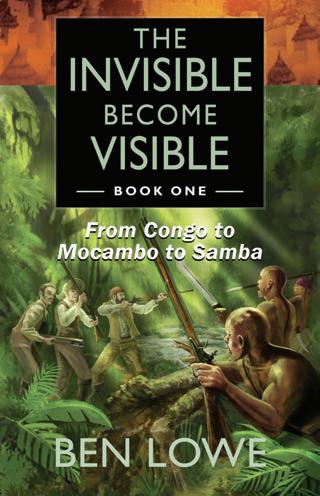
Ben Lowe
This represents the first of three novels on history’s forgotten or too little remembered people including, in particular, the indigenous people of Sub-Saharan Africa, Brazil, Haiti and Mexico. It is a history of communities living for thousands of years before invaders come and told from the perspective of the invaded and the enslaved.
It opens with the beginnings of the Portuguese empire from 1487, how people experienced Portuguese Armadas marauding up the east coast of Africa and their attacks on various ports and coastal stretches.
From South African oral history, it tells of how the Khoisan lived from 1487, and how they experienced and responded to unexpected European visitors. In India, it recalls the tragic impact on locals as the Portuguese Armadas continue their negotiation by cannon fire, as well as the impact on people living on the East African coast.
In Brazil, Haiti and in Khoisan and Bantu areas in Africa, it reflects the people and their lifestyle, and their interaction with invading Europeans, and – in Brazil in particular – the emergence of Tupi and free-slave communities, which become pivotal to the development of Brazilian culture.
In South Africa, it tells of Hangklip, a free slave community which emerges after the Dutch importation of enslaved Africans.
Much of the novel’s second half is part an allegory for the overwhelming desire of enslaved people for freedom.
Paperback, £13.99 / US $21.00 • eBook, £3.99 / US $4.99
UNDER BASIL LEAVES: An Anthology of Poems

Paulette A. Ramsay
In this debut collection, Paulette Ramsay addresses the “unsanctioned” layers of experience that are often hidden behind social codes and cloaks of respectability. Their layered wit is one of the most engaging features of these poems that range over diverse subjects such as childhood memories, politics, religion, women’s concerns, life and death, and the “man and woman story”. Ramsay’s ironic, often humorous vision, illuminates everyday relationships and experiences from fresh perspectives. The range of voices, from folk to polemic, add drama to much of the collection.
Paulette A. Ramsay is an author of fiction and poetry. Her short stories and poems have been published in BIM , the Caribbean journal for the arts, and in the Caribbean Journal of Education
Paperback, £7.99 / US $12.00 • eBook, £5.19 / US $5.99
RHYTHM PLAYED IN A FIRE

Gloria Times
Aunt Hazel is a rock. She opens her home to the extended members of her family after the devastating Castries fire of 1948. These include her sister, her niece and her husband and daughter, and a number of her much older female cousins. Tensions are never far from the surface as the family members are forced to accept their new living conditions surrounded by near total destruction. The people of Castries struggle to rebuild their lives among the charred remains of the capital. The task is challenging but they are optimistic as they come to terms with their afflicted lives in colonial St Lucia. However, the music of the island is ever present and provides a rhythmic thread throughout the story. Gloria Times emigrated to England from St Lucia in 1966 to train as a nurse. Rhythm Played in a Fire is her first book and is set around the time of the devastating fire which destroyed much of St Lucia’s capital, Castries, in 1948. She experienced the aftermath of this disaster as a young child and much of the storyline is drawn from these experiences.
Paperback, £11.99 / US $18.00
82 Hansib Review | Issue No. 1
BOOKSHELF •
Fiction & Poetry
CLOSER TO THE CHURCH: A Novel
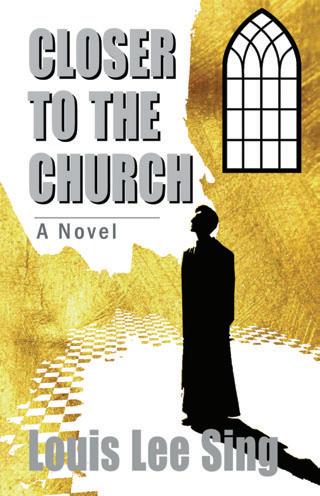
Louis Lee Sing
Angry with their religions and the wrongdoings of so many clerics, two young people decide to address the status quo. Set in Trinidad and Tobago’s capital, Port-of-Spain, Nathan John and Miriam Suielman seek to attract many others to their cause and come up with the notion to stage and host a conference. The resulting event, entitled ‘Conference of the UnGodly’, draws participants from across the globe.
In this cauldron of religious fervour, a spotlight is not only turned upon the abuses within the church but also the subject of religion as a whole. And it is within this arena that ‘sinners’ and ‘saints’ alike bare their souls.
For Nathan and Miriam, the conference is an illuminating spectacle. They had arrived as unknowns, but their overnight success has created a demand for them from organisations the world over.
Louis Lee Sing served as Mayor of Trinidad and Tobago’s capital, Port-ofSpain, from 2010 to 2013. Throughout his adult life, he has been part of the media, beginning as a cub reporter in the weekly press. He boasts of having clawed his way up the ladder to become founder and owner of a leading broadcasting cluster within the nation’s radio market. Closer to the Church is his debut novel and his third published book.
Paperback, £11.99 / US $18.00 • eBook, £3.99 / US $4.99
SINGLEHOLIC Katherine Bing
Mixed race 30-year-old Sarah is dumped by her Muslim boyfriend and finds herself single once again. Fed up with being alone, she gives herself one year to find a man. With the help of friends Georgina and Jacquie, ‘singleholic’ Sarah learns to alter her game with hilarious consequences.
Chibu, the Nigerian banker, is sexy but Arthur, the plum English Internet King, is charming. And will Sam, the tanned, trendy toy-boy, ever ring?
Join singleholic Sarah on a sassy, multicultural dating spree across London. She goes from dancing through fountains at Somerset House to having a boogie in bars in Brixton.
Singleholic plays with race like never before and toys with all those questions you’ve always been afraid to ask. It is a hilarious Sex & The City adventure, in the spirit of Bridget Jones, which introduces multiculturalism to chick-lit. “Wonderfully relatable and adorably funny! A revolutionary education on relationships, where you discover the most important relationship is the one you have with yourself.”
 Zaraah Abrahams, Actor Paperback, £7.99 / US $12.00
Zaraah Abrahams, Actor Paperback, £7.99 / US $12.00
LONDON ROCKS
Brenda Lee Browne
This is the story of Dante Brookes, a young man growing up in London in the late seventies and early eighties when sound systems ruled the party scene for young, Black British youths of Caribbean heritage. He navigates the loss of friends, police harassment and being a teenage father while forging a career as an MC. Dante stumbles into the acting profession and also becomes a writer. It is through these disparate experiences that he learns that the pen and mic are mightier than the sword.

Brenda Lee Browne was born in London to Antiguan parents. She studied journalism and started her career in the Black media before moving to Antigua in the mid-1980s where she began writing and publishing short stories and poetry. In the mid-1990s, she returned to the UK and gained an MA in writing from Sheffield Hallam University. She returned to Antigua in 2003 and established Just Write creative writing workshops and has worked with government agencies, adults and inmates at HMP in Antigua. Her work has appeared in a number of anthologies in the USA, UK and Canada as well as online. Brenda is a lover of cricket, chocolate and handbags.
Paperback, £7.99 / US $12.00
FIGHT: A Collection of Poems Sharnette Woosen-Henry
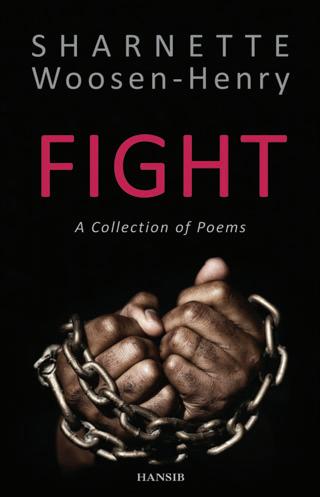
We live in a world where we are constantly being judged by the colour of our skin... our gender... our faith... our social status. For many, these judgements remain unanswered or unchallenged and they turn the other cheek; their silence giving false authority to continued injustice.
Haile Selassie said that, “Throughout history, it has been the inaction of those who could have acted, the indifference of those who should have known better, the silence of the voice of justice when it mattered most, that has made it possible for evil to triumph.”
The poems within this debut collection aim to inspire the voice within and empower those who feel powerless and have remained silent.
Paperback, £9.99 / US $15.00
OCTOBER AFTERNOON
Paulette A. Ramsay
A collection of carefully crafted, layered, rich, subtle and resonant poems which are fanciful, teasing and simultaneously sombre.
“In these bold poems of desire, love, subjectivity and writing as the path, all stitched together on the strong thread of memory, Paulette Ramsay takes readers into the rich interior landscape of a poet exploring the process and finding joy.” Opal Palmer Adisa, author of Until Judgement Comes
Paulette A. Ramsay is an author of fiction and poetry. Her short stories and poems have been published in BIM, the Caribbean journal for the arts, and in the Caribbean Journal of Education Paperback, £7.99 / US $12.00

MANUSCRIPT SUBMISSIONS
Since the early 1980s, Hansib Publications has been helping authors, and aspiring authors, from across the Caribbean and the Caribbean diaspora in the UK and North America bring their stories to life.
A PLATFORM FOR THE UNREAD
We provide an outlet for the many voices that remain unheard and publish all genres of fiction and non-fiction, including biographies, memoirs, novels, collections of short stories, theses and poetry.
With editorial and logistical support from an experienced team, plus a range of affordable options, getting your book published has never been easier.
All manuscripts are considered, and the books we publish are available from a global network of booksellers, including Amazon.
Contact us today to discover how we can help you share your story with the world!
For all enquiries, please contact:
83 Hansib Review | Issue No. 1 BOOKSHELF • Fiction & Poetry
Email: info@hansibpublications.com Tel./Text/WhatsApp: +44 (0)7930 603 956
SHORT AND SWEET: A Collection of Guyanese Stories and Fables
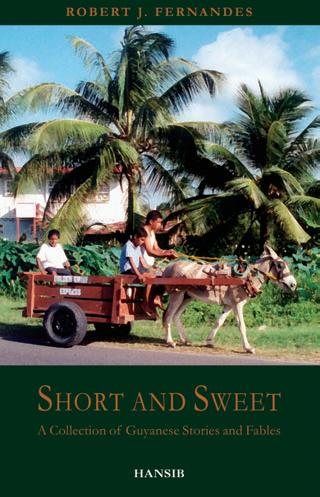
Robert
J. Fernandes
This collection of twenty-five short stories and fables chronicles a way of life that is unmistakably Guyanese. Fernandes is a well-known Guyanese adventurer and nature photographer and many of the stories were taken from his life experiences. They provide fascinating snapshots of the Guyanese way of life and include a diverse range of characters, from lost tribes to porknocker wives; from Leroy the laxative man to Ma Bancroft the gun-toting old lady. The fables, however, are a product of his overactive imagination and an ample supply of free time. In these tales he examines the lives of rainbows, raindrops, old dogs, snail hawks and trees from a refreshingly Guyanese perspective.
With a photographer’s perception, Fernandes breathes life into the everchanging backdrop of his often humorous and always poignant stories. Many aspects of this cultural tapestry are fast disappearing and need to be preserved as part of Guyana’s national heritage.
“There is great enjoyment awaiting readers of this first, and hopefully not the last, collection of stories from a great lover of his country and its people.” Stanley Greaves, Guyanese artist and poet Paperback, £7.99 / US $16.00
DEAR INFIDEL
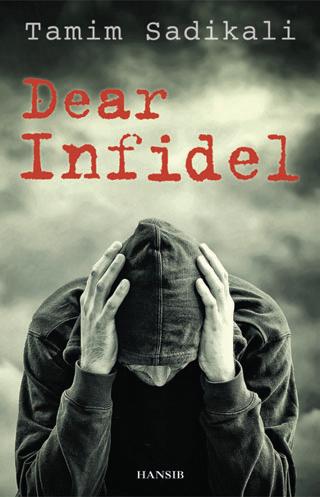
Tamim Sadikali
Two families reunite for a feast on Eid ul-Fitr – the day Muslims celebrate the end of the month of fasting – and boys who grew up together will meet again... as men. As the big day approaches, two of the men go to the mosque, one leaves his girlfriend and another watches pornography. Nevertheless, they arrive intent on embracing the day. Old enmities are put aside as they take tentative steps towards each other. This is a story about love, hate, longing and sexual dysfunction, all sifted through the fallout from the war on terror, and how we drift away from each other. We witness the realities of a post-9/11 world filter down, touch individual lives, combine with some internal tension, and finally spill over. This contemporary novel also takes in universal themes such as the fear of getting old, failing as a breadwinner and failing one’s parents.
Tamim Sadikali was born in Kent. He read Mathematics at Warwick University before entering the world of software. By day he kids himself that he cares about computing, and by night he writes. This is his first novel.
Paperback, £10.99 / US $16.00 • eBook, £7.14 / US $9.00
MARCUS, THE INTREPID VILLAGE BOY
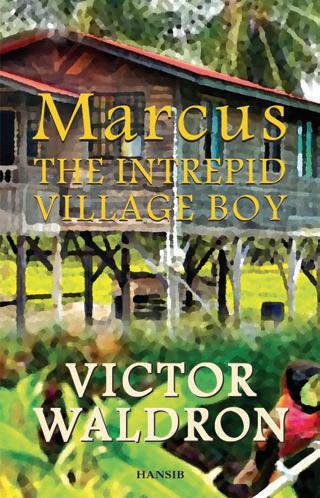
Victor Waldron
Marcus Gullant was born in a remote village in 1920s British Guiana. Growing up, he was restless and ambitious and generally misunderstood by his peers. He felt unsuited to the slow pace of village life and always sought adventure and purpose.
As a young man, his attentions were drawn to Teresa, one of the village elite. But her status, and that of her family, was beyond his reach. How would he be able to contest her love? His solution was to become a soldier in the British Army. The Se cond World War was merely two years old and he thought that no real man could occupy a better position other than to be in the military during wartime.
Marcus enlisted as a merchant seaman and made the perilous journey across the Atlantic Ocean to the ‘Mother Country’ where he was conscripted into the Army. Marcus rose to the challenge of military life as well as to the challenges he faced through discrimination and hostility as a Black man in a white society. His hard work and determination saw him grow in confidence and a world of possibilities was opened, including the pursuit of the woman he loved.
Paperback, £11.99 / US $18.00
KING OF THE CARNIVAL and Other Stories

Willi Chen
This unique collection of short stories from the Caribbean, captures the violence, trickery, pathos and racial comedy of Trinidadian society. Chen writes in a great sweep of energy and from a deeply humane perspective, investing his characters with the capacity for laughter, suffering and redemption.

“Brilliant and exuberant. A triumph of Caribbean prose from a writer of natural, abundant talent”
David Dabydeen
“In these wonderously wrought stories, Willi Chen evokes the richness, beauty and diversity of Trinidad life” Selwyn Cudjoe
“In Willi Chen, Trinidad and Tobago has a short story writer of uniqueness and class. His work is bound to leave a stamp on our literature” Michael Anthony Paperback, £7.99 / US $12.00
E-KIDZ: Mission to Cyberspace

Alan Springer
In a puff of smoke and a flash like lightning, a genie appears from the computer and whisks the e-Kidz off into cyberspace to play games for ever and ever! It is their wish come true, but this is no ordinary game. The genie gives them a dangerous mission: clean up the internet. They head off on a thrilling surf-ride across the super-highway where they encounter dangerous cyber villains in the forms of a plague of bugs and cookies, evil pop-ups, chat-room predators, trojans and viruses. The journey takes them to the centre of the world wide web to face the evil web-master in a final showdown. Aimed at the 10 – 14 age-group, this book tackles the global concern of internet safety in an interesting and exciting way.
Paperback, £11.99 / US $20.00 • eBook, £7.79 / US $9.00
A TROUBLED DREAM
Jacques Compton
In the years after the Second World War, many West Indians came to live and work in Britain following the recruitment drives of such institutions as London Transport and the National Health Service. Many had also served in the British Armed Forces during the war and decided to make Britain their new home. These new arrivals sought a life of prosperity in the ‘mother country’, but in reality they were often faced with a hostile and unwelcoming environment. Most learned to live with these ‘obstacles’ and later sent for their families. This is the story of a young married couple whose lives reflect the dilemmas faced by West Indians in British society, while at the same time having to address the conflicts between the older and younger generations.
Paperback, £8.99 / US $18.00
DAUGHTER OF THE GREAT RIVER
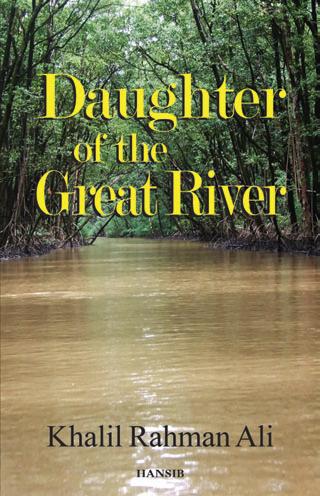
Khalil Rahman Ali
A story based on the struggles of Indigenous Peoples in the fictional country of Kayana, “Land of Many Waters”. Onida is the eponymous Daughter of the Great River who emerged more than five hundred years after her ancestors were brutally suppressed by invading Europeans and were forced to flee to the safety of the rainforests of Kayana.
Her tribe of Kayanese is made up of several Indigenous Peoples who prefer to live in the hinterland of Kayana’s vast rainforests. She is the ‘chosen one’ to lead her peoples out of their challenging circumstances where the natural resources of gold and timber are being exploited by local and foreign interests.
Paperback, £11.99 / US $18.00 • eBook, £5.99 / US $7.20
84 Hansib Review | Issue No. 1
BOOKSHELF • Fiction & Poetry
BOOKSHELF • Fiction & Poetry
THE BALGOBIN SAGA
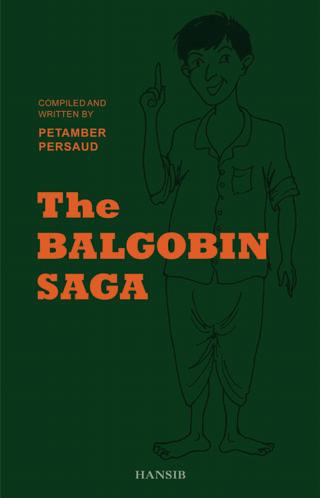
Petamber Persaud
Balgobin is an elusive, often overlooked character in Indian-Guyanese folklore. The mystery that surrounds him is curious given that his story has been in existence since the first arrival of Indians into what was then British Guiana in 1838. Frequently portrayed as an unintelligent schoolboy, Balgobin confounds his educators by scraping through every test and every challenge. To his classmates, he is often the hero of the day.
This provides a re-introduction to a lovable character and also reflects the lives of Indian immigrants in the first half of the 19th century.
Paperback, £3.99 / US $6.00
SEND OUT YOU HAND

Dorbrene O’Marde
This story follows the intersecting contemporary lives of business men and women, socio-political activists and academics as they attempt to chart a new course towards Caribbean regional unity. The failed West Indies Federation (1958-1962) provides the political background and the less-than-successful present efforts of politicians at regional integration provide impetus for creative thinking, new approaches, different industries and new cultural possibilities.
The man-woman relationships of middle class mobile men and women – Black, white, Rastafari and Christian – are examined around issues of love, sex, fidelity, health, race and relocation. The action takes place across six Caribbean countries providing a galloping travelogue experience through the region where the motivations of various sectors of the society are explored. There is humour and music, and cricket and food!
Paperback, £9.99 / US $15.00 • eBook, £6.49 / US $8.00
SUGAR’S SWEET ALLURE
Khalil Rahman Ali
It is 1843, and Mustafa, an eighteen year-old Muslim Indian labourer from a village near Kanpur in India, is forced to run away through the discovery of his forbidden love for Chandini, his Hindu childhood sweetheart. His dream was to find work, save his money and return to ask for his beloved’s hand. This dream took him further afield into the promise of good work, pay and conditions as an indentured labourer on one of the sugar plantations thousands of miles away in the colony of British Guiana. His experiences on the Grand Trunk Road across Uttar Pradesh to Bengal, and on the treacherous sea voyage from Calcutta to Georgetown, tested his resolve to the limit. Then, when he and his companions were allocated to their sugar plantations, they had to endure and overcome more challenges of racial, religious and cultural differences, in addition to the unrelenting and punishing workloads in extremely harsh conditions.
Paperback, £11.99 / US $15.00
THE OPEN PRISON

Angus Richmond
• eBook, £7.79 / US $9.00
PARDNER MONEY STORIES
Deanne Heron
This is a collection of short stories which takes a whimsical look at life within an extended Black Jamaican family in Britain. Written in English with Jamaican patois dialogue, the stories capture the unique sense of humour of Black people in situations which wouldn’t ordinarily be considered humorous. Subjects as diverse as funerals and family holidays are featured and take a look at the interactions between various generations while highlighting the strong bonds of love and respect that bind them together.



Jamaican patois is a beautifully expressive language. It is funny, vibrant and emotional and is more than just words; it is body language, subtle nuance and intonation. It is a language of the soul, often more about what isn’t said than what is – a look, a raised eyebrow, a quick pout of the mouth or ‘kissing of the teeth’. All of these expressions and more are found in Pardner Money Stories. The name of the book is derived from the savings club referred to as “pardner”, “pardna” or “paadna”, which is a connecting thread within the lives of many Jamaicans, both past and present.
Paperback, £6.99 / US $11.00 • eBook, £4.54 / US $5.50
PARDNER MONEY STORIES: Volume
Deanne Heron
Two
This second volume of stories revisits Kelly and her eccentric extended Jamaican family living in the north of England. Here, the reader is presented with the latest antics of Grandma Mala, Cousin Babsie and husband Ferdie, Lolly and Uncle Al, as they try to navigate through their ‘little piece of Jamaica’ in England.
“Readers love them because the fictional landscape she created with the colourful extended family of Jamaican immigrants is not simply realistic, it’s downright compelling ... they’re funny, they’re loud, they’re chaotic, they’re maddening; they’re us.” Sharon Leach,
Jamaica Observer
“Heron uses English for narrative and Jamaican patois for dialogue to paint authentic, larger-than-life characters with whom ex-pats and islanders back home can immediately identify.” Fay Wertheimer, The Guardian “... a tribute to the West Indian people whose everyday stories are rarely told ... Written in a chatty style, it is like listening to a good friend entertain you.”
Tricia Wombell, Lime Magazine
Paperback, £6.99 / US $11.00 • eBook, £4.54 / US $5.50
A LANTERN IN THE WIND: A Fictional Memoir

Ameena Gafoor
This book offers a rare insight into Muslim life in Guyana. It is rich in detail, its realism enhanced by the author’s equally rich imagination. Muslim existence is rarely described or represented in Caribbean literature, so Gafoor’s book fills a significant gap.
Angela is a sensitive and disturbed child, growing up on the estate of her white guardian in British Guiana. She is slowly and painfully awakened to a society in turmoil, in which both Black and white are struggling to reassert their roles during the period of economic instability prior to the First World War. As the child of a loveless union between Black and white, the situation is even more problematic. Only after a desperate early marriage generates a series of tragic events, does Angela learn to understand the ultimate possibilities of her own displaced identity.
Paperback, £4.95 / US $8.00
Her tribute to her mother is so painfully moving and beautiful that I had to pause from reading so as to catch my breath. Her description of being an immigrant in London is, again, a relatively rare revelation of female experience, and complements Sam Selvon’s beautiful novel, The Lonely Londoners . David Dabydeen, Emeritus Professor, University of Warwick
Paperback, £12.99 / US $20.00 • eBook: £5.99 / US $7.20
85 Hansib Review | Issue No. 1
Books & eBooks published by Hansib Publications are available worldwide from many booksellers including: Amazon , Wordery , Kobo , World of Books , Alibris, Waterstones, Bookshop.org , Foyles and Blackwell’s
IN PURSUIT OF BETTERMENT: Five Stories from the Indian Diaspora


Khalil Rahman Ali
In Pursuit of Betterment, is a unique collection of five stories of historical fiction that feature families from India, Guyana and the Caribbean, Mauritius, East Africa and South Africa. These families share a compelling desire and drive to achieve betterment through education, hard work and business against the backdrop of the histories of the countries from where they originate, or in which they reside. The stories will resonate with many readers within the Indian Diaspora as well as among those who had to leave their homelands to explore better life chances in other countries.
Paperback, £11.99 / US $18.00 • eBook, £5.99 / US $7.20
MERCY CRIED NO

Carol Sammy
At the age of eighteen, Quintel Jones is faced with situations and challenges that demand a hasty step into maturity and manhood. In coping with a sick mother and impoverished circumstances, he is forced to grapple with realities that are often tough, while maintaining a heart for what is tender. Strong, determined and sometimes feeling battered, he stoically holds on to what are left of any dreams he harboured. He must fight for his mother’s life, ensure his own survival and find joy in the people helping to shape the outcome of his existence – an English journalist, a beautiful woman, an orphan boy and a curious benefactor are amongst those to whom he attributes his eventual breakthrough. There in Trinidad, the unglamorous yet compelling life of this young man blossoms with sumptuous intrigue, as Quintel battles head on with the painful issues of personal prejudices, poverty and love, social interaction and manly awakening.
Paperback, £10.99 / US $16.00 • eBook, £5.49 / US $6.50
CULTURAL CONUNDRUMS: Poems on Inter-Connectedness
Matahari V
The norms of the East and West sometimes bring about a clash of perceptions and create cultural conundrums. Much is lost in interpretation, and much is misunderstood; and walls emerge where a bridge could easily connect. Using a wide range of images from human experience and the natural world, the poet bares her soul with freshness and energy. This book is about seeing the world with different lenses so that ‘different’ is not ‘alien’.
Paperback, £7.99 / US 12.00 • eBook, £3.99 / US $4.99
SIGNATURE CULTURES: Poems that Awaken Consciousness
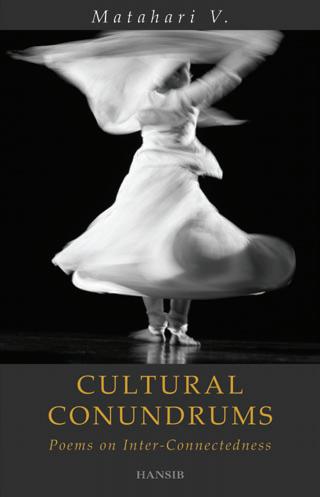
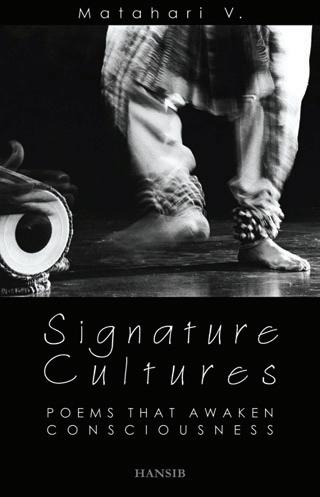
Matahari V
This collection of poems raises the questions that have remained unanswered for ages. They arise from the depths of the author’s personal experiences and personal life and, just like a painting, show not just a scene, but also the emotions the painter contains within him/herself. The author gives us a glimpse into the anguish and questioning of a soul that feels life crowding in and equally feels the need to be true to herself.
Paperback, £7.99 / US $12.00
RAISE UP THE LOW, BRING DOWN THE MIGHTY Asher Hoyles
For over 25 years, Asher has been composing poems and performing them in many different venues, including Glastonbury and Westminster Abbey. This book illustrates the variety of her style and themes and the CDs show that Asher’s passionate expression needs to be heard as well as read. She has run poetry workshops in schools, colleges and prisons, as well as teaching performance poetry.

“Asher Hoyles brings poetry to you that is funny, moving, honest and true. I hear years of tradition meeting the modern and the relevant ... Her poems make me feel educated, cultured, alive and loved.” Benjamin Zephaniah “We definitely need more voices like Asher’s exploring the black British experience, especially for women, as Linton Kwesi Johnson has done for young men.” Jean ‘Binta’ Breeze
Paperback + 2 CDs, £9.99 / US $15.00
RIVER DANCER: New Poems by Ian
McDonald
Ian McDonald
The extraordinary poems in Ian McDonald’s new collection emerged as “blood emerges from a cut vein”. So the author describes the process of writing them in his preface. This is his sixth collection of poems in a literary career which has gradually gained strength and recognition over the years. His creativity, far from diminishing, in this book reaches a new level of interest and inspiration. In this late flowering of new poems he has added a significant dimension to his work. The poems describe a full range of his experiences of love, sadness, family, ordinary people and their troubles and triumphs, the places he has known and loved and above all his wife’s garden and the great Essequibo river, the joys and bereavements and mysteries we all encounter, the daily wonders of his long life.
A special dimension of the poems is the love he wishes to express for his wife, Mary. As he writes, “She has for long been a large part of my life. How does one convey plainly what means nearly everything? What would a red thing be without the red? Length and breadth measured without depth? I am sad that a time must come soon enough when I will die and leave her. That distils some of the poetry, even those poems not about her. I want her to know what I have felt, that does not die. The poetry gives shape to nothingness. I see her now, dancing by the river we love.”
This collection is an important addition to Ian McDonald’s work and a noteworthy contribution to Guyanese/Caribbean poetry.
Paperback, £7.99 / US $12.00
THE SWEETEST SOUND
Yvonne Brissett
Single, sexy, Sahai Martini is a natural born flirt and bona fide gold-digger. This scandalous chick is determined to enjoy a life of luxury at some wealthy man’s expense. As a television producer for a struggling urban entertainment station, she is under pressure to come up with an original idea to restore ratings, save the station and possibly her job. Combining her gold-digger interests with her love of urban music, she creates a killer idea for a hot new reality dating show, but is her personal life quite as thrilling? Can she find Mr Right or will her outrageous ways get the better of her?
A sparkling, contemporary debut that takes us on an edgy journey of a young woman looking for love in all the wrong places!
“A clever read … full of bounce, rhythm and pace” Glen Yearwood, Black Entertainment Television Networks, (BET) UK

“Gripping from the start… sassy and sensual” Naomi Jones, Nubian Readers’ Book Club
Paperback, £7.99 / US $14.00
• eBook, £4.99 / US $5.99
BOOKSHELF •
&
Fiction
Poetry
Books & eBooks published by Hansib Publications are available worldwide from many booksellers including: Amazon , Wordery , Kobo , World of Books , Alibris, Waterstones, Bookshop.org , Foyles and Blackwell’s
CROSSBONES and Other Stories
Willi Chen
This collection of short stories, from Trinidad’s versatile and ebullient Willi Chen, features the wide variety of ordinary folk of the island. There are farmers, shopkeepers, thieves, drug-dealers, migrants from other islands and far-off places, people on the move, and people looking for a place and a life. It is a stark and elemental world: brute force versus human enterprise; cruelty pausing before sheer beauty; jumbie birds, snakes, howler monkeys and thunderous storms. There are depths around the everyday surfaces: A disappointed man drifts back from the city to his rural setting; an honest small-islander is surprised by himself; a ‘foul’ thief, bitten by a dog, suffers rather than let an obeah woman examine the wound; a man turns away from thoughts of suicide and finds his wife dying instead.

These stories are filled with surprise, tension, fear, farce and comedy. Chen reflects the magical realism and exuberance of the language of the Caribbean, and his characters are alive and memorable and record the very essence of real life in Trinidad and Tobago.

Paperback, £7.99 / US $12.00
AN AFRICAN JOURNEY
Barbara Ellis
The hero of the Akan people of West Africa and our hero, Anancy, takes us on a journey through time and history. He reveals the heroic achievements of his people, and guides us through the traumas that were inflicted on his motherland by the European Invaders, from the 15th century onwards. Anancy takes us back to December 1492, when the three galleons commanded by Christopher Columbus ran aground on the rocky shoreline of Ayiti (Haiti). The event was to have dire consequences for the inhabitants of the island –the Taino people – and later the African continent.
The enslavement and near extinction of the Taino people, through mining gold, silver and pearls for the Spanish invaders, created the demand for another source of free labour. Anancy is at the heart of the resistance to the enslavement of the local Taino people and the Africans in the ‘Recently Enslaved World’. Anancy uses his dual personality – as a man and a spider – to resist and torment the slave masters, while inspiring and supporting his brothers and sisters to end their enslavement. He plays a central role in their resistance and ultimate liberation from the cane pieces throughout the islands of the Caribbean and on the mainland of South America.
Paperback, £10.99 / US $16.00
AN AFRICAN JOURNEY, Book


MOTHER COUNTRY: In the Wake of a Dream

Donald Hinds
Summer 1947. Jamaican ex-serviceman Melbourne Welch stands at the corner of Effra Road and Rushworth Street in Brixton, south London, facing a tirade of abuse from the British Union of Fascists. It is a shocking contrast to the treatment he received three years earlier when grateful Britons welcomed the ‘loyal colonials’ who had come to help defend the ‘Mother Country’ from Nazi tyranny. How things had changed.
Now out of uniform, and along with other non-white migrants, he and ‘his kind’ were seen as scroungers on the National Assistance; cheap labour occupying scarce housing; or salacious men on the hunt for women of easy virtue. “You helped us to win the war now come and help us rebuild the Mother Country.” This sentiment of British Empire unity might have been apocryphal but it was inhaled like a breath of fresh air by many West Indians. They answered the call and arrived in Britain from the late 1940s on ships such as the iconic Empire Windrush. Former servicemen, like Melbourne Welch, chose to stay in the country they had helped defend after being demobbed. But for many, the dream of a better life and boundless opportunities was tainted with discrimination and hostility.
While the characters may be fictional, their stories are not uncommon and are set against the backdrop of actual events that took place in Britain from the late 1940s to the mid-1960s. The narrative is rich, direct and laced with humour and pathos, but without bitterness.
Paperback, £11.99 / US $18.00 • eBook, £7.79 / US $9.00
THE BOY FROM WILLOW BEND
Joanne C. Hillhouse
Vere’s irrepressible spirit is an asset as he comes of age in Antigua. His is a hard-knocks existence marked by poverty and loss. The women in his life – his absent mother, long-suffering Tanty, rebellious June and first love Makeba – help shape him; so, too, his abrasive grandfather and others in his environment. In the end, though, it is a story about a boy trying to hold on to what’s real and precious to him, trying to find his way in the world and learning to be a man. This engaging tale speaks particularly to young readers, while sparking nostalgia in older Caribbean readers as well.
“The characters feel real and, best of all, they feel Caribbean, but the story could have held up in any culture.” Trinidad Guardian “… stands out as an example of self-redemption, self-motivation, and self-preservation.” She Caribbean, St Lucia Paperback, £6.99 / US $12.00
THE DOMINO MASTERS OF DEMERARA

Khalil Rahman Ali
Barbara
Ellis
This second volume of An African Journey traces former enslaved Africans after Emancipation in the British Caribbean. It depicts their struggle for political and economic liberation from the colonial power and outlines their journey throughout the region in search of work.
It also reflects upon the journeys made to Europe by thousands of men and women who enlisted to fight in the First and Second World Wars, and continues with the now symbolic first mass migration to Britain from the Caribbean on board the Empire Windrush in 1948.
The book also traces the journey of Mrs Brown and her seven young children who set sail from Jamaica to Britain in 1964 to join their father in London. The family experiences hostility and discrimination, but their story is by no means unique and could be told by countless members of the Windrush Generation.
Paperback, £10.99 / US $16.00
It is the 6th of August 1985, and the final and deciding game of dominoes between three rival teams from the sugar plantation villages of Anna Catherina, Leonora and Cornelia Ida, in Demerara, Guyana, is under way. Michael “Histry Maan” Brown, the selfappointed coach to the Anna Catherina ACES, reverts to new tactics to pass sublime tips to his captain, Vishnu “Double Six” Prashad. The game is played out at a time when Guyana and its peoples were still emerging from a history of struggle through African slavery, Portuguese, Indian and Chinese indentured labour, political independence, racial unrest, mass migration and economic downturn. Michael, Vishnu and their friends use every means available to continue to survive, and to build their lives in their multi-racial, multi-religious and multi-cultural society. The game of dominoes provides them with the opportunity to demonstrate their competitiveness, their search for unity, and their resolve to face up to their challenges. Can they succeed as One People, One Nation, with One Destiny?
Paperback, £11.99 / US $18.00
Two: From Emancipation 1838 to 1948, the Windrush and the ‘Mother Country’
BOOKSHELF • Fiction & Poetry
Authentic Reflections of the AuthenticCaribbeanReflections of the Caribbean


Since 1988, Hansib Publications has been delighting readers with the luxurious books it has published within its Nations Series. These spectacular coffee-table books contain stunning photography and insightful commentary, and reflect the history, culture, scenic landscapes and lifestyles of the nations.



Respectful of the past, they equally present contemporary achievements along with plans and aspirations for the future and are highly regarded at home and abroad.
Featuring contributions by local photographers and writers, these lavishly-illustrated books provide authentic reflections of the English-speaking nations of the Caribbean.
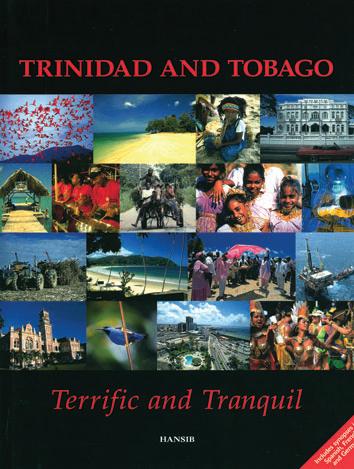


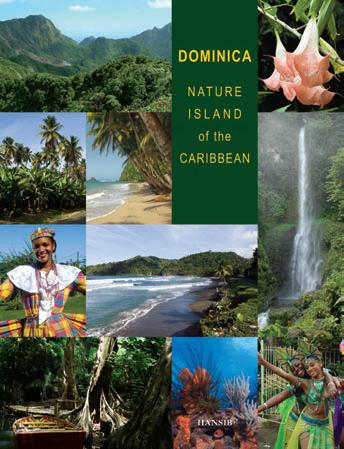
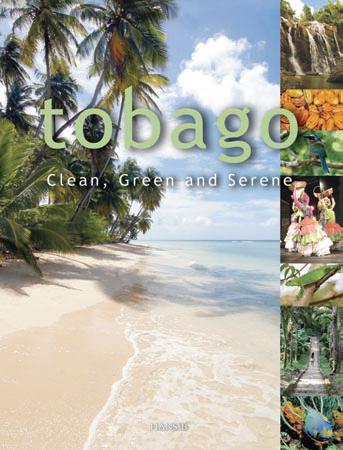
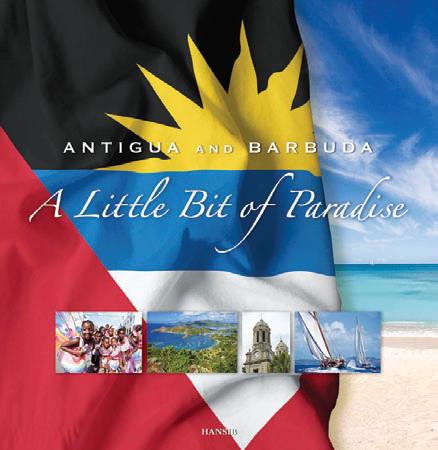

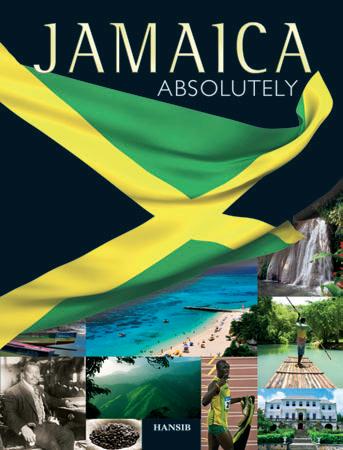





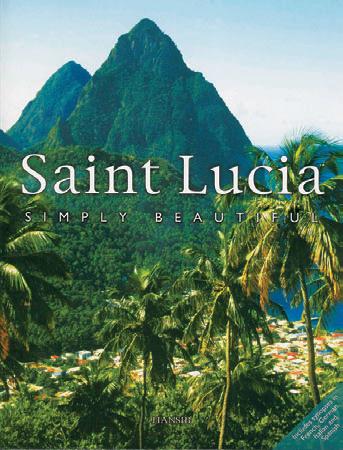
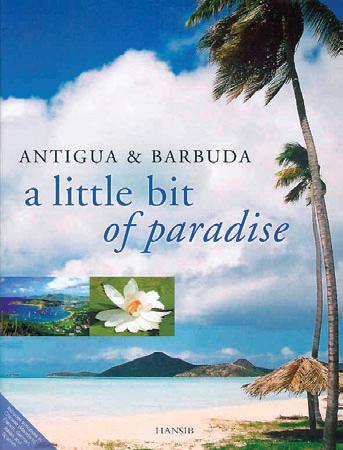

E MAIL: info@hansibpublications.com • TELEPHONE / TEXT / WHATSA PP : +44 (0)7930 603 956 WEBSITE : www.hansibpublications.com Publishing since 1970











 Patricia Mohammed Paperback,
Patricia Mohammed Paperback,




 Nelson’s Dockyard Museum
Sugar mill at Betty’s Hope
Nelson’s Dockyard Museum
Sugar mill at Betty’s Hope

















































































































 by Brian Dyde Paperback, £11.95 / US $18.00
by Brian Dyde Paperback, £11.95 / US $18.00
 Ira Aldridge depicted as Aaron the Moor in ‘Titus Andronicus’ in 1852
Ira Aldridge depicted as Aaron the Moor in ‘Titus Andronicus’ in 1852









 Ali
Ali





























































 A.P. Sandiford Paperback, £20.00 / US $40.00
A.P. Sandiford Paperback, £20.00 / US $40.00
 by Brenda Lee Browne Paperback, £7.99 / US $12.00
by Brenda Lee Browne Paperback, £7.99 / US $12.00


 by Willi Chen Paperback, £7.99 / US $12.00
by Willi Chen Paperback, £7.99 / US $12.00





 Edited by Lynne Macedo
Edited by Lynne Macedo






 Zaraah Abrahams, Actor Paperback, £7.99 / US $12.00
Zaraah Abrahams, Actor Paperback, £7.99 / US $12.00


















































